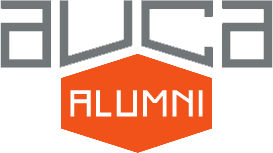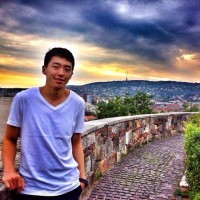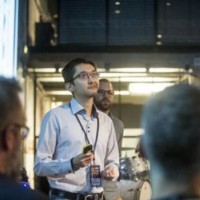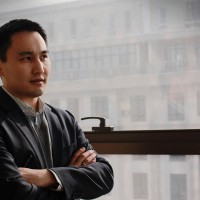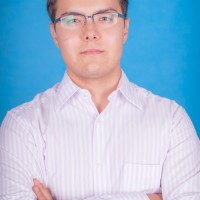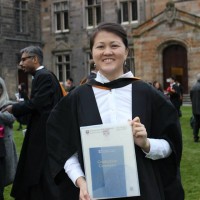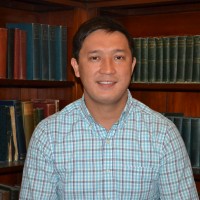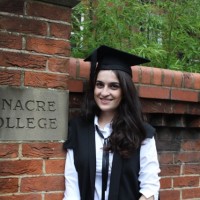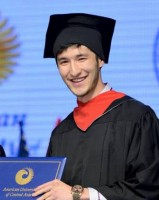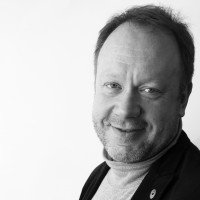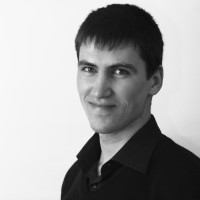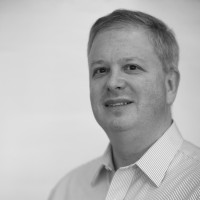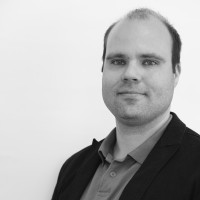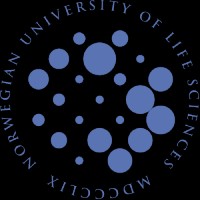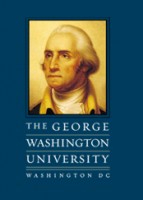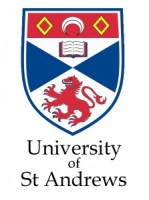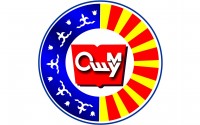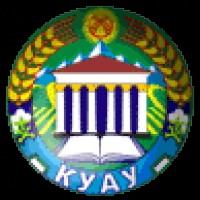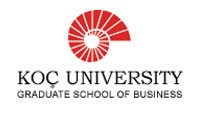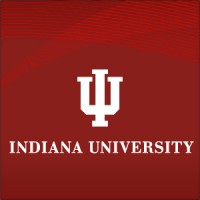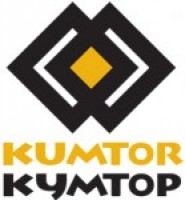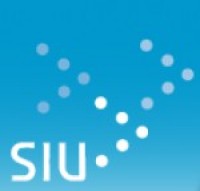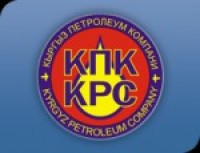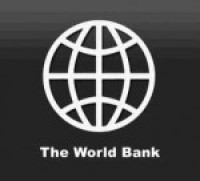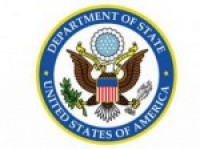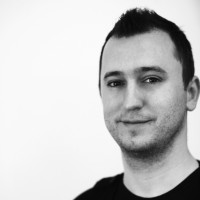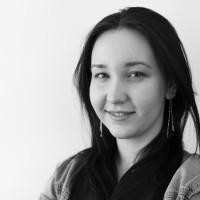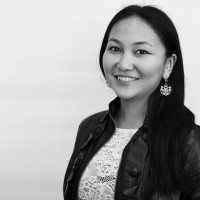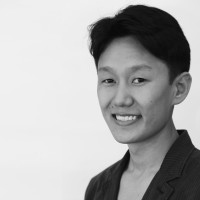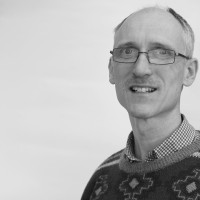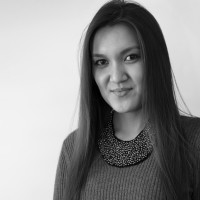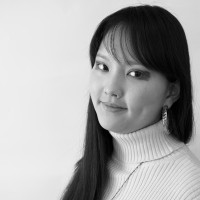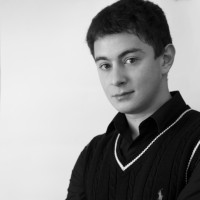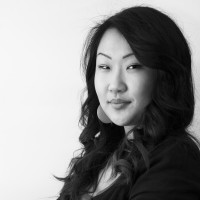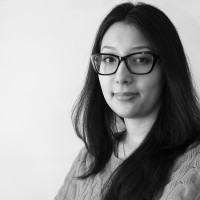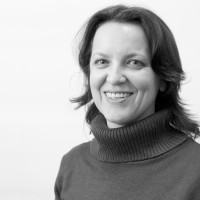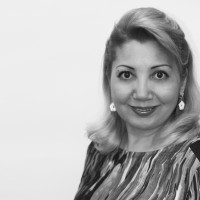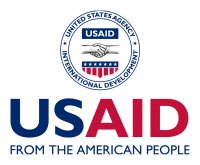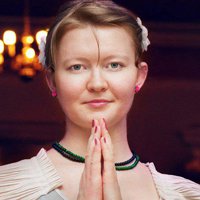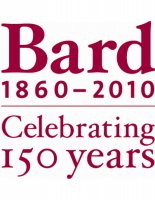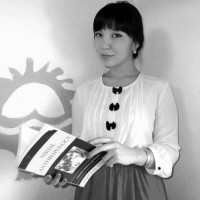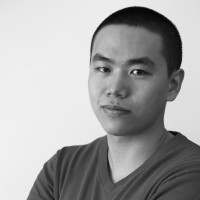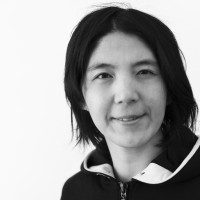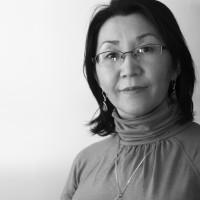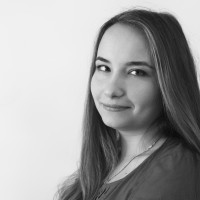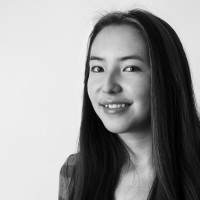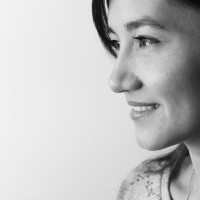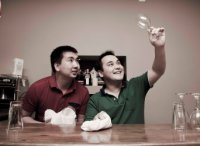|
Канимет Исабеков Economics (2014) Канимет Исабеков - выпускник АУЦА 2014 года. После окончания учебы на факультете экономики, Канимет продолжил обучение в Центрально-Европейском Университете (CEU) в Будапеште. В данное время подходит к концу первый год его обучения. Канимет поделился с нами впечатлениями о своем новом опыте и полученных знаниях.
Каким был процесс поступления и почему ты выбрал Central European University (CEU)? Процесс поступления был довольно простым, отчасти благодаря АУЦА. Мне не пришлось сдавать TOEFL, так как официальный язык преподавания АУЦА – английский, и поэтому я получил освобождение. Я написал Statement of Purpose на 500 слов в последнюю ночь перед дэдлайном, наверное, многие студенты меня поймут. Особо запомнился процесс получения рекомендательных писем: 2 преподавателя, у которых я просил письма, должны были самостоятельно зайти в онлайн платформу CEU под определёнными логинами и паролями, получив их по ссылке, которую предоставил им я - в общем, процесс был очень нудный. Я боялся, что не получу писем ввиду такой непростой процедуры, но нет – особое спасибо Эльмире Мусуралиевой и Нургуль Укуевой за их поддержку. Немножко настораживало то, что нужно было заплатить 40$ за подачу заявления, но я всё же инвестировал эти деньги в себя и вот я здесь, в CEU. Наверное, не я выбрал CEU, а СЕU выбрал меня. Спасибо АУЦА и кафедре экономики особенно. Подавал я всего в 3 места: Германия (ДААД), Россия (Высшая школа экономики) и Венгрия (CEU). Я выбрал СЕU по двум причинам: репутация и финансовая поддержка. Во-первых, СЕU имеет очень хорошую репутацию среди Graduate Schools, что говорит о хорошем качестве образования. На данный момент CEU входит в рейтинг 100 лучших университетов по гуманитарным наукам. Также в АУЦА очень много преподавателей окончивших СEU, что является хорошей доверительной рекламой для студентов. Во-вторых, СEU даёт шанс студентам получить полноценную финансовую поддержку: я получаю ежемесячную стипендию, мед. страховку, бесплатное жильё и полностью покрытый контракт за обучение. Благодаря этому я могу сконцентрироваться на учёбе на все 100 и выжимать максимум из этого.
Как проходит процесс обучения? Прежде, я никогда не был погружен в учёбу как сейчас. Процесс обучения в целом такой же, как и в АУЦА: онлайн регистрация, add/drop периоды, лекции, семинары и всё такое. Уровень нагрузки очень высокий. Очень много различных заданий и презентаций. В среднем студенты здесь спят по 5-7 часов и не обязательно ночью. Все студенты в классе очень мотивированы, активно участвуют в классовых обсуждениях, многие выходят за пределы классного материала и углубляются. Здесь все пользуются различными электронными календарями и планируют каждый день, так как на Masters без хорошего тайм менеджмента просто не выжить. Занятия проходят в очень свободной обстановке: в любой момент можно останавливать преподавателей и задавать вопрос - они уважают любую точку зрения студента. Уровень конкуренции в университете очень высокий: ведётся рейтинг по GPA, который отображается в транскрипте. Студенты здесь редко делятся домашними заданиями или своими оценками.
Что ты можешь сказать о первом годе обучения? Первый год был очень продуктивный, насыщенный и вдохновляющий. Я познакомился со множеством людей с разных стран мира: у всех разные взгляды на вещи и мнения. Здесь практически каждый старше меня на 3-4 года. Общаясь с людьми старше своего возраста, становишься серьёзней. В процессе учёбы я стал намного ответственнее в отношении к жизни. Я значительно расширил свои знания в сфере экономики, а также понял, что интересует меня больше всего. Я действительно осознал, что хочу набраться профессионального опыта и применять его, вернувшись в Кыргызстан через некоторое время. Также я повидал множество красивых мест, как в городе, так и за его пределами. Этот год был для меня годом академического, культурного и, в какой-то степени, духовного обогащения.
Насколько тяжело было поступать сразу после окончания университета? Лично мне было совсем не тяжело, так как я полностью осознавал, что ещё не совсем определился со своим будущим в плане карьеры, и нужно время, чтобы подумать, а заодно расширить свои знания во время учёбы в СЕU. Процесс поступления занял у меня не больше 10 дней.
Как тебе жизнь в новом городе, насколько тебе удобно? Будапешт - очень красивый, интересный и оживлённый город. Первый месяц был для меня адаптационным, и было не очень легко. Но как только я привык, я осознал, что жизнь в этом городе чрезвычайно комфортна: транспорт здесь ходит по чёткому графику, ночью ходят ночные автобусы; цены такие же как в Бишкеке, сравнительно недорогие для уровня жизни Европы; люди дружелюбные, культурные и уважают закон. По выходным улицы города особо забитые – люди здесь очень любят отдых и вечеринки. Касательно английского языка: многие может и не знают его идеально, но учат, так что с английским здесь не пропадёшь.
Чем ты занимаешься помимо учебы? Я учусь на двухгодичной программе, и на данный момент моя основная цель - это по максимуму разгрузить второй год, чтобы начать работать. Поэтому, помимо учёбы я в основном занимаюсь учёбой. В свободное время занимаюсь спортом и читаю русскую художественную литературу. Иногда хожу в кино и гуляю по городу.
Насколько образование в АУЦА отличается от образования в CEU? Система образования в обоих местах идентична. Думаю, различия только в двух аспектах: уровень нагрузки и уровень ответственности, возлагаемой на студента. Вот несколько различий, которые я успел разглядеть на данный момент: пары здесь идут 110 мин, С+ здесь - это минимальная оценка, дальше идёт F; экзамены идут 2,5-3 часа; очень часто конечную оценку за курс определяет один финальный экзамен, который весит 80-100 % оценки; нет ограничения на количество кредитов за семестр - можно брать неограниченное число курсов, главное не завалить.
Твои пожелания студентам. В первую очередь я бы посоветовал хорошенько подумать, зачем вам нужна магистратура. Если нужна, то СЕU - это отличный вариант. В СЕU есть множество одногодичных и двухгодичных программ. Помимо высококачественного образования, европейского диплома, подкреплённого американской аккредитацией, у студентов также появляется возможность попробовать себя на европейском рынке труда, пройти практику в интернациональных компаниях и действительно стать сильными специалистами в той или иной сфере. Вдобавок, Мастерс в СЕU - это отличная школа подготовки для тех, кто желает подавать на PhD в будущем. Выпускники СЕU проходят на PhD как в сам СЕU, так и в другие престижные университеты, такие как London School of Economics и Ivy League Schools, например.
Хочу пожелать студентам всегда следовать своей дорогой и планировать всё наперёд. Если картина будущего ещё не ясна, возможно, нужно просто больше времени, чтобы всё подумать и понять для себя, а не просто идти и делать что-то, что делают другие. Когда я поступал в СЕU, мой GPA был 3,2 - что не есть outstanding. Но, думаю, отборочной комиссии понравились мой Statement of Purpose и то, что думали обо мне мои преподаватели в рекомендациях. Очень часто важна не только оценка, но и другие факторы в совокупности. К примеру, какой опыт был у студента во внеучебной деятельности, где и сколько практик он проходил. Так что, будьте активнее, верьте в себя, ну и, конечно же, удачи! Link to this block: https://auca.kg/ru/spotlight/#b362 |
|
Давлет Джакишев Software Engineering "Нужно думать о своем будущем масштабно, в формате крупной картины" Давлету Джакишеву 24 года. Работает программистом в компании Microsoft в Осло. Недавно команда, в которой он трудится, разработала приложение Bandify, предназначенную для музыкантов и всех, кто занимается музыкой. О приложении и планах на будущее в интервью «Азаттыку» рассказал Давлет Джакишев. Давлет Джакишев родился в Бишкеке, закончил знаменитую 61-ю школу. Именно в этой школе Давлет получил отличные знания, но понял, что не может жить в атмосфере конформизма и невозможности проявить себя. Полный энтузиазма молодой человек поступил на факультет Software Engineering Американского университета в Центральной Азии, чтобы на себе испытать и понять, что есть либеральное образование. О чем вы тогда мечтали? Давлет Джакишев: Мои мечты менялись со мной. Когда я был совсем маленьким, наверное, как и многие, я мечтал иметь возможность изменить ситуацию в стране. Всегда очень остро воспринимал все, что происходило вокруг, и мне всегда хотелось, чтобы люди жили лучше. С возрастом, конечно, стал понимать, что с одной стороны, надо освобождаться от иллюзий, а с другой - нужно менять мир, начиная с малого, хотя бы изменить его вокруг себя. Ну, а к программированию меня привели, как, возможно, и многих других, компьютерные игры. Меня всегда потрясало, насколько они могут засосать в свой мир, что часы проходят незаметно для меня. Тогда у отца был старый компьютер, сначала с операционной системой DOS, позже - с Windows-95. Мне всегда хотелось изучить его получше, но так как он использовался для работы, это было запрещено. Все изменилось, когда я получил персональный компьютер. Тогда я и начал делать первые шаги, сначала изучал его как пользователь, приходилось и чинить его, разбирать и собирать заново. Именно тогда я создал свой первый html-сайт, в котором, кроме текста ничего другого не было. Это все было в средней школе. Мне повезло - у меня были друзья, которые многому меня научили. С тех пор я, конечно, расширял свои знания. Во время учебы и после окончания АУЦА я успел поработать во многих местах в Бишкеке, пока не уехал учиться на магистра в университет Осло. Как вы пришли к идее вашего стартапа? Чья это была идея? Сколько у вас было денег на осуществление? Давлет Джакишев: Идея для стартапа пришла на самом деле спонтанно, во время одного из Startup Weekend в прошлом году в Осло. Мы с другом до этого часто обдумывали разные идеи, хотели рассказать о них людям, которые это могло быть интересно, да и друг с другом хотелось ими делиться, помогать.  Мы записались на тот weekend, а потом выяснилось, что темами его были музыка и игры. Мой друг решил отказаться, а я пошел, чтобы просто посмотреть, что это за формат такой. Там я общался с разными людьми, среди которых, конечно, оказалось много музыкантов. Во время одноой беседы кто-то сказал, что играет на флейте и хотел бы участвовать в музыкальной группе. Как оказалось это не так просто - найти группу, если ты не знаешь никого, кому нужен человек в группу. Тогда я и спросил себя, почему для этого нет приложения. Вот так меня и осенило. Свою идею я сразу представил там же на Startup Weekend, и она заняла первое место по популярности среди всех участников. Далее была сформирована первая команда. Мы работали над идеей все выходные, чтобы представить ее проект жюри. Мы в итоге заняли второе место, наш прототип, к сожалению, нас подвел, но мы получили очень полезные комментарии и мнения насчет идеи. С тех пор мы над ней и работали - разрабатывали концепцию, дизайн и так далее. Расскажите подробнее о вашем приложении. Для кого оно предназначено? Много средств вы потратили на реализацию идеи? Давлет Джакишев: Наша программа называется Bandify, предназначена она в первую очередь для музыкантов и людей, которые интересуются музыкой. В Европе очень много людей играют на музыкальных инструментах, а в Скандинавии особенно богатая музыкальная среда. Приложение позволяет видеть всех музыкантов, которые есть в вашем городе, кто на каком инструменте играет. Можно даже послушать их исполнение. Мы рассчитываем, что люди будут общаться, переписываться внутри приложения, создавать новые контакты, как итог - новые музыкальные группы. Мы просто хотим им помочь. Планируем добавить больше социальных инструментов для общения, но ядром идеи служит поиск музыкантов и общение. Для запуска нужны были не столько деньги, сколько хорошая команда. Мне очень повезло, что ко мне присоединилась очень сильная команда из очень разных областей - программисты, дизайнеры, маркетологи. В октябре команда принимала участие в публичном краудфандинге (народное финансирование), там мы нашли первых инвесторов и получили подтверждение финансирования нашей бизнес-идеи. Также мы получили уверенность и подали на грант от норвежского правительства на инновации в размере 100 тысяч норвежских крон. Денег мы практически не тратили, потратили немного на облачные сервера, чтобы хостить нашу инфраструктуру, и все. Только сейчас мы наняли человека из Бишкека, чтобы помог нам сделать iOS-приложение. Все остальное, включая инфраструктуру, дизайн и приложение для Android мы пишем сами. Общаясь с музыкантами, я постоянно получаю подтверждение того, что наш продукт нужен, востребован. Очень много людей ждут его, на Facebook наши 300 подписчиков, скорее всего, будут бета-тестерами. Из кого состоит ваша команда? Это кыргызстанцы? Что для вашей команды самое важное? Давлет Джакишев: У нас очень интернациональная команда. Я единственный из Кыргызстана кроме человека, которого мы сейчас наняли. Есть норвежец шведского происхождения, девушка из Турции, парень из России, итальянец и норвежец китайского происхождения. 
Мы все очень здорово дополняем друг друга, и стараемся разделить между собой зоны ответственности. Компания зарегистрирована на меня, так как я веду проект. Мы все на одной волне - это, наверное, самое важное. В Кыргызстане молодежь идет на традиционные популярные специальности, к примеру, хочет выучиться на юристов или экономистов. По-вашему, на кого надо учиться сегодня? Давлет Джакишев: Мне кажется, популярность профессии - это самое последнее, на что должна смотреть молодежь. Я все больше понимаю, что важна личная заинтересованность в чем-то. Будь то талант, или увлечение. Если это что-то действительно заполняет вашу жизнь смыслом, им и надо заниматься. Тогда ты точно будешь в этом лучше всех, тогда придут и успех, и благополучие. Чем вы сейчас занимаетесь? Давлет Джакишев: Работаю программистом в представительстве Microsoft. Смешно говорить сейчас об этом, но это была, наверное, моя мечта с тех пор, как я увлекся программированием. Microsoft имеет офис разработки в Осло, здесь мы работаем над офисными продуктами. То есть параллельно вы можете заниматься своим делом? Давлет Джакишев: Да, своим делом я занимаюсь с утра - перед работой, отвечаю на важные письма в обед, и посвящаю проекту весь вечер и выходные. Это достаточно суровый режим. Было хуже в прошлом году, когда мне нужно было дописывать свой магистерский тезис для университета Осло. Сейчас мне приходится планировать все события в жизни, от встреч с друзьями до тренировок. Каковы планы на будущее? Давлет Джакишев: Мне нравится работать в Microsoft, и уйду я, наверное, если проект действительно взлетит, и на него понадобится полностью все мое время. Пока я на это смотрю как на хобби, которое привлекло много внимания. Далеко идущие планы строить сложно. Конечно, есть идеи и для новых приложений, возможно, мне для этого придется переехать в Кремниевую Долину, ведь там намного больше возможностей для развития стартапов. Но мне нравится жизнь в Осло. Кыргызстанцам желаю сфокусироваться на том, что наполняет вашу жизнь смыслом. Изучайте мир, будьте открыты всему (open-minded) и думайте о своем будущем более масштабно, перспективно, в формате большой картины, отличной от той, которую можно спроецировать, исходя из существующей реальности. http://rus.azattyk.org/content/article/26859552.html Link to this block: https://auca.kg/ru/spotlight/#b353 |
|
Чолпонбек Жумашукуров Управление Бизнесом, 2002 Интервью с Чолпонбеком Жумашукуровым приобрело эффект «вау». Наш новый герой относится к категории людей, которых принято называть self-made people, что означает в буквальном смысле «люди, которые сделали себя сами», это люди, которые сами пробились в жизнь и сами строят судьбу. Секрет их успеха – в упорстве и трудолюбии, а не в происхождении или золотом чеке. Чолпонбек – один из числа первых кыргызстанцев, получивших степень МВА в Гарварде. С 2006 по 2008 годы молодой специалист учился в одном из самых престижных университетов мира, и спустя шесть лет вернулся домой – его всегда тянуло на Родину. Сегодня Чолпонбек Жумашукуров работает в инвестиционном фонде и ведет активную общественную деятельность – вместе со своей командой курирует несколько школ, выделяет стипендии лучшим абитуриентам и делится своими знаниями о поступлении в магистратуру топовых вузов. МВА – Master of Business Administration, степень магистра по бизнес управлению, профессиональная квалификационная степень в сфере менеджмента. MBA - это большая инвестиция с точки зрения времени и ресурсов; и требует особого упорства и жажды знаний. В этом убедил нас Чолпонбек, выпускник Harvard Business School. «Здравствуйте, я Чолпонбек!» - встречает нас с улыбкой бизнесмен. Он открывает дверь в свой офис. В небольшом светлом помещении два стола, один шкаф с профессиональной литературой на английском языке. Рабочие зоны устроены по принципу open space, в одном кабинете работает сам Чолпонбек и его помощник. Наш герой садится за рабочий стол, на котором соседствует компьютер и лэптоп компании Apple. «Я люблю продукцию Apple», - разъясняет бизнесмен. L. Чолпонбек, расскажите о своем детстве. Я родился и вырос в красивом курортном городе Чолпон-Ата. В семье нас трое: я – самый старший, за мной идут младшие брат и сестра. В семье всегда фокус делался на образование. Мой папа работал инженером-строителем, мама работала в школе, преподавала математику. Во времена Советского Союза отец в основном занимался строительством, после развала не работал, потом занялся небольшим бизнесом. Позже, когда я уже закончил университет в столице и состоялся как профессионал в аудиторской компании, отец стал главой нашего города и проработал несколько лет. Мама проработала в школе 33 года. Сейчас оба родителя на пенсии, живут в Бишкеке. Я думаю, самая главная заслуга родителей, конечно, в том, что они всегда делали упор на наше образование и изучение английского языка. Мой уровень английского еще улучшился, когда к нам в школу приехал волонтер Корпуса Мира из Америки и начал преподавать нам английский. Вообще, думаю, воспитание родителей сильно повлияло на формирование моей личности. К тому же с детства я любил познавать мир, читать различную литературу: у нас дома всегда были книги. Среди любимых были книги Дейла Карнеги. L. Это была отцовская библиотека? Да, отец увлекался книгами, включая художественные, и я их тоже много читал. Это было увлекательно. L. Как вы учились в школе? Знаете, мои родители были очень строгими: нужно было учиться на одни пятерки. Я получал отличные оценки по всем предметам по итогам четвертей. Были только две четверки, которые мне поставили по музыке и рисованию. Ничего не поделаешь. Просто таланта нет (улыбается). L. Зато ваш талант явно в другом. Видимо, да. Помню, если я получал «4», родители могли не впустить домой (улыбается). Как я уже говорил, в нашей семье упор делали на образование. Потом я думаю, что большую роль в моей жизни сыграла программа АКСЕЛС. В 11 классе я выиграл полную стипендию и поехал на год учиться в Америку. Правда, у меня получилось не сразу. О программе я услышал впервые, когда учился в 8 классе, и мне всегда хотелось попасть в нее. Но стать участником АКСЕЛС довольно сложно. Многое зависит от везения, потому что талантливых и способных ребят, мечтающих попасть в нее, очень много. В первый раз я участвовал в программе по обмену в 9 классе. Прошел первый тур. Но потом не хватило знаний английского языка. Это стало для меня большим уроком. Я стал усиленно заниматься. Выработал дисциплину: каждый день заучивал 10 новых слов, запретил себе радио и телевизор. В итоге я пополнил свой словарный запас. И ровно через год, в 10 классе, я подал документы снова и выиграл стипендию. Я уехал в Америку. Жил в штате Алабама, в городе Монтгомери. По приезде уже было легче, я знал английский, посмотрел мир, был уверен в себе. Поступил в АУК, так раньше назывался университет АУЦА. «Я понял, что подготовка к поступлению - довольно долгий путь» L. Чему вас научила поездка в штаты? Когда я поехал в Америку, мне было 15 лет. Во-первых, я научился свободно владеть английским, а, во-вторых, вернулся домой более самостоятельным человеком. Я жил год вдали от семьи, приходилось самому принимать решения в чужой стране. Стал молодым человеком, который знает, чего хочет от жизни. После Америки понял, что хочу учиться бизнесу и заниматься бизнесом. Стал осознанно подавать именно в те университеты, в которые хотел поступить. L. В каком году вы поступили в АУК? В далеком 1998 году (улыбается). Это были первые годы существования университета. Вначале до нас это был КАФ (Кыргызско-американский факультет при Кыргызском государственном национальном университете), потом он стал независимым заведением АУК (Американский университет в Кыргызстане), а позже, когда мой курс заканчивал вуз, его переименовали в АУЦА. Я учился по программе «Управление бизнесом». Думаю, АУЦА был отличным университетом, вуз дал мне хороший фундамент. Также там я познакомился со многими друзьями, с которыми дружу по сей день. Когда я учился в АУКе на 3 курсе, я увидел программу немецкого правительства по обмену студентами. После усиленной подготовки, включая интенсивное улучшение моих знаний немецкого языка, я подал документы. Мне повезло, и я смог получить стипендию и поступить. Год проучился в Германии и вернулся домой. L. Что вы изучали? Микроэкономику. На немецком языке изучать экономику было сложно (улыбается). Особенно в начале. Но потом стало уже проще. Я приехал в Кыргызстан, в университете мне засчитали 4 курс. И после окончания вуза в 2002 году я устроился в аудиторскую компанию ATF Consulting, которую создали бывшие партнеры Arthur Andersen совместно с Deloitte. В принципе это был штат Arthur Andersen. Мы проводили аудиторские проекты, занимались проверкой банков, компаний. Это была хорошая аудиторская школа. L. Каким был рынок Кыргызстана 12 лет назад? Да, действительно с тех пор прошло 12 лет (задумчиво). Рынок, конечно, был развит не так, как сегодня. В основном аудиторские услуги заказывали банки. Они более транспарентные, т.е. работают по принципу информационной прозрачности. На тот момент они брали кредиты у международных организаций, которые требовали аудита. Мне кажется, спрос на аудит был связан частично с этим. Ну, и потом были местные организации, у которых были небольшие иностранные инвесторы, которые тоже требовали аудита. L. Сколько лет вы там проработали. Полтора года. Спустя время я решил подавать свое резюме в зарубежные организации. Моя кандидатура заинтересовала одну из компаний, меня пригласили на интервью в Москву. Я устроился в McKinsey - это ведущая международная компания, предоставляющая услуги в области управленческого консалтинга. Я переехал в Москву. Проработал там 2,5 года, в основном ездил по СНГ. У нас были разные проекты, где мы консультировали большие частные компании и госорганизации. Например, одним из широко известных проектов был проект для правительства Казахстана в 2005 году по разработке концепции и структуры государственного холдинга, который впоследствии стал называться Самрук. Идея была в том, чтобы улучшить работу государства как акционера. Мы хотели на основе опыта таких стран, как Сингапур (госхолдинг Temasek), Малайзия, где были внедрены успешные формы госхолдинга, представить подобный проект. В McKinsey я проработал 2,5 года, получил полезный опыт консультирования крупных организаций, получил опыт бизнес-аналитика и изучил многие бизнес-модели. «Мне повезло, я поступил во все четыре университета. Долго не мог выбрать между Стэнфордом и Гарвардом» L. Как вы поступили в Гарвардскую школу бизнеса? Я хотел поступить на магистратуру по бизнесу задолго, за 6-7 лет, до поступления. Когда я учился в АУКе, случайно набрел на российский журнал «Деньги». И там была статья про магистратуру бизнеса. Я читал интервью ребят, которые поступили, учатся и закончили учебу в Гарварде и в других ведущих вузах. Была занятная таблица университетов с зарплатами выпускников университетов и другими данными. Тогда я заинтересовался и начал думать о поступлении. Начал проводить свои исследования, читать все, что возможно, про МВА. Наверное, это было на втором курсе. Я понял, что подготовка к поступлению - довольно долгий путь. В тот момент я не собирался поступать именно в Гарвард, ведь существует много престижных университетов. Я просто начал готовиться. Когда я работал в компании McKinsey, мой куратор на работе дополнительно посоветовал мне получить степень МВА. К тому времени я работал в консалтинговой компании уже два года. Обычно до учебы в Гарварде люди работают несколько лет в различных бизнес-структурах, в тех же консалтинговых компаниях, инвестиционных банках и др. Проще говоря, бизнес-образование лучше получать, обладая достаточным опытом работы. Во время работы в McKinsey я подал документы. Процесс включал заполнение онлайн-анкеты, подготовку резюме, написание сочинений, запрос рекомендаций и подготовку и сдачу тестов TOEFL и GMAT. Когда я сдал GMAT в первый раз, он оказался слабоватым, 680 из 800 по сравнению с тогдашним средним показателем поступающих в Гарвард около 710. Я еще два месяца упорно готовился и смог второй раз сдать на 730, был очень рад. TOEFL я сдал, получив по старой системе CBT 300 из 300 без единой ошибки по всем секциям, повезло. Позже Гарвард провел интервью со мной по телефону. Потом они сообщили, что я прошел, и я поехал учиться в Гарвард. L. В какие университеты вы подавали? Я подавал в Стэнфордскую и Уортонскую школы бизнеса в Америке, INSEAD — французскую бизнес-школу, и Гарвард. L. В какие поступили? Мне повезло, я поступил во все четыре университета. Долго не мог выбрать между Стэнфордом и Гарвардом. L. Что перевесило в сторону Гарварда? Гарвард сам по себе бренд. Ближе к Кыргызстану. К тому же, там дают более структурное образование. Сложно было ошибиться — оба университета хороши (улыбается). L. Реалистично ли поступить в Гарвард? Конечно, да! Все в жизни возможно. Если заранее готовиться, трудиться, то все удастся! Если говорить в общем, то нужен правильный настрой. Необязательно поступать именно в Гарвард - есть топ-20 лучших университетов во всем мире. Существует Йельская школа менеджмента, Принстонский университет, бизнес-школа при Колумбийском университете, ведущая Лондонская бизнес-школа и другие. Можно поступить в любой из этих учебных заведений. Самое главное - нужно проявить упорство. Я с удовольствием делюсь своими знаниями по поступлению, в прошлом году делал презентацию для наших студентов. Конечно, приходится приносить и жертвоприношения (улыбается). Например, сложно учиться и много развлекаться: надо готовиться к тестам и экзаменам. Вообще нужно понимать, что есть разные пути в жизни. И прежде всего человеку следует решить, нужен МВА или нет. Каждый путь по-своему особен. Независимо от того, чем занимается человек, он должен вкладываться на все 100 процентов. Путь МВА требует больших средств, как времени, так и финансов. Часто приходится брать кредиты, чтобы оплатить обучение, которые нужно потом оплачивать. Мое образование стоило 45 тысяч долларов в год только за учебу, плюс расходы на проживание (Сегодня стоимость обучения составляет более 60 тыс. долларов, - прим. ред.). Я смог получить половину стипендии, на вторую половину суммы я взял кредит. Когда я закончил учебу, я вышел с огромным долгом. Большой плюс Гарварда в том, что вуз обеспечивает доступ к кредиту. Причем к низкопроцентному. Я платил смехотворную сумму - 3% годовых, взял кредит на 15 лет. Это отличные условия, к тому же Гарвард не требует доверителя, в отличие от других университетов. У Гарвардского MBA такая философия: если человек смог поступить, не важно, из какой страны, у него должна быть возможность учиться. Несмотря на то, что приходится оформлять кредит, это стоящее образование. Это риск, и человек действительно должен хотеть поступить туда. L. Сложно было учиться? На первом курсе сильно загружали, на втором было легче. Предметы мне очень нравились. Во второй год брал много предметов, связанных с инвестициями. Профессора были сильные. Например, один предмет преподавал знаменитыйМайкл Портер. В общем, учеба мне понравилась. На самом деле самое сложное поступить, а учиться намного легче (улыбается). Большинство поступивших обычно заканчивают заведение. Самый важный этап это отбор. L. Чем занимались после учебы? В 2008 году после окончания вуза я остался в штатах, устроился в инвестиционный фонд Фараллон Капитал со штаб-квартирой в Калифорнии. Там я проработал 5 лет. Мы занимались в основном инвестициями в Америке, Восточной Европе, Южной Америке. Я часто приезжал в Москву. Мы инвестировали в публичные акции, облигации, также занимались частными инвестициями. Я многому научился. До этого я никогда не занимался инвестициями. За 5 лет я научился анализировать компании, макроэкономики разных государств. L. Вы сейчас живете в Бишкеке. Почему решили вернуться назад? В прошлом году мы вернулись с семьей в Кыргызстан. Долгосрочно мы всегда были ориентированы на возвращение. Набрав опыта, оплатив кредит и накопив немного капитала, мы решили, что пора возвращаться на Родину. Я всегда понимал, что для хорошей жизни не надо многого. Независимо от объема богатства, ты все равно можешь жить только в одном доме, спать на одной кровати и кушать три раза в день. От того, что ты богаче, не сможешь кушать много раз в день. Ты не сможешь купить истинное уважение друзей или уют в доме! Как говорится, предельная полезность каждого дополнительного доллара падает после какой-то определенной точки. Я хотел быть полезен обществу. Мог быть полезен в Сан-Франциско, но, конечно, моя польза возможно в разы больше здесь в Кыргызстане. Плюс мы хотели бы быть ближе к родственникам и друзьям, это тоже важная часть. Когда я сказал о своем намерении возвращаться назад своим руководителям, они очень удивились, но поддержали меня. Мы заключили контракт, по которому я представляю их интересы и консультирую по инвестициям по СНГ, находясь в Бишкеке. И плюс я получил зеленый свет на начало своей инвестиционной деятельности. «Мы не хотим привлекать гранты международных организаций; нам важно самофинансирование» L. Почему именно инвестиционная деятельность? Это то, в чем я хорошо разбираюсь. Мы запустили небольшой инвестиционный фонд FB Capital, который занимается тем, что вкладывает те средства, которые я заработал в Штатах и дополнительно привлекает средства из-за рубежа в местные привлекательные проекты. Это то, чем я занимаюсь последние 8 месяцев. Мы рассматриваем различные проекты. Наша цель не в том, чтобы просто дать капитал, но и помочь компании со стратегией, мы консультируем организации по вопросам выхода на международный рынок. Но, конечно же, основная функция фонда - предоставление инвестиций. L. С какими бизнес-структурами вы работаете? Мы на рынке пока только 8 месяцев. На данный момент наш фонд инвестировал в несколько небольших проектов: один в общепите, один по экспорту отечественной продукции. Сейчас рассматриваем другие проекты. Предпочтительно это должен быть действующий бизнес, который уже приносит прибыль. Если ему нужен капитал для расширения, мы можем рассмотреть такой вариант. L. Вы еще занимаетесь общественной деятельностью. Что именно Вы делаете? Я всегда хотел сделать какой-то вклад в общество и быть полезным. Мне нравится делиться знаниями. Я подготовил несколько презентаций о поступлении в международные университеты. Я участвую в программе, где мы ездим по школам, читаем лекции школьникам, приводим примеры успехов и выделяем стипендии лучшим абитуриентам. В прошлом году я съездил в пять школ в Иссык-Кульской, Нарынской, Таласской областях. В 2009 году мы с группой ребят организовали клуб профессионалов ProKG (www.prokg.org), которая занимается несколькими проектами. Сейчас в организации около 35 участников. Она открыта для всех профессионалов, кто хочет помочь стране. Идея в том, что мы делимся знаниями и помогаем молодежи, будущим молодым лидерам, вдохновляем. Один проект - это «Моя школа», который стартовал в 2010 году с инициативой Таалая Насирдинова. Идея состоит в том, что осенью выпускник едет в свою школу и рассказывает старшеклассникам про свою успешную карьеру. Это направлено на то, чтобы показать, что можно через трудолюбие и упорство поступить в университет и устроиться на хорошую работу. После таких мотивационных лекций объявляется конкурс, где три ученика, получивших самые высокие показатели ОРТ внутри школы, и учитель, чей класс показал самые хорошие результаты, получают денежные стипендии. Стипендии мы собираем и платим из наших собственных средств, в прошлом году мы выплатили на сумму более 100 тыс. сомов. Мы не хотим привлекать гранты международных организаций; нам важно самофинансирование. Но самое главное - это мотивационные выступления, когда школьники видят, что мальчик или девочка, которая из этой же школы и сидел за той же партой 10-15 лет назад, смог сделать успешную карьеру и наяву выступает. Это наш небольшой вклад в общество. Сейчас мы курируем 8 школ и хотим добавлять школы. L. Ваша школа тоже в этом списке? Да, она тоже включена в программу. Я приятно удивился тому уровню стремления и рвения школьников к знаниям. Из 30-50 школьников всегда есть 5, у которых ярче остальных сверкают глаза, они много интересуются, задают вопросы, видно, что у них есть большой потенциал. Когда видишь в них жажду знаний, и сам невольно вдохновляешься (улыбается). L. Расскажите немного о личной жизни. Я женат. Женился перед поездкой в Штаты. Сейчас у нас двое детей. Старшему ребенку 7 лет, младшему - 2 года. L. Чем хотите заниматься в будущем? Мы намерены жить здесь, в Кыргызстане. Сейчас я занимаюсь своим любимым делом, хочу развивать его. Сегодня жизнь предоставляет множество возможностей. Можно заниматься чем угодно и где угодно. Мне нравится здесь. Не все просто, конечно, и все же стоит попытаться (улыбается). L. Чолпонбек, как считаете, насколько можно применить полученное в Гарварде образование здесь? Я думаю, что в Кыргызстане большая среда для применения знаний. Потому что за границей человек узнает о бизнес-моделях, о бизнес-стратегиях, маркетинге и т д. Но ведь там уже все внедрено. Здесь же непаханное поле. Нужно лишь сконцентрироваться. Применение знаний зависит от человека. Сможет ли он устроиться на работу с такой же зарплатой, как в зарубежных компаниях? Наверное, нет. Но сможет ли он начать свое дело и потенциально заработать эти деньги? Думаю, да. Я не мог позволить себе в 2008 году сразу вернуться обратно на Родину, потому что нужно было оплачивать кредиты. Такая возможность представилась только через 6 лет. То, что некоторые остаются заграницей, это нормально. Думаю, правильнее всего после окончания магистратуры получить опыт работы пару лет в зарубежных организациях. От этого ценность специалиста здесь, в Кыргызстане только возрастает, поскольку у человека, кроме теоретических знаний, есть опыт. Меня всегда тянуло назад в Кыргызстан. В компании, где работал, я начал строить хорошую карьеру, мог бы остаться и расти дальше. Я подумал, что получил достаточно опыта, знания, которые я могу использовать в своей стране. Уверен, что пользы от меня здесь намного больше, чем в Калифорнии. «Многие ошибаются, полагая, что у нас маленькая экономика. Я считаю, что она большая, просто она теневая» L. Насколько вы думаете оценят Ваш опыт и знания здесь в Кыргызстане? Самое важное это образ мышления. Надо просто применять этот опыт и знания. Тогда они будут полезны для страны. Например, начать какое-то свое дело, быть инициатором. L. Вы прожили за границей много лет. Как изменился Кыргызстан за последние 10 лет? Страна стала намного богаче. Появилось много бизнесов. Многие ошибаются, полагая, что у нас маленькая экономика. Я считаю, что она большая, просто она теневая. Количество новых домов, кафешек, магазинов, банков и других бизнес-структур говорит о росте экономики страны. Представьте, это несмотря на то, что в течение 10 лет Кыргызстан пережил две революции. Страна смогла вырасти. Безусловно, предстоит еще многого достичь. Однако я уверен, мы движемся в правильном направлении. L. Чолпонбек, напоследок, ваши пожелания нашим читателям. Я бы хотел дать несколько советов тем, кто хочет поступить на магистратуру. Во-первых, человек должен понять, насколько искренне он этого хочет, потому что качественная подготовка требует больших усилий и времени. Вы должны осознавать, может быть вы не вернетесь и останетесь жить там. Это решение приходится нелегко. Решение не делать магистратуру, а например, начать свой бизнес тоже очень достойное решение. Во-вторых, помните, что все возможно. Когда учился в АУКе, я пошел на пресс-конференцию, на которой выступал тогдашний глава «Ареопага» Нурбек Турдукулов. Говоря о ключевых факторах успеха, что он рассказал, что когда он был подростком, он понял одну вещь: у него нет особых талантов, он не умел петь, не подавал надежды спортсмена и т.д., единственное, что у него есть - это трудолюбие. Я запомнил его слова. Трудолюбие может окупить недостаток талантов. Также через несколько лет он сказал, что все возможно! Поэтому нужно ставить большие цели. Поверьте, все реалистично. Поступайте в Гарвард, Йель, Принстон, в университеты Европы, Азии. У вас большое преимущество: вы из Кыргызстана и у вас мало конкурентов внутри региона! И третий совет. Одна из лучших инвестиций - это инвестиции в самого себя, т.е. в образование. Обычно оно очень хорошо окупается. Поэтому, когда хотите как-то потратить ваши деньги, всегда выбирайте в пользу образования: покупайте книги, записывайтесь на местные курсы - выбирайте то, что сделает вас лучше. Знания приносят долгосрочную выгоду. Link to this block: https://auca.kg/ru/spotlight/#b347 |
|
Алибек Исманкулов Управление Бизнесом 105 Alibek Ismankulov, BA-105 graduate, President of Alumni Council. CEO at "OptiCo Group", "SVG" Ltd., and CFO at "Eye Microsurgery Hospital".
Why have you decided to join AUCA Alumni Council? I believe in giving back - to people who helped raise you, to society, to you alma mater. Active participation in the work of Alumni Office of AUCA is my chance to give back to the institution where I have spent four happy years. Also, this way I can ensure that my kids will have a good university to go to in future.
What motivates you in your life both personal and professional? My motivation in personal and professional life is overcoming challenging opportunities and making the world a little bit better by putting my skills and talents to the best use of the society. I also love meeting new people and making friends.
As a member of the AUCA Alumni Council, how do you see the role of alumni in supporting AUCA? Alumni are the most important part of the AUCA legacy to the society - honest and active professionals who will change the future of Kyrgyzstan to the better. Alumni Council is a team of active alumni who help bring other alumni together, participate in university life, and have a chance to give back.
What role did AUCA play in your life? AUCA was a turning point in my life. There I have met my friends, gained mentors and great teachers, and learned a lot. It has also helped me to grow as a person.
What would you say to the AUCA alumni if you were to address them in a speech? Don't forget your alma mater. Remember where you have spent four happy years, met your friends, and became a person. Actively participate and give back to your university! Link to this block: https://auca.kg/ru/spotlight/#b323 |
|
Алтынай Мырзабекова Выпускница факультета Журналистика и Массовые Коммуникации, 2011 Во время учебы Алтынай успешно совмещала учебу и работу в международных организациях. Не смотря на молодой возраст Алтынай Мырзабекова имеет колоссальный опыт за спиной. По окончанию Американского Университета в Центральной Азии Алтынай прошла стажировку в нескольких странах, получила степень магистра и сейчас работает в Специальной мониторинговой миссии ОБСЕ в Украине Link to this block: https://auca.kg/ru/spotlight/#b316 |
|
Жолдошбек Осмон Факультет Международной и Сравнительной Политики Об этом человеке мы хотели рассказать уже давно. Жолдошбек Осмон — очень простой и скромный молодой человек, который родился и вырос в обыкновенной семье. Однако его история вдохновляет и впечатляет. На своем примере Жолдошбек доказывает, что судьба человека в его же руках, что достичь успеха могут только люди с сильным характером и силой воли. Такие особенности и черты присущи единицам. Мы с гордостью представляет вам нашего нового героя — парня, которым может гордиться вся страна — Жолдошбека Осмона, человека, который поступил одновременно в 11 зарубежных университетов и учится в Пенсильванском — университете Лиги плюща. Лига плюща — ассоциация восьми частных уважаемых американских университетов, расположенных в семи штатах на северо-востоке США. Университеты Лиги плюща считаются самыми престижными вузами мира. Лигу еще называют “Древней восьмеркой”, ведь в нее входят старейшие вузы США. Семь из восьми университетов лиги были основаны еще до обретения США независимости. L. Жолдошбек, расскажите о себе. Я родился в селе Ат-Башы в Нарынской области. Там вырос и закончил школу. Семья у нас большая - шестеро детей. До развала Союза отец работал в колхозе, потом в местном айыл окмоту, сейчас на заслуженном отдыхе. Мама посвятила жизнь нам, но есть один интересный факт - до того, как она вышла замуж, она была первой женщиной-чабаном в Киргизской ССР (улыбается). Так как они не получили высшего образования, они всегда хотели, чтобы их дети имели эту возможность и сделали все, чтобы это случилось. Мы, дети, редко понимаем, скольким нашим родителям приходится жертвовать и отчего отказываться ради того, чтобы их дети получили хорошее образование. L. Как проходили ваши студенческие годы? Еще в школе я смог попасть в программу АКСЕЛС, которая давала возможность школьникам провести один год в Америке. Так как я попал там в выпускной класс, пришлось выпускаться из школы два раза (смеется). По приезду в Кыргызстан поступил в АУЦА, на факультет Международной и Сравнительной Политики. Не скажу, что был идеальным студентом, но старался прилагать все усилия в тех предметах, которые меня интересовали и что пригодилось бы мне в будущем. После приезда из Америки я не хотел брать деньги у родителей, поэтому постоянно подрабатывал: то переводы делал, то в сфере обслуживания, то в проектах различных. Также работал в АКИpress. Было трудно совмещать учебу с работой, но зато сам мог оплачивать обучение и проживание. Для многих студентов в Кыргызстане это реальность - необходимо подрабатывать во время учебы - и это нормально, только вот было бы отлично, если работа была бы связана со специальностью, которую изучают студенты. L. Когда переехали в Америку? Сейчас я живу в городе Филадельфия, где находится мой университет. Приехал сюда в августе этого года, за несколько дней до начала учебы и пробуду здесь еще как минимум полтора года, так как программа рассчитана на два года. Филадельфия - исторический город, так как именно здесь была провозглашена независимость США и принята Конституция страны. Он является первой столицей США. Также городом, где был снят фильм «Рокки» (улыбается). L. Расскажите подробней о своем поступлении в Пенсильванский университет? Я еще в студенческие годы решил, что буду поступать в магистратуру, но после того, как наберусь опыта работы. После 4 лет работы в международной организации, решил, что время пришло. Начал готовиться к поступлению за один год, в основном к специальному тесту GRE, который необходимо сдавать при поступлении в гуманитарные магистерские программы. В основном, большинство университетов требуют сдать следующие вещи для поступления: результаты тестов GRE и TOEFL, рекомендательные письма, statement of purpose (сочинение-обоснование почему университет должен выбрать именно вас), диплом с ведомостью об успеваемости с предыдущего университета, резюме, и конечно же, форму заявки на поступление. Собрать документы можно быстро, но вот к тестам нужно было готовиться основательно. Да к тому же, те университеты, куда я планировал подать, требовали высокие баллы. Поэтому я уделял 2 часа каждый день на подготовку, обычно оставался после работы в офисе. L. Наверняка, это была ваша мечта? Насколько нам известно, вы поступили сразу в несколько университетов Лиги плюща. И это невероятное достижение! Как вам это удалось. Помните свои эмоции и ощущения? Можно и так сказать, так как Пенсильванский университет входил в тройку университетов, куда я сильно хотел пройти. Вообще, я подавал в 11 университетов и получил приглашение в 7 из них. Среди них я для себя выделил 3 университета, которые изначально были в приоритете в основном из-за качества программы по моей специальности - это были Пенсильванский университет, Корнелльский университет с той же Лиги Плюща, и Сиракьюсский университет, чья программа по моей специальности является лучшей в мире на протяжении последних нескольких лет. Были ощущения удовлетворенности и волнения перед приездом сюда, в штаты, и началом учебы. Это всегда приятно, когда свершается то, о чем долго думал и к чему шел! L. Что было самое сложное и простое в поступлении в Лигу плюща? Самое сложное, наверное, понимать, что отбор в эти университеты очень жесткий. Это такой психологический момент. Но в то же время, зная, что это трудно, ты готовишься усиленно, что, конечно же, сильно помогает потом, не только в поступлении, но и в учебе. Нужно понимать одну вещь - тот факт, что на данный момент много кыргызстанцев обучаются в самых престижных университетах по всему миру говорит о том, что поступить в эти университеты вполне реально и возможно, просто надо потрудиться и поработать над этим. Более того, мне очень хочется верить, что количество таких молодых людей увеличится в скором будущем в разы. L. Почему вы выбрали Пенсильванский университет? В первую очередь, из-за программы. Она очень практическая, т.е. дается возможность сразу же применять знания, которые получаешь через постоянные краткосрочные стажировки. Также программа имеет преимущества в тех сферах моей специальности, которые мне интересны и нужны. Немаловажную роль сыграл тот факт, что университет дал мне хорошую скидку в оплате за обучение, и так как мне приходится платить за учебу самому, это тоже повлияло на мой выбор. Надо еще упомянуть тот момент, что университет находится в большом городе, и это имело значение для меня, так как здесь больше возможностей во многих отношениях. L. Какую дисциплину вы изучаете в университете? Я поступил на факультет государственного управления - то, чего хотел еще в студенческие годы, а может даже и раньше. Чтобы сузить сферу, выбрал два направления - городское планирование и управление, и экономическое развитие. К сожалению, когда выезжаешь за пределы города Бишкек и едешь в регионы, понимаешь, что очень трудно назвать наши города по-настоящему городами. И наверное, скоро придет время когда это надо будет менять. И тогда я смогу применить свои знания (улыбается). L. В чем самые главные отличия в системах высшего образования в наших странах? Отличий очень много. Наверное, стоит отметить важные фундаментальные моменты. В американской системе образования, как и во всех западных странах, упор делается на развитие критического мышления студентов. Другой момент - это то, что профессор относится к тебе как партнеру, самостоятельному взрослому человеку, и ты чувствуешь ответственность прежде всего перед собой, а не перед кем-то еще. И конечно же, ресурсы. К сожалению, те ресурсы, которыми располагают американские университеты даже и не снились нашим университетам, а они действительно сильно влияют на процесс обучения. L. Что, на ваш взгляд, можно было бы перенять нашей системе образования? Это вопрос, который требует долгого ответа (смеется). Но перед тем как перенимать любую практику из любой страны, нам надо признать, что наша система высшего образования не в состоянии предлагать качественное и востребованное на сегодняшний день образование. Наша система образования изжила себя, нужны новые подходы и новое отношение к образованию в стране. И надо этим заняться сейчас, если не хотим еще дальше отойти назад в своем развитии как государство. Согласен, прозвучало как популистское заявление (улыбается). Но, к сожалению, это сегодняшняя реальность. L. Как проходит ваш обычный день? Мой режим дня немного поменялся, когда я приехал сюда. Немного стал строже. Встаю где-то в 6.30 - 7.00, что очень трудно представить, когда я жил в Бишкеке (смеется) и иду в студенческий спортзал: бег, немного тяжести и плавание — зависит от того, какой день недели. Потом домой, завтрак, после иду либо в библиотеку, либо на пару, если есть. Обычно целый день провожу в кемпусе (пары, библиотека, стажировка и т. д.). Университет большой и поэтому здесь каждый день что-то происходит - конференции, дискуссии, встречи с известными людьми - и я стараюсь побольше ходить на такие мероприятия. Еще недавно начал работать над одним долгосрочным проектом, пока не буду говорить, что это за проект, если все сложится удачно, обязательно услышите про него. Вечерами стараюсь отдохнуть, либо в домашней обстановке посмотреть фильм, полазить в интернете или почитать, либо встретиться с друзьями или одногруппниками и вместе что-нибудь поделать. L. Поделитесь своими планами на будущее: где собираетесь работать, жить дальше? Я обязательно вернусь в Кыргызстан, вопрос только как скоро. Пока не решил – возвратиться сразу после учебы или поработать несколько лет заграницей и потом вернуться. Подождем, посмотрим. Но жить буду в Кыргызстане! L. Ваши пожелания нашим читателям. Скоро Новый год, и это, наверное, мой самый любимый праздник, как и многих кыргызстанцев, я думаю. Наверное, потому что он символизирует надежду на перемены и новые свершения! Так вот я хочу пожелать читателям, и вообще всем кыргызстанцам, в новом году тех перемен и тех свершений в вашей жизни, которых вы ждете, хотите, желаете и добивались долгое время! А если среди вас есть те, кто хочет продолжить свое образование, успехов вам! Знайте, нет никаких границ для вас, все в мире возможно и главный ключ ко всему - ваш неустанный труд!
Link to this block: https://auca.kg/ru/spotlight/#b292 |
|
Нилуфар Шукрихудоева Выпускница АУЦА 2011 года, Департамент «Международная и сравнительная политика» Нилуфар Шукрихудоева выпускница АУЦА 2011 года. Окончила учёбу как одна из сильнейших студенток Департамента «Международная и сравнительная политика». Также, Нилуфар окончила Академию ОБСЕ и училась в Лондонском Институте Исмаилитских Исследований, на данный момент, она продолжает обучение в Оксфордском Университете. Link to this block: https://auca.kg/ru/spotlight/#b277 |
|
Эрлан Молдошев,Международное и Бизнес Право АУЦА дал мне больше, чем я ожидал. В АУЦА я научился распределять свое время правильно. Больше всего меня мотивировали сами студенты. Когда учишься в коллективе, где все всегда готовы – это наибольший стимул. Эрлан Молдошев – выпускник Американского Университета в Центральной Азии, 2014 года, факультета Международное и Бизнес Право. Во время учебы, Эрлан практиковался в юридической клинике АУЦА, которая бесплатно оказывает юридическую помощь всем нуждающимся. Студенты, включая Эрлана, имеют возможность работать с реальными гражданскими и уголовными делами. После окончания университета Эрлан был принят на магистратуру в два престижных международных ВУЗа. На самом деле при поступлении в АУЦА я уже знал, что буду поступать магистратуру, так как Балонской системы не достаточно для моего профиля. Я считаю, что магистратура развивает навыки и дает теоретические и практические знания в более узком направлении, нежели бакалавриат. В данное время я нахожусь в Москве, так как поступил на магистратуру в НИУ ВШЭ - Национальный Исследовательский Университет «Высшая Школа Экономики» Выбирать среди такого огромного количества университетов во всем мире было нелегко. Процесс утомительный, так как требовалось огромное количество времени на поиск и выбор подходящего университета с нужным направлением. Еще огромную проблему создавал процесс дипломной работы, так еще и пары, домашние задания, и которые нужно во время заканчивать. Первым критерием для меня, конечно же, было продолжение обучения именно по своей специальности. В моем личном понимании человек не может быть «асом» во всех областях. Вторым критерием было получение степени магистра исключительно заграницей. Не секрет, что западное образование зарекомендовало себя как одно из наиболее привлекательных для студентов со всего мира. В третьих я руководствовался советами друзей, окончивших или учащихся в заграничных ВУЗах. Было много разных предложений в пользу тех или иных университетов. Как говорится информация «из первых рук». В ВШЭ я поступал по совету одного из друзей, который уже проучился там 1 год. Я каждый раз слушал рассказы о том, что этот ВУЗ входит в тройку лучших в СНГ и подав туда я ни капельки не пожалею. Поиска просторах интернета и почитав отзывы об этом университете, я решил подать заявку. В феврале я написал письмо о желании участвовать на олимпиаде для отбора магистров, которая должна была пройти 16 марта в здании столичной школы № 5. Пройдя предварительную регистрацию на сайте ВШЭ в назначенный день я явился на письменный экзамен, где проверялась эрудиция студентов в юриспруденции. Экзамен был достаточно сложный, так как состоял из 3 этапов: 1) тест, в котором было 60 вопросов; 2) Юридический анализ текста на английском языке, состоявшего из 18 страниц; 3) Решение 2 задач. Где-то в конце апреля пришли результаты, в которых говорилось, что я «призер» олимпиады (были еще и победители). «Призерами» являлись те, которые недобрали достаточное количество баллов для прохода на бюджет, но, тем не менее, были зачислены в университет. Чтобы получить 100% скидку на обучение нужно было пройти собеседование и пройти портфолио документов, где студентам предоставлялась возможность предоставить все полученные когда-либо академические награды. Тогда я и получил 100% скидку на обучение (контракт стоил около 8000$ в год) и возможность проживать в одном из общежитий Москвы почти бесплатно. Но так как Москва не была пределом моих мечтаний еще на 1 курсе, я решил подать еще в какой-нибудь европейский ВУЗ. Поиск занял достаточно долгое время так как на самом деле ВУЗы Европы предлагают настолько много разных интересных магистерских программ, что выбрать из этой кучи с каждым разом становилось все сложней и сложней. В конце концов выбор пал на один из Швейцарских ВУЗов, называемый «Университет Фрибурга». Больше всего меня привлекло то, что они предлагали магистратуру (LL.M) в том же направлении, по которому я окончил бакалавриат АУЦА - Международное и Бизнес право. Процедура подачи документов заняла около 3-х недель так как помимо результатов IBT они требовали предоставить рекомендательные письма минимум от 3-х людей занимающихся практикой права, а также предоставить мотивационное письмо на 2000 слов почему я хочу учиться именно в их университете. Комиссия удовлетворила мой запрос в течении 2-х недель и можно было начинать подачу документов для получения визы в Швейцарию. Процесс на самом деле очень не легкий. Такого количества документов я не собирал никогда: Справка о доходах семьи, справка с банка о наличии огромного счета, транскрипт с университета, свидетельство о рождении, заполненная декларация о возвращении на родину после окончания, эссе на тему «почему они должны выдать мне визу»? и «почему мне так важно получить степень магистра именно в Швейцарии?» . Оплата местного налога за рассмотрение моего заявление, оплата административного налога кантона Швейцарии и все это должно быть переведено на французский язык и сдано в 2-х экземплярах. Процесс рассмотрения документов занял более 2 месяцев. Для перестраховки я отправился в Москву где нужно было зарегистрироваться на начало 1-го семестра. И вот, 10 сентября, я узнал, что миграционный офис Швейцарии одобрил мое заявление и отправил мне визу. АУЦА дал мне больше, чем я ожидал. В АУЦА я научился распределять свое время правильно. Больше всего меня мотивировали сами студенты. Когда учишься в коллективе, где все всегда готовы – это наибольший стимул. Западное образование все-таки отличается от нашего, отечественного. Это необходимо признать. Уровень образования в АУЦА хорош настолько, насколько это возможно в Кыргызстане и на просторах СНГ. Меня достаточно удовлетворил преподавательский состав и теоретические знания, которые они дают. Получив магистратуру в Швейцарии, я попробую продолжить свое обучение в ВШЭ тем самым постараюсь получить две магистратуры за два года (в ВШЭ магистратура длится 2 года, но они обещают при соблюдении некоторых условий взять меня сразу на 2 год обучения). Работать планирую строго в частном секторе. Есть на примете уже подходящие под мою специальность частные компании заграницей, в которые я собираюсь подавать резюме. Думаю, время покажет. Студентам можно посоветовать набраться терпения. Это один из основополагающих факторов в поступлении на магистратуру. Также должно быть огромное желание и в то же время стремление. Пользуйтесь данным Вам временем рационально. У Вас есть все возможности реализовать и проявить себя.Link to this block: https://auca.kg/ru/spotlight/#b245 |
|
Маркус Кайзер, Профессор Европоведения Markus Kaiser took the reverse Silk Route to Central Asia. An undergraduate trip to Peshawar, Pakistan introduced him to Afghan refugees of Tajik and Uzbek ethnicity. That trip started what has become an almost 20-year affair with Central Asia, an ongoing journey that now finds Professor Kaiser as a visiting professor to AUCA’s European Studies department as well as acting as a service provider to the OSCE Academy. Kaiser has made repeated visits to Central Asia since 1994, when he was a graduate student at the Free University of Berlin completing research on migration as a result of interethnic conflicts in the region. Although there are several researchers currently studying the conflicts and resulting impacts of the events of April/June 2010, those researchers are encountering a different world than the 1994 Central Asia that welcomed Professor Kaiser. “The biggest difference is that in 1994 everyone was still so hopeful,” Kaiser said. Hope still exists, but Kaiser says that it is tempered by the reality of intransigent governments, development creep, and unrealistic expectations. This change, Kaiser further clarifies, also depends on the individual country. He now finds the Kyrgyz Republic the easiest of the Central Asian republics to live in on account of its relatively unobtrusive government and genial international community. Kaiser came to AUCA in January of 2010, but was already familiar with the university and its students prior to his arrival here. As a co-director of the Center for German and European Studies at the St. Petersburg State University in Russia, Kaiser reviewed several AUCA graduate applications to programs sponsored by German international exchange organization DAAD. Now in his third year at AUCA as a visiting professor, I asked him about his impressions of the European Studies program and what he would like to see from AUCA in the future. “Most students take European Studies because they want to learn the languages, and usually they are very successful at doing this.” The department requires French or German as a second language, and many of the students are also able to spend some time in Europe during their studies. One weakness he points out is this minimal amount of time students spend in Europe. “A classical European Studies program involves a lot of comparative empirical research, which is not possible from Central Asia. Therefore we tend to focus here on the European relationship to Central Asia or interregional comparison.” Kaiser’s research also focuses on relationships in Eurasia; specifically focusing on transnationalization and migration, globalization of knowledge, development studies, and countries in transition. Kaiser said that ever since he was an undergraduate he has been more interested in the micro level movements in society, the economy, and culture. This can be seen in several of his publications, which tend to analyze small groups actions in order to extrapolate larger meaning. One example is his 2005 PhD research publication on cross-border traders as transformers, looking at how economic restructuring was impacting other areas of society. The relationship between the EU, its member countries, and the Central Asian states has developed slowly over the past 20 years; but Kaiser thinks that it remains a strategic interest for the Europeans because of its proximity to Afghanistan, China, and Russia. The EU is also interested in migration and human trafficking issues, as well as developing its ‘neighborhood’. The EU mission, UN mission, OSCE, and embassies as well as offices of development agencies are also key employers of AUCA European Studies graduates, which also often creates opportunities for these students to continue their graduate studies in Europe. As for AUCA as a whole, graduate study is one area where Kaiser would like to see the university become stronger. “I also teach at the OSCE Academy, which is masters level, and I enjoy that work very much. It would be great to do masters or Ph.D. advising at AUCA, and I hope that those programs will be developed,” said Kaiser, “The liberal arts is a very important and worthwhile endeavor for students from Central Asia taking into account the catastrophic situation in school education. Especially in Kyrgyzstan and Tajikistan, and AUCA plays an important role in providing it.”Link to this block: https://auca.kg/ru/spotlight/#b151 |
|
Анатолий Федоренко, Управление Бизнесом "I strongly believe that Business as a social institution can improve the situation in the country, reduce poverty and also benefit the owner" -Tell us please, why did you choose AUCA? And why Business Administration? While researching about the universities in Kyrgyzstan, I was impressed by the values this university preserved compared to others and also the reputation it had as a corruption free university with highly developed student body. The decision was quick – to apply only here. I strongly believe that Business as a social institution can improve the situation in the country, reduce poverty and also benefit the owner. This is why I was curious about studying exactly business. It can teach you to manage your life in a way business does. - Lots of students complain that BA is the most difficult department. Is it true? How you handle with all those homework, quizzes and researches? The difficulty increases when you either are not motivated and eager to study or you have lots of projects to do. Every department is difficult, yet BA has its own difficulties which are designed especially for those, who would like to learn how money works, how business is made or how to manage people. These are special kinds of skills and not everybody is willing to deal with them. - Tell us about your favorite classes from BA, why do you like it? Marketing, Financial mathematics and also IT&IS. Marketing – for its professor Nils Koenig who was always in time, always confident and who really thought of how to better present the material to the students. Financial math – for its applicability and also because it teaches one of the most valuable language in the world – the language of money. IT&IS – because this course introduced me to the huge field which was not familiar to me – Microsoft excel. Now I understand the full importance of the ability to work with excel doing my own projects. -You were a SIFE President. Tell us a little about your projects, competitions? How SIFE helped your professional skills? SIFE gave me 90% of my current resume and also a valuable network. Also it gave me a philosophy of how to behave and do the business. What kind of projects I should be striving to implement and how to run the business. Basically, most of the things I possess right now including projects, own start up, and even my fiancée I gained doing SIFE. This is why I am so grateful to the team and to all that supported me in these endeavors. -Did you participate in any summer schools or trainings abroad? The similar experience I have is the participation in the SIFE World Cup 2011 which was held in Malaysia, Kuala Lumpur. I went there with the help of AUCA alumni and the experience gained I consider as one of the most valuable international experience I have. When I entered the room with 1500 students from 39 countries all aiming at doing business project for the society, my first thought was, - these are going to change the earth. -What did your department give you? The BA department gave my first of all those professors who are always willing to help me with the questions about study, projects, doing business or even self-management. Also there were opportunities for scholarship and applications for different programs which were - Who do you want to be after graduation? In what field are you going to work? After the graduation I would like to continue doing what I do right now - development of the social – business projects. Most probably my own business will be connected to media projects, yet talking about job position, I would like to work in the manufacture field and also in tourism which is currently rapidly develops in Kyrgyzstan. - All BA students need to pass their internship as in other AUCA departments. What was your internship? What did you do? Was it interesting and helpful? I am going to pass the internship in my own project which is a new media start up. I have a team which is currently working on it and later we will register the project as an official business entity which will gave me the opportunity to officially have it as an internship. Moreover, my thesis statement will also relate to this project. This is the good thing when you create the start up at the end of your university study. -Your wishes and advises to future BA students Just select the goals and do not skip them (develop the discipline). The knowledge is what matters. Writing notes will be one of the most valuable skills you ever need. Try to apply everything in real life – do the practice! BA is about everything, so try to get as much as possible (take classes from Russian department, Psychology, Law - they are all important and useful) Do the homework in the same day you received it, the more you postpone – the harder to start. Extra curriculums are awesome – do as much as you can – but learn to set priorities! Remember – reputation matters, so each time you work in the group do not betray others. Ask yourself after each class – what did I really learned? This will really show you where you money goes and what you really will use.Link to this block: https://auca.kg/ru/spotlight/#b200 |
|
Сайкал Анвар кызы, Управление Бизнесом "BA gave me a solid theoretical background in almost all vital spheres of business." -Tell us please, why did you choose AUCA? And why Business Administration? Three of my cousins have graduated from AUCA, one from Economics Department, and two other – from Business Administration. Actually, it was their colorful stories about unique student and academic life in AUCA, full of great opportunities that enlightened my desire to apply for a bachelor degree there. Moreover, I have chosen BA in particular because of my lifelong passion to business. Since childhood I realized the sweetness of being an entrepreneur by selling rocks from a local river or organizing a lemonade stand in my neighborhood. It was an inexpressible feeling of freedom and happiness when first customers approached my stand and I made first few dollars of profit. From that moment I knew that I was born to become a businesswoman. Thus, I believed that unprecedented entrepreneurial approach taught by BA at AUCA perfectly matches my career aspirations in starting new businesses. - Lots of students complain that BA is the most difficult department. Is it true? How do you handle with all those homework, quizzes and researches? No, studying in BA is not more difficult than in any other department of AUCA. It might seem difficult because BA unites several business areas like Marketing, Management, Accounting and Finance. For creative people who would like to become a sales manger it might be challenging to study Accounting, and vise versa, for a future auditor International Marketing is definitely not the subject of extreme necessity. However, for any businessperson in order to be successful it is essential to have a clear understanding of all the powers and processes that influence the business, whether they are driven by customers, financial markets or employees. Therefore, this comprehension helped me, as a future financier; take such classes like HR Management as seriously and responsibly as Managerial Accounting. Thus, I believe that consciousness and thinking ahead with the inner thirst for knowledge do really help in organizing the daily routine, which leads to successful and timely passing of all those homework, quizzes and research papers. - Tell us about your favorite classes from BA, why do you like it? It is not difficult to guess that my favorite classes from BA represent all Accounting classes, Intro to Finance, Financial Markets and Instruments and Banking. They were challenging and highly demanding, required to spend hours for solving the tasks. However, these classes stimulated my thinking leading and helped to reveal the implicit characters like determination, perseverance and dedication to work. From other fields I was fond of such classes as Management, Business Communication, Marketing, Organizational Behavior, IT&IS and Business Ethics. Each of them was unique in its own sense, with “special something” that made the atmosphere in the class warm, bright and friendly. Nevertheless, the subject itself was not so interesting if professional, competent and humane professors did not teach it. Therefore, I want to specially give thanks to Olga Anatolievna Galimova for her exceptionally well training in accounting and strict quizzes, Natalia Nikolaevna Korosteleva who teaches how to be and look like a professional, Niels Koenig for his quality-led presentations, Nurbek Tokoldoshev for his energizing interest in finance, Nurlan Atabaev for kind and funny atmosphere in the class, Dinara Seitkazievna Bobusheva for the first acquaintance with business, Lira Djuraeva for her expressive and ingenuous personality, and Frank Ebinger for his philanthropy. -You were a SIFE President. Tell us a little about your projects, competitions? How SIFE helped your professional skills? Did the selection of your department played a role in participation in SIFE? In 2012 SIFE was rebranded as ENACTUS (Entrepreneurs in action) in order to show how students, business and academic leaders are united in a single entrepreneurship movement to improve the quality of life and standards of living of people in need through the power of business. Nowadays, Enactus Team of AUCA is handling six projects aimed to educate, prepare and assist vulnerable communities in Kyrgyzstan like unemployed, women and handicapped people in starting up their own businesses. For example, our new project – Manas Trail, is aimed to support inhabitants of Kyzyl-Tuu and Bokonbaevo villages situated on east cost of Issyk-Kul Lake by training local residents the basics of business and marketing, and establishing a community-based tourism there. Another project, Apashkin Lunch, is aimed to help unemployed women to earn profits at staying at homes! These and other projects can be found on our accounts on Facebook and Twitter. Being a president of Enactus AUCA is not an easy thing that at first it may seems. It requires a lot of time and efforts to set SMART goals, organize meetings and events, motivate team members and control the activities of all the participants. Hence, you can see that management skills are extensively trained and developed here. Moreover, since every project and any event involves active interaction with various kinds of partners, sponsors, business mentors and academic advisors, where persuasion and confidence are of critical importance, my communication skills have been improved substantially. In addition, Enactus helped me to develop a professional network that would certainly help in building my future career. -What did your department give you? First of all, BA gave me a solid theoretical background in almost all vital spheres of business. What is important that BA professors do not teach us to know the right answers on all possible questions, they teach us the methods how to find those answers by stimulating our thinking. That is why I love my department a lot – the teaching methodology provides a certain degree of freedom for students to explore their own ways in studying one or another topic, to make their own little discoveries. Moreover, I feel strong support from my department in any of the activities I engage in ranging from helping with the schedule and including special on-demand classes to writing recommendations and finding an internship place. The latter was a huge support from my advisor – Olga Anatolievna Galimova, who recommended me for an open vacancy in Baker Tilly Bishkek audit firm. Thus, I am very grateful to my department for its openness, readiness to help and warm atmosphere. I believe that such liberal and humane conditions result in high conscious, purposeful and self-confident persons with undoubtedly successful future. - Who do you want to be after graduation? In what field are you going to work? I am planning to continue my studies and pursue a Masters degree in Finance. I feel it is necessary to obtain more technical skills in finance in order to be competitive on a job market. Actually, I have already been admitted to Masters in Finance program at Tilburg University, the Netherlands. After graduation, I am going to work in field of finance, probably insurance or banking. - All BA students need to pass their internship as in other AUCA departments. What was your internship? What did you do? Was it interesting and helpful? Olga Anatolievna Galimova recommended me to work as an intern in Baker Tilly Bishkek Audit Company. By the way, this company is created and managed by our BA alumni, Kubat Alymkolov. Actually, I was working as an auditor assistant, and performed a real audit of inventory and other accounts of one of the local companies. Honestly, it was extremely hard to study, work and prepare for Junior’s Ball at that moment, because auditors have to process tons of data within short period of time. Nevertheless, now I realize how useful this internship was for me. Two weeks of off-site working have substantially deepened my understanding of the financial and accounting matters, helped to derive a whole picture about how a company operates in real life. -Are you planning to run your own business? I will run my business in the long-term, hopefully finance will lead me to career of a professional actuary in the field of insurance. I am tempting to open an insurance company with wide range of services that will promote economic development of the Kyrgyz Republic. This career is especially attractive to me, since the local insurance market is underdeveloped, and the total assets of 17 companies do not exceed $25 mln. Considering political and economic turmoil, there is a big potential in this and other financial market like leasing or pension fund, and I want to grasp this opportunity. Bringing stability and modern approach in insurance company, along with the advanced actuarial calculations will serve as a competitive edge for my future company and me. -Your wishes and advises to future BA students I wish all future BA students be diligent in their studies, since this is the perfect time for you to receive the basic knowledge on which all your future career will step up – thus, be rational. Do not be afraid to set high goals and reveal your fullest potential to attain them – be effective. Moreover, I strongly recommend being consistent in everything you do and use your time wisely – be efficient. Finally, do not forget to take active part in Enactus AUCA – be proactive!Link to this block: https://auca.kg/ru/spotlight/#b202 |
|
Стивен Ластиг, зав. кафедры "Управление Бизнесом" "A liberal arts model of education truly provides students of the knowledge and skills to compete in a rapidly changing world." Can you please tell us a bit about yourself: your education and work background, projects you were involved in and any achievements? I grew up in Ohio, and received aB.A. in Economics and Business from the University of Cincinnati, where I graduated magna cum laude and received an award as the outstanding graduate in the college of Arts and Sciences. Following that I attended Rutgers Law School in New Jersey where I received a Juris Doctor degree. My working career has gone through several phases. I began as a lawyer, and worked for many years in a law firm where I eventually became a partner. During that time I also served in local government, and was twice elected to the governing council of a small town in northern New Jersey. After practicing law for about 15 years, I was offered an opportunity to be involved in the business world, and decided to change my career. For more than 10 years I worked as a business executive, and gained a lot of experience in finance, management, marketing, government relations, and technology. I eventually became interested in teaching, and have found that it is something I enjoy even more than either of my prior careers. In the fall of 2010, I came to AUCA, and have primarily taught business and law classes over the past three years. How long have you been teaching at AUCA and what are the classes you offer? This is my third year at AUCA. I have taught courses in BA Department, the IBL Department, the First Year Seminar program, and also freshman orientation. In the BA department my courses include Introduction to Management, Business Ethics, Business Law, and most recently Introduction to Business, Business Research Methods, and Senior Thesis Seminar. In the IBL department I taught Contract Law, Introduction to the U.S. Legal System, Legal Ethics, Legal Research Methods, Legal Skills, and Moot Court. In the spring of 2012 I was asked to teach FYS, and I taught a FYS Discussion section in the spring and fall of 2012. I also have been a freshman orientation group leader for past last two years. I believe that part of my teaching responsibilities involves service, and have served on a number of University committees over the past three years. I am finishing my second year on the Faculty Senate, and also served on the Bard College/AUCA Faculty Education Oversight Committee; the Curriculum Development Committee; the Faculty Status, Promotion and Research Committee; the Academic Policy Committee; and the Open Education Resources Committee. Why AUCA, not other universities? AUCA is unique in Kyrgyzstan and Central Asia. A liberal arts model of education truly provides students of the knowledge and skills to compete in a rapidly changing world. At AUCA, students are able to learn in an atmosphere where critical thinking is valued and encouraged. It is exciting to be part of a community where students are challenged to think logically, engage in serious inquiry, and develop effective written and oral communication skills. These skills will give AUCA students a competitive advantage throughout their professional careers. What do you like/do not like about Kyrgyzstan? I really enjoy living in Kyrgyzstan. The one thing I would change is the driving habits of a few people. Most are OK, but there are a few who can’t be bothered by traffic signals, speed limits, and traffic etiquette. I have adjusted by just trying to stay out of the way. What do I like? I really like the gracious hospitality and friendship offered by everyone I have met in Kyrgyzstan. I like the traditions, the celebrations and the food, which is not only healthier but also less expensive than in the U.S., especially raspberries and strawberries. Finally, I love teaching at AUCA, and being part of the AUCA community. What do students do after they graduate, having a BA major? Many of our graduates work for companies in Kyrgyzstan, and a few international students return to their home countries to open their own business or join an established business. AUCA graduates can be found in almost every major company in Kyrgyzstan. Other graduates successfully started their own business, while others go on to graduate school for an MBA, or other master’s degree. Some of our graduates have continued their studies in top business schools in the U.S., Europe and Asia. Tell us about AUCA students. How are they different from student of other universities? I believe that students around the world have more in common than they have differences. My observation is that they have similar dreams and ambitions to succeed on both a personal and professional level. What could you advise to prospective students of Business Administration department? Work on improving your English writing and speaking skills. Being a good writer means that you are able to think logically and express yourself clearly. Being able to effectively present your work will enable you to be persuasive and successful.Link to this block: https://auca.kg/ru/spotlight/#b203 |
|
Нильс Кониг, профессор Управления Бизнесом "Studying Business Administration at AUCA means acquiring new skills, trying them out and making mistakes in order to continue learning" - Could you please tell a bit about yourself? I was born in Berlin (Germany) and graduated from the University of Magdeburg where I finished both a Bachelor in Management and Economics, and later a Master of Science in Management. During High School I spent half a year in California, and before my Master studies half a year in St. Petersburg. I have worked several years at Daimler AG (Mercedes Benz) in Stuttgart, before moving with my family to Kyrgyzstan for a few years. I finished my PhD thesis last. Fall and will defend it this summe (also at Magdeburg University). - How long have you been teaching at AUCA and what are the classes you offer? I came to AUCA in early 2010, after moving to Kyrgyzstan with my wife (who is working for GIZ). I mainly teach Marketing and Corporate Communication, also International Business. - Why AUCA, not other universities? I think it's the most liberal and international university in the region and attracts smart students also from other countries. - What do you like/do not like about Kyrgyzstan? I like the quite liberal atmosphere and life in the country as well as the mountains and lakes, but think that people have to work on their discipline and morale. They also need to become more conscious of their environment. - What do students do after they graduate, having a BA major? Hopefully seeking a masters degree in Europe! - Tell us about AUCA students. How are they different from student of other universities? Students are typically more engaged in social and extra-curricular activities and after graduating hopefully have the skills and most importantly the ethical mindset for making an impact on local society. - What could you advise to prospective students of Business Administration department? Don't just think about career opportunities in terms of career prospects and salary - but think about making a real difference to society and life of the region.Link to this block: https://auca.kg/ru/spotlight/#b201 |
|
Norwegian University of Life Sciences партнер АУЦА The Norwegian University of Life Sciences (UMB) was established in 2005 when it received full university accreditation from NOKUT. It is one of the 8 accredited universities in Norway. UMB is comprised of 8 departments and works closely with 5 centres on campus. Education at UMB is characterised by its high professional quality, constant teacher-student interaction and a pleasant social and physical environment. UMB is recognised as a leading international centre of knowledge, focused on higher education and research within environmental- and biosciences.Link to this block: https://auca.kg/ru/spotlight/#b194 |
|
American University of Afghanistan партнер АУЦА The American University of Afghanistan is Afghanistan’s only private, not-for-profit, non-partisan and co-educational university. It opened it’s doors in 2006 with an initial enrollment of 50 students, and today enrolls more than 1,700 full and part-time students. It has produced 11 Fulbright Scholars and maintains partnerships with the world’s most prestigious university, including Stanford University, Georgetown University, and the University of California network.Link to this block: https://auca.kg/ru/spotlight/#b193 |
|
|
|
St. Andrew's University партнер АУЦА St Andrews is Scotland's first university and the third oldest in the English-speaking world, founded in 1413. Over six centuries it has established a reputation as one of Europe's leading and most distinctive centres for teaching and research.Link to this block: https://auca.kg/ru/spotlight/#b191 |
|
Ошский государственный университет партнер АУЦА Osh State University was founded on 24 May 1951 as Osh State Pedagogical Institute.It achieved status of the University on 17 june 1992.The city of Osh provides a unique setting for the urban campus of OshSU. At the heart of this picturesque city lies the OshSU administrative campus, with the remaining departments located throughout the city.OshSU is the leading educationl, cultural and scientific center of southern Kyrgyzstan.The faculties of the University prepare specialists to respond to all the region's needs.Link to this block: https://auca.kg/ru/spotlight/#b190 |
|
Кыргызский национальный аграрный университет партнер АУЦА Kyrgyz National Agrarian University (KNAU) is one of the oldest and largest multi-profile university in Kyrgyzstan and one of the first universities of the country which transferred into multilevel system of education, introduced module system of learning, integrated international education in agriculture. KNAU staffs actively engage through advanced teaching techniques, use of computer technology and audio-video equipment. KNAU one is main partner and actively involved in working on implementation of principles of the Bologna Declaration among of Kyrgyz Universities. KNAU are the universities of European countries, US and Japan where faculty and students successfully pass trainings and internships. KNAU supports steady connections with many foreign universities and international organizations in European and Asian countries.Link to this block: https://auca.kg/ru/spotlight/#b189 |
|
Koç University партнер АУЦА Koç University was founded in 1993 as a non-profit private university in Istanbul, Turkey. In the seventeen years since its establishment, Koç University has become one of the leading universities in Turkey, distinguished by notable contributions to the elevation of education, knowledge and service both domestically and beyond.Link to this block: https://auca.kg/ru/spotlight/#b188 |
|
Smolny College партнер АУЦА The Faculty of Liberal Arts and Sciences of St.Petersburg State University is the first Department in Russia to be founded upon the principles of liberal education. It emerged from Smolny College (officially the Program in «Arts and Humanities»), which was created in 1994 by St.Petersburg State University in close collaboration with Bard College (USA). Bard College’s interest in curricular innovation and the reform of international education coincided with the interests of a group of creatively-minded scholars from St. Petersburg State University.Link to this block: https://auca.kg/ru/spotlight/#b187 |
|
Central European University партнер АУЦА Located in one of Europe's most elegant capital cities, Budapest, accredited in both the USA and Europe, CEU offers a uniquely international atmosphere of academic excellence, critical reflection, and social engagement. CEU and all its degree programs are registered and accredited in the US. The University and an increasing number of its programs are also accredited in Hungary. In addition, several CEU degrees are awarded jointly with other leading European universities. Thus, CEU education is globally recognized and highly valued opening unique career prospects for its graduates all over the world.Link to this block: https://auca.kg/ru/spotlight/#b186 |
|
Michigan State University партнер АУЦА Today, MSU is one of the top research universities in the world—on one of the biggest, greenest campuses in the nation. Home to nationally ranked and recognized academic, residential college, and service-learning programs, a diverse community of dedicated students and scholars, athletes and artists, scientists and leaders.Link to this block: https://auca.kg/ru/spotlight/#b185 |
|
Indiana University партнер АУЦА Indiana University is a major multi-campus public research institution, grounded in the liberal arts and sciences, and a world leader in professional, medical, and technological education. Indiana University’s mission is to provide broad access to undergraduate, graduate, and continuing education for students throughout Indiana, the United States, and the world, as well as outstanding academic and cultural programs and student services. Indiana University seeks to create dynamic partnerships with the state and local communities in economic, social, and cultural development and to offer leadership in creative solutions for 21st century problems. Indiana University strives to achieve full diversity, and to maintain friendly, collegial, and humane environments, with a strong commitment to academic freedom.Link to this block: https://auca.kg/ru/spotlight/#b184 |
|
International Academy of Business партнер АУЦА The International Academy of Business (IAB) developed out of the Almaty School of Management. Founded in 1988, ASM was a dynamic business school, with a good reputation among businessmen of Kazakhstan, and the international society for managerial education development.Link to this block: https://auca.kg/ru/spotlight/#b183 |
|
Christian A. Johnson Endeavor Foundation партнер АУЦА Founded in 1952, the Christian A. Johnson Endeavor Foundation is a family foundation dedicated to the life of the mind and spirit. It focuses its attention primarily on the field of education, in particular liberal arts education, which can help individuals realize their highest aspirations and fullest human potential.Link to this block: https://auca.kg/ru/spotlight/#b182 |
|
Kumtor Operating Company партнер АУЦА At a great altitude reaching the glaciers of southeastern Kyrgyzstan “hides” one of the key pillars of this country’s economy, the unique Kumtor mine. This first and most important operation in the Kyrgyz mining sector is based on foreign investment. At the present time, Kumtor’s output accounts for more than one-third of the national export of goods and services, its mission being not limited to production alone. http://www.kumtor.kg/enLink to this block: https://auca.kg/ru/spotlight/#b181 |
|
International Cooperation in Education (SIU) партнер АУЦА SIU is a knowledge- and service organisation with the mission of promoting and facilitating cooperation, standardisation, mobility, and the overcoming of cultural barriers to communication and exchange within the realm of education on an international level. The centre is charged with the important task of coordinating national measures according to official Norwegian policy within the field of internationalisation. http://www.siu.no/engLink to this block: https://auca.kg/ru/spotlight/#b180 |
|
Kyrgyz Petroleum Company партнер АУЦА Closed Joint Stock Company Kyrgyz Petroleum Company (KPC or Company) is a 50/50 joint venture between Opened Joint Stock Company “Kyrgyzneftegaz” or KNG (Kyrgyzstan) and Joint Stock Company with Limited Liability “PetroKyrgyzstan” (Jersey) a wholly owned subsidiary of the Petrofac Group. http://www.kpc.kg/Link to this block: https://auca.kg/ru/spotlight/#b179 |
|
Mina Group партнер АУЦА Mina Group specializes in commodity trading and full-cycle logistics for delivery of oil products to regions with challenging business and security environments. Its privately owned and operated companies, including Mina Corp Limited and Red Star Enterprises Limited, supply customers in some of the world’s most challenging environments using sophisticated logistics and state-of-the-art supply chain management. http://www.mina-group.org/Link to this block: https://auca.kg/ru/spotlight/#b178 |
|
Petrofac партнер АУЦА For the last 20 years Petrofac has been building its capability, increasing the scale and scope of its service offering. Today, Petrofac can provide services to customers across the entire spectrum of the oil & gas asset lifecycle, on either a stand-alone or integrated basis, under flexible commercial models which are tailored to a customer’s needs. http://www.petrofac.com/Link to this block: https://auca.kg/ru/spotlight/#b177 |
|
The Aga Khan Foundation (AKF) партнер АУЦА The Aga Khan Foundation (AKF) focuses on a small number of specific development problems by forming intellectual and financial partnerships with organisations sharing its objectives. Most Foundation grants are made to grassroots organisations testing innovative approaches in the field. With a small staff, a host of cooperating agencies and thousands of volunteers, the Foundation reaches out to vulnerable populations on four continents, irrespective of their race, religion, political persuasion or gender. http://www.akdn.org/akfLink to this block: https://auca.kg/ru/spotlight/#b176 |
|
The Andrew W. Mellon Foundation партнер АУЦА The Andrew W. Mellon Foundation currently makes grants in five core program areas: Higher Education and Scholarship (http://www.mellon.org/grant_programs/programs/higher-education-and-scholarship/highereducation) Scholarly Communications and Information Technology(http://www.mellon.org/grant_programs/programs/scit) Art History, Conservation, and Museums (http://www.mellon.org/grant_programs/programs/museums) Performing Arts (http://www.mellon.org/grant_programs/programs/performing-arts/arts) Conservation and the Environment (http://www.mellon.org/grant_programs/programs/conservation)Link to this block: https://auca.kg/ru/spotlight/#b174 |
|
The World Bank Group партнер АУЦА The World Bank Group consists of five organizations: The International Bank for Reconstruction and Development (IBRD) (http://web.worldbank.org/WBSITE/EXTERNAL/EXTABOUTUS/EXTIBRD/0,,menuPK:3046081~pagePK:64168427~piPK:64168435~theSitePK:3046012,00.html) The International Development Association (IDA)(http://www.worldbank.org/ida/) The International Finance Corporation(IFC)(http://www1.ifc.org/wps/wcm/connect/corp_ext_content/ifc_external_corporate_site/home) The Multilateral Investment Guarantee Agency (MIGA)(http://www.miga.org/) The International Centre for Settlement of Investment Disputes (ICSID)(https://icsid.worldbank.org/ICSID/Index.jsp)Link to this block: https://auca.kg/ru/spotlight/#b173 |
|
U.S. Central Asia Education Foundation партнер АУЦА The Foundation’s Mission is to encourage and assist development and growth of a vibrant open-market private business sector in Central Asia by: supporting the quality of – and affordable access to – Western business know-how and practices at selected institutions of higher learning in the region that have adopted Western curriculum and teaching methods; providing opportunities for educational, vocational, and cultural experience in countries that serve as positive examples of an open market economy operating within a democratic environment; and promoting other activities that will generate a favorable environment in Central Asia for private business to succeed and entrepreneurial spirit to thrive. http://www.us-caef.com/Link to this block: https://auca.kg/ru/spotlight/#b172 |
|
U.S. Department of State партнер АУЦА Shape and sustain a peaceful, prosperous, just, and democratic world and foster conditions for stability and progress for the benefit of the American people and people everywhere. http://www.state.gov/Link to this block: https://auca.kg/ru/spotlight/#b171 |
|
Горкем Атсунгур, Профессор Европоведения "I hope there will be another 20 years of celebration of AUCA and a new generation of leaders!" How did you become an AUCA professor? Last year on the 20th of January one of my friends wanted to resign from his job because he had severe problems with his department. He was looking for another job. I was a member of an email group and I received a notice that the American University of Central Asia was looking to fill teaching positions in the Department of Law. I told my friend that it might be worth it to apply, but he said that he couldn’t find the website and asked to me to send him a direct link to the job posting. It was 2 in the morning and I was annoyed that I had to search for the AUCA website on Google. I opened the AUCA website, then clicked “employment opportunities” and found the advertisement. Just below it, I saw that they were also looking for teaching positions in the European Studies Department. I studied European Studies and European Politics and therefore I was very interested in the position. I decided to send an email to the Chair of the department, asking if the position was still available. I was sure that, in any case, they would not respond to my email, which would only disturb the Chair. Then at three o’ clock in the morning I wrote an email to the Chair of the department, Prof. Jdanova. I was quite sure that nobody would return my email. The reason being is that in Europe it’s very common to ignore emails, even those sent from people who graduated from the best universities. One hour later the Chair responded and I was in shock. Soon after I had made contact the official procedures and interviews started. (I applied, by the way, because my friend didn’t.) I was so excited even though I didn’t have any particular reason to be—all I knew is that I really wanted that job. It would be something new for me and I believed that I could contribute many new things to AUCA. And that’s my story. This is my second semester at AUCA, and I still cannot understand how time and all those procedures passed so quickly. Tell us about your impressions about university or most memorable moment or special day First of all, I am so happy to work at AUCA. Of course, when you compare it with Europe, we have some issues. But I knew this before coming to Kyrgyzstan, and as such I have never viewed these issues as real problems. My expectations were, and still are, very clear: there will be some students whom I love and there will be some students who will love me at this university. Teaching should be an interactive discipline. If there is no connection between the students and the instructors, then there cannot be any effective teaching. When my students say: “Teacher, Teacher, we wish you were here from the first day of our studies”, I feel so happy. I think today is one of the most memorable days at AUCA. Of course it’s impossible for me to forget my first day of working at AUCA. Even though there are all these unforgettable times, I still believe that every day of life should be special in some way. Even in just a second we can change our lives dramatically. How studying, employment at AUCA did influence your life? Before coming here I didn’t have that much information about Central Asia or Kyrgyzstan. Since August 2012 I have been learning many things. I believe that teaching is not about going to class and explaining boring, innumerable facts. There should be more than this. Even from my courses, my students and my colleagues, I still learn many new things each day. I benefit enormously and this isn’t easy to find. Moreover, I could not say that I was very happy last year. If you’re not happy at your job, then it definitely affect every aspects of your life. Almost everybody spends at least 7-8 hours a day at some kind of job. If you do not feel at peace and happy in your workplace, then life turns into a real torture. As I already mentioned, I am happy to teach at AUCA. Considering this, I can easily say that AUCA has had a positive influence on my life. Tell us about yourself I still cannot decide whether or not I am lucky. I have spent my life in many different countries: Cyprus, Czech Republic, Turkey, Bosnia, Kosovo, Romania and now Kyrgyzstan. It is great to learn about new cultures and languages, but at the same time it’s so difficult to leave them. Wherever you go you end up missing something from each country. I studied International Relations at Cyprus International University. After graduating, I went to Turkey and studied European Studies in a master’s program at Istanbul’s Bilgi University (in partnership with Leiden University in the Netherlands). At that time I wanted to get another Master’s in Europe. I wanted to try something different, so I started to search for a program that focused on something new. I had a lot of friends who studied either in France, the UK or in Germany. For this reason I wanted to choose a country which was not well known in my home country. As a result of this I went to the Czech Republic and got my master’s in Political Science and European Politics. After completion of my degree I decided to turn my attention back to Turkey and began to study Political Science and International Relations as a Ph.D. candidate. During that period I spent my time taking twelve Ph.D. courses and attending as many international academic conferences as I could. After my Ph.D. qualification exams, I started to teach at AUCA (that was in August of 2012). Most of my friends from Europe ask me: “What are you doing in the middle of nowhere?” I am happy to be in Kyrgyzstan and try to contribute on a small, if maybe unimportant level, in this beautiful country. I hope there will be another 20 years of celebration of AUCA and a new generation of leaders! We must believe this. If you do not believe in yourself, nobody believes in you…Link to this block: https://auca.kg/ru/spotlight/#b152 |
|
Диана Такутдинова, Антропология, '12 "AUCA gave me a lot: friends, knowledge, sense of freedom and belief that everything has value and future." "My name is Diana. I am from Kyrgyzstan. In 2012 I became an Alumni of Anthropology department, and really proud of this. I accepted all awards, frustrations, victories and defeats as a challenge that my university put me through. I went through difficulties and reached not the last but the goal. It is honor to me to be an Alumni of American University of Central Asia. AUCA gave me a lot: friends, knowledge, sense of freedom and belief that everything has value and future. As I said I have bachelor in Anthropology. During four wonderful years studying Anthropology I had a great experience in different practices. After my freshman year I had an Archaeological excavation of Paleolithic site in Kochkor valley, Naryn, Kyrgyzstan. In my junior year I had an Anthropological research in Kyrgyzstan, Bishkek that was concerned child beggars in Bishkek. For preparing my Senior Thesis I conducted my research in Tatarstan, Kazan. All practices and filed work researches gave a great experience not only in academic field but it helped to understand life itself and deeply understand people’s existence. In 2011 I received Mary Schweitzer Scholarship for Excellence in Anthropology. That award gave me a force to seek further and do not to stop. Thanks to our great professors, Anthropology department became more popular among those who want to become a student of AUCA. Moreover our department restored Anthropology Club that in my opinion is very useful for students and professors and it helps to develop and promulgate anthropology in Kyrgyzstan.Link to this block: https://auca.kg/ru/spotlight/#b156 |
|
Сайкал Ногойбаева, студент "To me environmental sustainability is about small actions that individuals do on a daily basis that makes our surroundings a little cleaner and a little better" "In 2011 my friends and I applied for a Global Youth Service Day grant in order to introduce efficient waste disposal at AUCA. Once we received the grant we started placing cardboard bins in classrooms and hallways for paper and plastic collection. Collected materials were then recycled and exchanged for clean paper for the university needs. Same year Señor Bravo and I started conducting Spanish Club meetings with Spanish speaking and learning students of AUCA. Despite my true interest in efficient waste disposal, I am not a member of the Earth Club. Therefore, I am not well aware of what sort of activities Earth Club members conduct. However, I have taken Martin Ossewaarde's Clean Development Policy and Practice and International Environmental Governance classes, where I deepened my knowledge of what environmental sustainability is. To me environmental sustainability is about small actions that individuals do on a daily basis, like carrying garbage to the garbage can, rather than throwing it somewhere on the street or separating paper and plastic in places, where there are separate bins for that. This does not require much time and effort, however it does make our surroundings a little cleaner and a little better. At the moment my friend and I are working on an Eco Bag social and environmental project funded by Soros Foundation. It is aimed at providing workplace for disabled students of vocational schools and bringing the fashion of cotton bags as a possible alternative to plastic bags."Link to this block: https://auca.kg/ru/spotlight/#b170 |
|
Эрнис Адылбеков, студент "I think that environmental sustainability is not only about preserving the nature and protecting it but a very effective and efficient way of developing." "My name is Ernis. I am graduating from International and Comparative Politics Department at the end of 2013. For past 4 years I have founded the Objectivist Club of AUCA and ran its activities. In addition, I have been in touch with the activities of Earth Club and their events and projects. I am not part of Earth Club but I am aware of the projects being upheld by this club to preserve the environment and develop according to the creed of sustainable development. For example, one of these projects is current recycling project in AUCA where we have started to sort the garbage to use it again in another form which I think is wise and clever. I think that environmental sustainability is not only about preserving the nature and protecting it but a very effective and efficient way of developing. For example, using the solar energy instead of hydroelectric energy is more efficient since we generate no waste and cause no threat to our environment which we want to be clean. Certainly, I will consider environmental problems in whatever decision I will make in future."Link to this block: https://auca.kg/ru/spotlight/#b169 |
|
Мартин Оссеварде, профессор "I am very pleased that I stayed long enough to contribute to the present upsurge in interest and activity for sustainable development." -Please, tell us a little about yourself. I studied economics at the Erasmus University in Rotterdam, the Netherlands. My general education course in environmental issues led me to pursue environment further in my studies and career. We did not have a complete study program about it, and the term sustainable development was still unknown. After graduation I worked in the Netherlands’ Environment Ministry in the sphere of climate change. During those years I looked for opportunities to apply my economic and environmental knowledge in the former communist countries, which had just started on their transition to democracy and market economy. The opportunity came when I met an NGO director who worked here in Bishkek. Of course, I first had to find out more about Kyrgyzstan for nobody in my country had heard of it. I came here on holiday, and really liked the country. So I completed my job, and worked as an education coordinator for the NGO for a few years. Through my contacts I learned about AUCA, and came to see it as a potential next work place. When I was asked to come and teach here, the administration was discussing an environmental studies proposal, but this process got stalled. So when I arrived at AUCA in 2005 I felt I had to start from scratch. I am very pleased that I stayed long enough to contribute to the present upsurge in interest and activity for sustainable development. -What courses are you teaching? Currently I am teaching two general education courses in sustainable development called Clean Development Policy & Practice, and International Environmental Governance. The first is a general introduction into the thinking that is needed to balance economic, social and environmental arguments in the decisions our businesses and public sector agencies take. It teaches students to find the potential for reducing our impact on the environment and steps to start working for an equitable and cleaner world. The Governance course looks at the past half century of international agreements regulating environmental resource use and protecting vulnerable species and habitats. -Why did you choose AUCA for teaching? AUCA is a place where people are very curious and are willing to learn from other countries’ experience. It is also a university that trains future leaders for public and private sector organizations in over a dozen countries, especially in the former Soviet Union. This part of the world has a great (though unacknowledged) need for change agents that can move their organizations and society as a whole closer to a sustainable development path. Remember that it is leaders who make decisions about the infrastructures and institutions that enable or limit the rest of us to act sustainably! -You are going to open a new field of study - Environmental Management and Sustainable Development. What is it about? We are familiar with the idea that resources should be properly managed to obtain the best outcome for businesses and their shareholders. We also agree that the bigger businesses are, the more responsibility they have to do good to their employees, their clients, and the communities in which they operate. In the full world that we live in today, we are approaching the limits of what the Earth can bear in terms of resource depletion and environmental pollution. In order for the world not to be plunged into chaos, we must learn to meet our human needs (not perhaps all possible wants) within the limits of ecosystem health. If we won’t learn this, then the quality of life on Earth will go down for larger and larger groups of people – first the poor and soon also the rich. The new study field will teach about the vulnerability and resilience of different ecosystems, and about the technology, behavior and institutions that may achieve the long-term goal of sustainable development. -You did a great job by placing boxes for sorting garbage. Did you make a research after it? Is it helpful? Thank you, and I will share this compliment with the 10 volunteers who started this system and keep it going. You see, every two weeks the bins need to be emptied and the paper and plastic sold. In fact, it was students Meerim and Saikal who started the recycling effort. You may read about them in the next New Star. I started the Green Campus working group last September in order to build a stronger culture of sustainability at AUCA in preparation for the new study program and the move to our sustainable campus. The working group improved the system by putting the bins in groups, having posters designed to explain the sorting rules, and conducting a public awareness campaign. We now collect 80-90 kgs of paper and 50 kgs of plastic bottles every two weeks! The money is spent on sustainability initiatives. Soon we will begin collection at the dormitory too. Recycling is really only step 3 of the 3R concept, which in full goes like this: REDUCE – REUSE – RECYCLE. If you do a search of university recycling programs you will find lots of material from all over the world. Efforts to practice this concept bring people together to work for the common good. Community is a powerful tool to build a fairer and more beautiful world! -Are you planning other events for recycling here at AUCA? Here on the old campus we have our limitations, but we are investigating possibilities to increase reduce, reuse and recycling on the new campus.Link to this block: https://auca.kg/ru/spotlight/#b168 |
|
Асель Абдраимова, студент Психологии "Факультет психологии дал мне не просто знания, он научил меня думать." -Скажи, не жалеешь ли ты о своем выборе? Почему АУЦА? Почему Психология? И только в этом году, будучи уже выпускником, я осознала, что это один из самых правильных выборов из всех что я делала. Был момент, когда я думала, что пожалела о своем выборе- учиться на психолога, когда на втором курсе мы читали первоисточники, изучая теории личности(и их было много!), которые тогда я, ну вообще не понимала. Было очень трудно,но сейчас понимаю, что это реально стоило всех трудов. -Расскажи немного о своем факультете. Что нового ты узнала? Что он тебе дал? Наша кафедра состоит из представителей прекрасной половины человечества, которые влюблены в свою профессию и шикарно преподают психологию! А студенты психологии крайне интересные собеседники. Что он мне дал? Факультет психологии дал мне не просто знания, он научил меня думать. -Психология довольно многопрофильна. Расскажи, какой именно психологией ты бы хотел заниматься? Почему? Люблю деток! Сделаю максимум для того, чтобы стать детским психологом! -Какие перспективы есть у студентов факультета «Психология»? Студентов психологии часто приглашают стажироваться в центрах предоставления психологической помощи и неправительственных организациях, что позволяет набираться опыта и в дальнешем повысить квалификацию и уже работать. Также, диплом Бард Колледжа позволяет нам поступить на магистратуру психологии в Америке и Европе. -Расскажи о своих любимых парах с Психологии. Чем они интересны? Они все по очереди становятся любимыми, потому что на каждой паре обязательно узнаешь для себя что-то интересное и новое. -Какую практику проходят студенты психологии? Всего две практики: наблюдательная и практическая. Нашей кафедрой предоставляются места, где можно пройти практику, в том числе и Республиканский Центр Психического Здоровья(РЦПЗ). -Какой ценный совет ты бы дала абитуриентам, которые хотят поступать на Психологию? Совет дала бы такой : Учиться мнооого читать уже с первого курса! P.S. сама я начала это делать довольно поздноLink to this block: https://auca.kg/ru/spotlight/#b167 |
|
Анастасия Юн, студент Психологии "Психология помогает мне в личностном росте. Она помогает мне лучше понимать себя, справляться с различными проблемами." - Расскажи, не жалеешь ли ты о своем выборе? Почему АУЦА? Почему Психология? Нет. Я совсем не жалею о своем выборе. Мне тут интересно. В АУЦА я попала случайно. Я никогда не собиралась сюда поступать и не готовилась поступать вообще. По определенным причинам мне просто стало интересно узнать уровень своих знаний, поэтому на вступительные экзамены я пришла неподготовленной. Однако, я поступила с первого раза. Психологию я выбрала, потому что это было единственное направление в АУЦА близкое к медицине. Когда-то я сильно хотела быть врачом. -Расскажи немного о своем факультете. Что нового ты узнала? Что он тебе дал? Факультет достаточно интересный. Узнала очень много интересных, умных и хороших людей. У нас замечательные преподаватели. Больше всего я благодарна им за знания, которые они нам дают, и за их человечность. Пожалуй, самое главное, что я узнала – это то, что я не ошиблась в выборе будущей профессии. Несмотря на то, что я хотела быть врачом, я не знала каким именно. А психология тоже лечит. Учиться очень интересно. Психология помогает мне разбираться в себе, что для меня очень важно. Психология помогает мне в личностном росте. Она помогает мне лучше понимать себя, справляться с различными проблемами. Психология делает мою жизнь интересной и разнообразной. -Психология довольно многопрофильна. Расскажи, какой именно психологией ты бы хотела заниматься? Почему? Если честно, я еще точно не определилась. На данный момент мне все нравится. На четвертом курсе, надеюсь, решу, какой психологией я буду заниматься. -Какие перспективы есть у студентов факультета «Психология»? Психология нужна везде, в любой отрасли, потому что везде есть взаимоотношения, которые влияют на человека, его настроение, продуктивность в работе и т.д. -Расскажи о своих любимых парах с Психологии. Чем они интересны? На первом курсе мне очень нравилась Анатомия и физиология центральной нервной системы. Этот предмет меня всегда привлекал. Мне всегда было интересно знать о том, как устроен человек, как анатомия влияет на поведение человека. Моим любимым предметом на втором курсе первого семестра была Социальная психология. Там я узнала много интересного о взаимоотношениях между людьми, между человеком и группой людей, об их взаимовлиянии. Сейчас мне нравится Психология личности. Мне интересно как развивается личность в целом. На самом деле все предметы интересны по-своему. - Какую практику проходят студенты психологии? Наблюдательную и производственную. На данный момент прохожу наблюдательную практику в сфере психологии исследования. Это довольно интересная сфера. Думаю, я там для себя найду много интересного. -Что подразумевает наблюдательная практика? Наблюдательная практика подразумевает ознакомление с профессиональной деятельностью специалиста. Сейчас я разношу опросники по организациям. Потом мы будем анализировать полученные данные. -Какой ценный совет ты бы дал абитуриентам, которые хотят поступать на Психологию? Я бы сказала так: не слушайте людей и учителей в школе, которые не считают психологию интересной и нужной профессией. Изучайте и занимайтесь психологией, если она вам нравится. Это довольно интересная и нужная наука.Link to this block: https://auca.kg/ru/spotlight/#b166 |
|
Карен Петросян, студент Психологии "Психология - это действительно потрясающая наука, которая требует мощнейшего вовлечения в процесс, и, даже, самопожертвования до определённой степени." - Ты - студент факультета Психология. Расскажи, не жалеешь ли ты о своем выборе? Почему АУЦА? Почему Психология? История довольно сложная… Всё дело в том, что, когда я поступал, вопрос о выборе другого университета просто передо мной не стоял –если университет – то только самый лучший, а значит только АУЦА. Проблема заключалась в том, что мои родители очень хотели видеть меня на бизнесе, а вот я с этим был не совсем согласен. Ввиду отсутствия у меня какой бы то ни было уверенности в том, что я делаю, было ещё сложнее отстоять своё убеждение, которое, на тот момент, даже мне казалось очень необоснованным. Но я очень благодарен своей двоюродной сестре (которая, кстати, сейчас работает экстренным психологом в МЧС РФ) - она посоветовала мне поступить на психологию, и, в том случае, если я не увижу себя в этой сфере, перевестись на другой департамент. Признаюсь, месяц спустя я понял, что меня с этого департамента смогут вытащить только в бессознательном состоянии, и, по сей день, нисколько не жалею о своём выборе. Помню восторг сестры по поводу того, что у нас преподаёт А.А. Брудный. Она перед ним защищала дипломную работу… До сих пор перед глазами стоят добрющие глаза Е. С. Молчановой, которые просто напрочь сгоняли волнение, вызываемое первыми днями в неизвестном и пугающем месте. - Расскажи немного о своем факультете. Что нового ты узнал? Узнал я ни много ни мало – всё, чего я мог ожидать, и даже больше. Я, действительно, вижу себя, окружающих, и мир в целом совсем по-другому.Психология - это действительно потрясающая наука, которая требует мощнейшего вовлечения в процесс, и, даже, самопожертвования до определённой степени. Разве что отмечу, что эта наука очень далека от чтения мыслей, как многие полагают… И, что с девушками нейролингвистическое программирование помогает - Психология довольно многопрофильна. Расскажи, какой именно психологией ты бы хотел заниматься? Почему? На сегодняшний день я отчётливо вижу себя психологом-консультантом. Какое-то время знакомые, занимающиеся психологией, советовали идти в клинику и даже видели во мне какой-то потенциал (который, возможно и есть, не мне судить), но, я, наверное, просто не чувствую, что буду заинтересован работой с психическими расстройствами… Просто выдохнусь. Да, и, как ни странно, здоровые люди умудряются удивлять чаще, чем люди с шизофренией… - Какие перспективы есть у студентов факультета «Психология»? Перспектив полно, достаточно вспомнить о том, что каждый год по нескольку студентов с нашего департамента очень успешно поступают в довольно престижные университеты или начинают работать по специальности. Тут ведь дело не только в психологии, на мой взгляд, у каждого студента любого департамента есть перспективы, притом огромные. Дело не в том, что ты изучаешь, а скорее в том, насколько ты себя чувствуешь комфортно в определённой сфере. Говорят – психологов много, шансов пробиться мало. Задам встречный вопрос – мало ли юристов или программистов? Да пруд пруди, но, если ты ставишь перед собой правильные цели, и если ты знаешь, что ты делаешь – ты найдёшь себе место. В любой профессии. - Расскажи о своих любимых парах с Психологии. Чем они интересны? Наверное, первое, что приходит на ум - это психологическое консультирование. Дэйна фантастический специалист, который обладает не только всеми необходимыми теоретическими знаниями, но и внушительной практикой за плечами. Притом это практика в далеко не последней клинике Нью-Йорка, что тоже впечатляет. На эту пару я просто летел! Наверное, с выбором профессии консультирующего психолога я окончательно определился именно после встречи с ней. Клиническая психология в исполнении Елены Сергеевны – это тоже что-то незабываемое, потрясающий предмет и ещё более умопомрачительный преподаватель. Наконец – психология личности, и тут сложно не упомянуть Махинур Асановну. Помню, на втором курсе, в силу зелёности, всей группе можно было надевать подгузник перед парой… Уж очень она часто использовала положительное наказание и негативное подкрепление! Так и не припомню, чтобы она хоть раз похвалила за что-то, хотя материал вбила в голову капитально. - Какую практику проходят студенты психологии? Вот с практикой у нас точно проблем нет. Сразу посоветую проверить то, что кажется наиболее близким. Это лучший способ узнать, хочешь ли ты заниматься тем, чем ты реально хотел. Кто-то (как я) проводит первое время в РЦПЗ, кто-то пошёл в HR, кто-то возится с детьми-инвалидами. Лично я последнюю практику проходил в Кризисном Центре «Сезим», и счастлив, что мне подвернулась такая возможность. Поверьте, если вы не понимаете, для чего вы пришли в течение первой недели – вы этого никогда не поймёте, так что лучше попробуйте всё осмыслить и взвесить. - Какой ценный совет ты бы дал абитуриентам, которые хотят поступить на Психологию? Извлекайте суть из всех данных вам советов, но не стоит слепо им следовать. То есть, если вы хотите поступить именно на наш департамент – действуйте.Жизнь ваша, и провести её в стенаниях и обвинениях друзей или родителей в том, что они что-то не так посоветовали – это просто жалко и противно. Будьте готовы к тому, что это сложно. Эмоционально, морально и физически. И пожалуйста, если у вас среди мотивов лишь желание манипулировать окружающими, научиться разбираться в себе, и решить свои проблемы – просто пройдите тренинги НЛП и посетите личного психолога- консультанта. Результат тот же, а затрат, денег, времени и сил – намного меньше.Link to this block: https://auca.kg/ru/spotlight/#b165 |
|
Елена Цой, Психология '10 "My further aspirations include doing a PhD in the field of clinical sciences and mental health counseling." "My way to neuroscience research has been enriched by undergraduate training in psychology at the American University of Central Asia (AUCA). Within my undergraduate studies I took part in the research internship in the Social Relations Lab of Columbia University in the City of New York, top school for psychology research in the U.S. Paired with doctoral and post-doctoral students, I was introduced to the field of social cognitive neuroscience and worked chiefly on neural bases of emotion regulation and cognitive processing, as well as on psychological assessment of patients with various PDs. Internship at Columbia boosted my interest in brain science and highlighted the significance of neuroscience research for various aspects of human life. Combining my interest in neurobiology and psychopathology, I went on to graduate studies choosing MSc Clinical Neuroscience programme at Roehampton University of London, UK. At Roehampton, I worked prevalently with Dr. Jolanta Opacka-Juffry focusing on such topical issues as neuroplasticity, neurodegeneration, and neuroprotection. The major outcomes of my MSc include gaining an advanced insight into the fundamental neurobiological mechanisms involved in regulation of various types of neuronal activity, obtaining sound knowledge and understanding of cutting edge issues in the field of clinical neuroscience, receiving an extensive training in the Clinical Lab and Radiobiology Lab, application of technology and research techniques for neuroscience studies. My dissertation thesis focused on potential inhibition of central oxytocin receptors (core social neuropeptide) by exposure to prenatal stress, which has been marked as a top paper in the graduate class and is published in the British Journal of Pharmacology. The work has also been approved and presented at the neuroscience conference of the Federation of European Neuroscience Societies FENS 2012 in Barcelona, Spain. Upon completion of my Master’s I was offered an academic position at AUCA as a research fellow of AFP (Open Society Foundation). I am currently involved in teaching and working on research projects in collaboration with American and British scholars. My further aspirations include doing a PhD in the field of clinical sciences and/or mental health counseling. Furthermore, I plan to commit my career to the promotion of scientific development and expansion of academic opportunities in post-Soviet states."Link to this block: https://auca.kg/ru/spotlight/#b164 |
|
Фируза Фынчина, Психология '12 "Психология помогает широко мыслить" "Studying Psychology at AUCA was one of the best times in my life. Such a valuable experience gained in different fields! My interests in psychology were changing in accordance with learning new theories and perspectives. I ended up being a humanist-existentialist not only in the framework of theory preferences, but in a way of living in this world. I have huge plans for future. One of them is to get masters, however not certain about the field. I believe I have good qualities to become professional psychologist, but I have interest in the field of education as well. The thing is that my senior thesis was about phenomena that might influence the process of studying, such as burnout and academic procrastination. My senior project became a very neat and accomplished work; however I have to confess it took me quite a while to choose the topic and actually to start working on it. But at the end I won the award for best senior thesis and successfully presented it in front of Board of Trustees. The best thing about writing my thesis is that I figured out what are my real interests, and how I can actually apply my knowledge on practice. As for now, I work at AUCA in Advising office and Writing and Academic Resource Center. So mostly I deal with students, helping them to achieve great academic success and stimulate critical thinking. I am really thankful to our outstanding psychology department professors. All of them are amazing and without their guidance I would never realize “how deep the rabbit-hole goes”. My brief conclusion about my major: Psychology encourages you to be broad-minded."Link to this block: https://auca.kg/ru/spotlight/#b163 |
|
Нина Багдасарова, профессор факультета Психология "Психология – это действительно очень хорошая основа для будущего развития как в академической, так и в деловой среде." «Психологию выбрала «по наследству» - мой папа Арон Абрамович Брудный был основателем общества психологов Кыргызстана еще в 70-е годы ХХ века. Мама тоже много лет работала психологом. В мое время здесь психологических факультетов не было, и я поехала учиться в Москву и закончила факультет педагогической психологии Московского педагогического университета имени Ленина. Это был очень интересный факультет в начале 80-х. Многие из психологов, которые были в конфликте с официальными академическими структурами, преподавали не в МГУ, а именно у нас. Учеба в Москве дала мне очень много, там же я начала совместную работу со своим будущим научным руководителем Николаем Евгеньевичем Вераксой по психологии мышления и понимания, в 1997 году я защитила в Москве кандидатскую диссертацию. Он сейчас заведует кафедрой РГГУ в Москве и многие из коллег, с которыми мы вместе проводили исследования, работают вместе с ним. В АУЦА с небольшими перерывами я преподаю, начиная с 2001 года – уже больше 10 лет. На мой взгляд – это один из самых лучших университетов не только в Кыргызстане, но и во всем регионе. Больше всего мне здесь нравятся студенты, а также возможность уйти от привычной для советского вуза схемы занятий (лекция + семинар). Почти все мои курсы базируются на активности студентов и далеко не во всех вузах страны можно именно таким образом организовать учебный процесс. Студенты в АУЦА живее реагируют на задания, проявляют больше самостоятельности и творчества, когда учатся. Мои собственные научные и преподавательские интересы лежат на пересечении разных дисциплин: психологии, социологии, политологии, массовых коммуникаций. Мне нравится идея привлечения студентов различных специальностей для организации общего учебного пространства, в котором можно обменяться мнением и опытом, освоить новые методы и инструменты работы. За это я очень люблю такие свои курсы как «Психология массовых коммуникаций» и «Визуальная грамотность». Психология – это действительно очень хорошая основа для будущего развития (как в академической, так и в деловой среде). Она дает широкий взгляд на вещи, но в то же время, из-за своей близости к естественным наукам психология является довольно консервативной и строгой дисциплиной. АУЦА это как раз тот университет, где у каждого студента есть великолепная возможность не замыкаться в рамках одного предмета, узнавать новое и стремиться не отставать от тех изменений, которые происходят в смежных социальных и гуманитарных науках, так же, как в медицине и физиологии. В общем, при правильном подходе, психология – это специальность универсальная.»Link to this block: https://auca.kg/ru/spotlight/#b162 |
|
Махинур Маматова, профессор факультета Психология "AUCA still maintains its elite status, and that is largely due to the fact that great students continue to come to AUCA, grow, graduate, and become successful." Makhinur Mamatova has been a professor of Psychology at AUCA since 1998, when she joined as a part-time faculty while completing her Ph.D. In that time AUCA (then AUK) has done a lot of growing up, made some mistakes, and had some victories. Makhinur thinks that all of this is normal for a “teenage” university testing the waters. Makhinur has also done a lot of growing at AUCA, spending almost all of her professional career here. I sat down with the counseling psychologist in February, 2013, to talk about the challenges of being a professor. -You first came to AUCA in 1998. What was your initial impression then as a part-time faculty? I was only brought on to teach one course at the time, Intro to Psychology, and my first group was actually students in the Law program. What I was really amazed by, coming from Slavonic University where I was finishing my Ph.D work, was that everyone was speaking in English. It was everywhere. The other thing I noticed was how close the students were to each other. It was a much tighter community of students back then, and the spirit they carried around with them was infectious. In fact, I am still friends with some of those Law students that were in my class that first year. -So what do you think, then, is the biggest difference between those 1998 students and today’s AUCA students? Well I think that the university has grown, and that is really the biggest difference. In 1998 the university was just getting started, the classes were small, and it was possible to know everyone. Today that is not the case, so it means that the students have to make choices about who they spend their time with, and what projects they work on. I think that the university still maintains its elite status, and that is largely due to the fact that great students continue to come to AUCA, grow, graduate, and become successful. -One of the biggest differences on the surface is our relationship with Bard, but you have been deeply involved with that project. What can you say about how that relationship has made an impact at AUCA? I was one of the faculty that helped develop First Year Seminar (FYS) for implementation at AUCA. Together with Bard faculty, including Peg Peoples, we created a truly different experience for both students and faculty. For students, the biggest difference between FYS and their other courses is that FYS is theme-based, not discipline-based. This means that students of Economics are mixed together with students of Software Engineering, and together they tackle really complex themes, such as the symbolism of the Grand Inquisitor, from Dostoyevsky’s The Brothers Karamazov. This material is hard for adults, let alone freshmen entering their first semester and learning in their second language. Furthermore, these students are mostly used to being lectured at, and FYS is really based around seminars and class discussion. At the beginning most students are really lost. It is not that they do not understand, but it is just confusing stuff. What is great for us as professors is when they finally start to get going, when they can examine the hidden messages in the language of the Grand Inquisitor. The students start to see what previously was invisible to them. -And what about what you as a professor get out of it? Absolutely. The best part about FYS is that we get to co-teach it. It is not even co-teaching as much as it is collaborative teaching. I work with Lance Tillman in FYS. I work on the reading component and he works on the writing component. It is great to have him there because we can provide feedback and see each other from a third side, not just as a student or a professor. When I first started FYS I thought it was challenging and complex, and I was wondering how it would be possible to teach the material to the students. The support you get from the faculty, and especially your collaborative partner here is really the key. It has allowed me to grow as a professor, and inspired me to try new and different techniques in the classroom. -You are also a professor of Psychology, and were the chair of the department from 2002-2008. What can you tell us about the Psychology department and what our students are working on? Being a psychologist is really about helping people. My specialty is in Clinical Psychology. I defended my dissertation at St. Petersburg State University in 1999, and since then have been doing research, teaching, and also practicing as a counseling psychologist. The courses I teach in the Psychology department are related to counseling: Psychology of Personality, Abnormal Psychology and Intro to Counseling, and Methods of Group Psychotherapy. P. The goal is to introduce students to ways in which behavior can be modified and adapted to help people through their lives. Central Asia in general is home to more traditional and ritualistic cultures, and it is not really accepted, as in Europe or the United States, that people sometimes need to seek help outside of their immediate family. However, we are starting to see this change in the sense that I notice more and more people seeking professional counseling, and our students are a part of that change. Many of them now have their own practices. One, NastyaSlastnikova, has a practice that focuses on children and parents. Another, Roman Yumatov, is now in Great Britain studying psychoanalysis and wants to open a practice here when he finishes. I think that many of the students who come to us also want to put their skills into practice, and, at the end of the day, psychology is an applied field. Our students have a long history of going on to graduate school and getting professional degrees so that they can practice in different fields of Psychology and Social Sciences. -Makhinur, thank you for your time, and if we have any problems, we will let you know. Thank you. My door is always open, but we also have a full-time counselor available to all students, faculty, and staff who need help.Link to this block: https://auca.kg/ru/spotlight/#b161 |
|
Open Society Foundations партнер АУЦА The Open Society Foundations work to build vibrant and tolerant democracies whose governments are accountable to their citizens. To achieve this mission, the Foundations seek to shape public policies that assure greater fairness in political, legal, and economic systems and safeguard fundamental rights. On a local level, the Open Society Foundations implement a range of initiatives to advance justice, education, public health, and independent media. At the same time, we build alliances across borders and continents on issues such as corruption and freedom of information. The Foundations place a high priority on protecting and improving the lives of people in marginalized communities.
OSF has been one of the most important partners in the history of AUCA. To date, they have supported millions of dollars in student scholarships, faculty development, staff development, and research fellowships. AUCA graduates have also benefitted greatly from OSF programs, including many who have gone on to get their masters at Central European University, and many who have gone on to get their Ph.Ds as part of the Academic Fellowship Program. OSF has also sponsored innovative scholarship programs for Afghan and Turkmen students to attend AUCA, which has made a great impact on the university's regional reach. Link to this block: https://auca.kg/ru/spotlight/#b31 |
|
USAID партнер АУЦА USAID, the U.S. government agency in charge for providing economic and humanitarian assistance, has partnered with AUCA from the very beginning. Although AUCA is a private university, not a U.S. government project, USAID has provided over $10 million in support since the university was founded in 1993.
Currently USAID is funding the AUCA Moving Forward grant, a three-year $2.7 million dollar grant supporting student scholarships, faculty development and research, the creation of the Central Asian Studies Institute and the Tian Shan Policy Center, and the expansion of the Continuing Eduation Center. Through this grant, AUCA hopes to deepen its commitment to the Kyrgyz Republic through community engagement and a new commitment to research in Central Asia. Link to this block: https://auca.kg/ru/spotlight/#b30 |
|
Ольга Тарабашкина Журналистика и Массовые Коммуникации '06 What is your main occupation at the moment? Is it the place you wanted to be or are you still on the way to your desired goal? I am a yoga teacher, I teach many different styles, but my favorite and closest to my heart is Kundalini yoga. I feel like I have been teaching yoga all my life, and this is how my students and friends feel. This is who I am and this is what I love doing. It fills my life with the deepest sense of purpose. Dreams comes true, yet we don’t know what we dream about most of the time. Dreams just happen and you have to follow your gut feeling and follow the journey, stay open and see what wonders about yourself will be revealed to you. I always wanted to work with people and help people, now I have the technology (Kundalini yoga and others), passion and enthusiasm to do that. Because we are all here to help each other to realize why we are really here and what we came here to achieve. If you have not found your path yet, keep on searching, I am sure it is right around the corner.
What are your main achievements and why do you consider these to be important? I went to India and did my teacher training there, and it was the most transformational experience of my life. It is like you are given a second chance. It is like you start to live life the way it is meant to be lived. I lived in the Himalayas for 2 months and it is beyond the most powerful place on planet Earth. Writing a book about Kundalini yoga in Russian for a Russian audience is my other great achievement. I started the process in Lodnon,, where I live, and it was totally inspired by my work and private clients’ practice. It is a book where I share all the practices and secrets (well, they no longer need to be secrets as everyone can benefit from them) of Kundalini yoga in order to achieve the fullest human potential we are all born with: 8 human talents (acceptance, creativity, determination, love, expression, intuition, un-limitedness and radiance). Discovering your multiple talents is easy as long as you are committed to the path of growth, self-love, and self-acceptance.
How do you understand leadership, and to your mind, who is a good leader? A leader is conscious and without fear. A leader is the gift we all have, it is the power to see the picture, set the goals and realize your dreams. We are all leaders. This talent sits within us, we are all born with. I write about this in my book, so I highly recommend you to get a copy as soon as it is out in print. You will start to see for who you really are.
What is a project that you have worked on that you are proud of and why? I am in the final stages of finishing my first book dedicated to yoga technology, “The Secret Files: Your Talents.” It is a unique book that shares technology that can change your life if you follow it with commitment and enthusiasm. The book came about from my extensive yoga teaching experience in London and abroad. I was teaching a lot of workshops around chakras (from Sanskrit means “energy wheels” or seats of energy within us), human talents, empowerment, mental tools based on the teachings of Kundalini yoga.
Who are the people in your life who have given you most support, inspiration and guidance? My first guru – my mother, Mila Tarabashkina, as she is very kind, wise and powerful lady. My teachers, all people that come to my life for various reasons – they are also my teachers. Every person you meet is the mirror that helps you to see yourself more clearly, to develop skills further and shed old habits. So, I get inspiration and guidance from everyone I meet.
What are your plans for the future? I am in Bishkek for 4 months and I am going to teach Kundalini yoga here, train people who are interested in this technology, and share the ancient secrets to youth, health, happiness and nerves of steel via yogic technology. I want to launch my book shortly, so I cordially invite you to come and see me in person and learn more about yourself, who you really are and what you can achieve in this lifetime on this beautiful planet Earth. Love to all of you!
What would you wish to our readers? Never give up on yourself. Never give up on trying. You are the perfect the way you are right now, so stop beating yourself and start loving yourself finally. This is what the Age of Aquarius is all about. Become who you are, follow your unique path and may your inner wisdom guide you. More information about Olga and her teachings, classes and her first book please find here:
www.kundaliniolga.info www.goyogic.com
If you have any further questions about yoga, places where Olga teaches please email at otarabashkina@yahoo.com Link to this block: https://auca.kg/ru/spotlight/#b28 |
|
Бард Колледж партнер АУЦА Founded in 1860, Bard is a four-year residential college of the liberal arts and sciences. The campus, a fusion of two historic riverfront estates, is located in the Hudson Valley. The College offers the bachelor of arts degree with concentrations in more than 40 academic programs in four divisions: Arts; Languages and Literature; Science, Mathematics, and Computing; and Social Studies. In addition, the Bard College Conservatory of Music offers a dual-degree program in which students earn both a bachelor’s degree in music and a B.A. in another field in the liberal arts or sciences.
Unlike many Western universities, Bard has made deep and groundbreaking partnerships with international institutions around the world. These include AUCA in Bishkek, Kyrgyz Rpublic; Smolny in St. Petersburg, Russia; Al Quds in Abu Dis, Palestine; Central European University in Budapest, Hungary; European College of Liberal Arts in Berlin, Germany; and International Human Rights Exchange in Johannesburg, South Africa.
Bard works at each of these institutions to promote a liberal-arts approach to education, one that values student-centered learning and asks both students and faculty to challenge what they know, and learn to ask the questions that will lead them to the answers. Through faculty exchange, Bard and AUCA have worked since 2008 to improve curriculum, implement new teaching methods, and create an environement for learning unique to Central Asia.
In 2011 Bard also began issuing Bard diplomas in 9 academic programs at AUCA. This not only shows the confidence that Bard has in AUCA as the leading university in the region, but also proves that Bard is committed to higher education in Central Asia for the long term. AUCA students, faculty, and staff benefit greatly from this partnership, and through it AUCA intends to become not only the best university in Central Asia, but one of the best in the world. Link to this block: https://auca.kg/ru/spotlight/#b27 |
|
Coca-Cola Bishkek Bottlers партнер АУЦА Coca-Cola Bishek Bottlers is more than just a distributor of Coke products in the Kyrgyz Republic. The company takes a proactive role in Kyrgyz society. Since arriving in Bishkek they have created projects worth millions of dollars focusing on everything from gender issues to sustainable water use.
In 2011 AUCA and Coca-Cola Bishkek Bottlers signed a memorandum of understanding to pursue joint projects. The first step in the partnership involves Coke managers completing their MBA degrees at AUCA. Coca-Cola has also sponsored events at AUCA to promote healthy living such as soccer tournaments, as well as student life events such as initiation.
AUCA expects that its partnership with Coca-Cola, and others like it, will contribute to a strong link between AUCA and the business community, and that out of this partnership will come innovation that will benefit both institutions. AUCA looks forward to future collaborations with Coca-Cola Bishkek Bottlers, and all companies that wish to gain a competitive advantage by partnering with AUCA. Link to this block: https://auca.kg/ru/spotlight/#b26 |
|
Чолпон Жанадыл, Антропология "Антропология - больше, чем наука" “There's a common belief among anthropologists that you must immerse yourself in an unfamiliar world in order to truly understand your own” says heroine of Scarlett Johansson in the movie she starred “The Nanny Diaries” as a perspective student applying to Anthropology department for one of the prestigious schools in New York City. I absolutely agree with this statement! Anthropology gives different variety of understanding world around you, and importantly to open your own. I graduated Cultural Anthropology department 2010. Since then I have worked in several International Organizations dealing mostly with regional development such as Japan International Cooperation Agency (JICA); Help Age International, Rural Development Fund in various important projects. These jobs required high qualifications in understanding the society and the people, strong analytical and research skills. Basically saying, that’s where knowledge I have gained from Cultural/ Social Anthropology was used. Anthropology is fundamental science for any other studies, so if you chose Anthropology, then you should be sure that you are learning a heart of all studies. It is a perfect combination of psychology, sociology, history, archaeology, linguistics, economy, politics and cultural studies. During my study at the AUCA, I was interested in a very interesting branch of it - Visual Anthropology. Visual Anthropology is about presenting the world around you through the camera. It can be documentary films and photos, which are great tools to research and visualize the subject and present it to the world. I made several documentary photo films based on my researches throughout Kyrgyzstan, some of my documentary photos were exhibited in the National Museum of Art. Consequently, I was somehow connected to the art. The art of Filmmaking. I strongly believe that cinematography as well as visual anthropology (research) is the best tool to tell your ideas and thoughts to the audience. They illustrate socio-cultural, historical, and political issues and discover the essence of relationships, thoughts and being a human. At the present, I am working in filmmaking industry, following my childhood passion. I continued my education at the New York Film Academy, studying Filmmaking course. I want to make my own contribution to the development of Anthropology discipline and Film Industry in Central Asian region. Anthropology is not just a social science, but its amazingly interesting world to discover!"Link to this block: https://auca.kg/ru/spotlight/#b160 |
|
Банк Азии http://www.bankasia.kg/ AUCA and Bank of Asia are partnering to help increase access to high quality education. Through a new Bank of Asia Scholarship Program, 10 students from the regions of the Kyrgyz Republic will receive a $1,000 scholarship towards their tuition at AUCA. The initial 5-year program will help 20 students to attend AUCA. The students will also receive summer internships at Bank of Asia, which has offices around the entire country. Nazira Beishenalieva (AUCA’98), a member of the Bank of Asia Board of Trustees, said that many students outside of Bishkek think that AUCA is out of their reach, that even if they are talented enough to get in, that they will never be able to afford it. Nazira was originally moved by the experience of her housekeeper, who was working 3 jobs to be able to send her son to AUCA. Her son did not know that she was doing household labor to pay for his education, and despite all her work, she was falling short of making tuition payments. Nazira decided to step in and help, but she also realized that there were far more students like this one that could benefit from such financial support. When Nazira originally proposed the program to her board, many asked why they should spend money to send students to AUCA as opposed to the National University of Kyrgyzstan or one of the other state schools. Nazira was adamant that it be AUCA. She said that AUCA is one of the only universities that can guarantee a quality education, and also one of the only universities that can ensure that the scholarship money goes towards education. The scholarships will be awarded to 2 seniors, 2 juniors, 3 sophomores, and 3 freshmen. Each year 3 new freshmen will be awarded with the scholarship and internship program. To find out more details about the program, how it is administered and how the selection process works, please go to www.auca.kg/en/scholarships.Link to this block: https://auca.kg/ru/spotlight/#b140 |
|
Алексей Мун, Антропология "В антропологии все науки переплетаются. Студент должен по-настоящему уметь мыслить критически." - Ты - студент факультета Антропология. Расскажи, не жалеешь ли ты о своем выборе? Нет, не жалею. Поступая на факультет Антропологии, я, все же, сомневался в правильности своего выбора, но, проучившись 2 года, понял, что сделал правильный выбор. - Почему АУЦА? Почему именно Антропология? Почему АУЦА? Еще спрашиваете? А где еще в Кыргызстане можно получить такое хорошее образование? Не знаю других мест. Но есть еще одна вещь, которая зацепила меня –Unique spirit of AUCA. Непосвященные не поймут. Да, еще мне нравится свобода самовыражения, которую дает АУЦА. Вы знаете, только чтобы понять суть такой холистической науки, как антропология, у человека может уйти не один год. Но будет счастлив тот, кто, все же, понял, потому что, владея навыками антрополога, перед человеком открывается совершенно новый мир, полный загадок и возможностей. - Расскажи немного о своем факультете. Что нового ты узнал? Что он тебе дал? На самом деле, Вы не прочувствуете ни на одном факультете столь легкой непринужденной и дружественной атмосферы, как на факультете Антропологии. Царит абсолютное равенство. Ты в любой момент можешь зайти на кафедру и попить чай с профессорами, побеседовать с ними, и они не будут смотреть на тебя свысока и расценивать, как неравного себе собеседника. Не просто узнал, а понял и проанализировал столько полезной информации, что еще не успел до конца по полкам разложить в голове. На самом деле, все, чему нас учили, было абсолютно ново для меня. Я закончил технический класс с упором на физику, математику и информатику, так что, поступив на антропологию, полностью сменил профиль, а вместе с ним, и взгляды на жизнь. Скорее нужно перефразировать вопрос. Не «что он мне дал?», а «что я взял?». А взял я для себя, к сожалению, не так достаточно, как хотелось бы. Да, и в принципе, как мы можем измерять наши знания? Нет предела их совершенствованию. Как говорил Сократ: «Чем больше я знаю, тем меньше я знаю». - А кем ты хочешь работать, когда выпустишься? Вижу себя работником международной организации, такой как ООН.Хочу руководить собственными проектами по общественному развитию периферии и сохранению культурных ценностей. Еще привлекает проблема мирного решения этнических конфликтов. Мой выбор падает именно на эти проблемы, потому что антропология занимается качественным изучением человека в целом, в особенности, продуктами его культурно - общественной деятельности. Так что мне прямая дорога в ООН или в другие организации такого типа. - Какие перспективы есть у студентов факультета «Антропология»? Перед умным и хорошим студентом всегда открываются перспективы. Он даже и сам может их создать для себя. Для отличников факультета антропологии открываются почти все направления, даже частью точные науки. Вы можете удивиться и возразить, что такого быть не может. Оказывается, может, сам понял. Антропология – наука стратегическая. - Расскажи о своих любимых парах с Антропологии. Чем они интересны? Я очень заинтересован направлением “Development Anthropology”, поэтому интересно все то, что с этим связано. Вы знаете, если в АУЦА и есть факультеты, двигающиеся по протоптанной дорожке, но только не факультет антропологии. Здесь столько всего разного и нового, что любой студент АУЦА найдет для себя интересную пару. - На вашем факультете довольно интересная практика. Вы ездите на раскопки в регионы. Проходил ли ты такую практику? Расскажи о ней поподробнее. На самом деле, это археологическая практика, когда мы ездим по регионам, исследуя древние памятники, и пытаемся восполнить пробелы в истории. Также существует антропологическая практика, когда нас могут отправить даже в другую страну, чтобы изучить определенные социальные проблемы. Например, в 2012 мы ездили в Казань и Санкт – Петербург, чтобы изучать центрально-азиатских мигрантов. Очень интересно было. Прежде всего, мы выиграли грант, как полагается. Главной темой исследования стала «Мигранты и город или города мигрантов», если переводить дословно. Наша группа хотела выяснить, как мигранты адаптируются к чужой культурной среде и с какими проблемами они чаще всего сталкиваются. Мы провели 2 недели в Казани, потом столько же в Санкт-Петербурге, собирая данные по мигрантам: гражданство, цель приезда, место работы и т.д. Затем составляли особые карты, содержащие процентное соотношение мигрантов в разных частях городов. В итоге, мы сравнивали и анализировали данные, собранные с двух городов. Возвращаясь к археологической практике, то я проходил ее в Нарыне, и спали мы на высоте 3750 м. Еще успели и на Сон – Куль попасть, а там все 4000 м.Раскопки вели ежедневно. Узнал, что археологу нужно иметь хороший навык рисования. Нужно составлять множество схем и карт. Ну, и конечно же, копать. Но не просто копать лопатой, а аккуратно снимать почву с помощью спец. инструментов, слой за слоем, чтобы случайно не повредить артефакт. Найдя артефакт, нужно заносить данные на карту. В итоге, может сложиться старинный пазл, который может стать настоящим открытием. Во время моей практики мы не совершили открытий, зато нашли множество артефактов эпохи каменного века и несколько артефактов эпохи бронзы, кажется. Также выдалась возможность изучить монгольские захоронения и потрогать руками балбалы (обычно, каменные памятники, посвященные царям и великим воинам). На Сон-Куле видел огромное кладбище царей, простирающееся с одного берега до другого. Очень яркий момент в моей жизни. - Не пугает ли тебя тот факт, что антропологи – довольно редкая профессия, и что сложно будет найти работу по данному профилю? У страха глаза велики. Конечно, беспокоит то, что антропология не развита в Кыргызстане так, как в Америке или странах Европы, но не считаю это проблемой. Знаете, хорошие антропологи как «фрилансеры», всегда найдут работу по профилю, потому что антропология, как я уже сказал, наука холистическая. - Какой ценный совет ты бы дал абитуриентам, которые хотят поступать на Антропологию? Можно много и долго говорить о плюсах и минусах. Что-то есть в одной науке, чего нет в другой. В антропологии все науки переплетаются. Студент должен по-настоящему уметь мыслить критически. Антрополога можно сравнить только со спец. агентом, способным адаптироваться к любой ситуации и найти правильное решение. Так что, друзья, если у вас есть какие-либо сомнения, бросайте их и приходите учиться на наш факультет. А самое главное, берите по максимуму! Тогда никто не сможет навязать вам свою игру.Link to this block: https://auca.kg/ru/spotlight/#b159 |
|
Аида Абдыканова, профессор факультета Антропология "Антропология - это не только теория, но и практика, не что-то абстрактное и далекое, а все, что нас окружает" - Расскажите немного о себе. Где учились, где работали до АУЦА? Какими проектами занимались? Может быть какие-то достижения есть. Выбор своей профессии – археология я сделала еще в школе, во время учебы на историческом факультете в нашем национальном университете, КНУ им. Ж. Баласагына, я определилась со сферой интересов – археология каменного века. И после окончания, так как специально археологов у нас пока не обучают, поступила в аспирантуру Института археологии и этнографии СО РАН (Сибирского отделения Российской академии наук) в Академгородке близ г. Новосибирск. Три года пролетели очень быстро, летом были полевые работы и школы на Алтае и в Хакассии, а в остальное время сдача экзаменов, работа над диссетацией, поездки на конференции. Я думаю, мне очень повезло, я многое познавала на практике, и меня окружали люди, которые помогали мне когда было нужно, было с кого брать пример. Первым моим самостоятельным и большим проектом была моя диссертациия, которая была посвящена серии памятников палеолита на территории Западного Казахстана. Особенностью каменного века, как вы знаете, является то, что почти все археологические материалы этого периода представлены каменными орудиями. Каменный век занимает 99,9% истории всего человечества, и часто только каменные орудия могут нам помочь пролить свет на то что тогда происходило на земле. И вот представте тысячи и тысячи каменных орудий, и каждый из них тащательно обследуется, описывается, зарисовывается, типируется, анализируется и в итоге мы можем сказать, кто их сделал и пользовался ими, какой образ жизни они вели, когда это было, для чего использовались каменные орудия. После аспирантуры я где-то через два месяца начала работать в АУЦА. - Как долго Вы преподаете в АУЦА? С января 2007 года, уже шестой год, получается. -Почему АУЦА а не другой университет? Меня уже много раз спрашивали об этом, и обычно я шутя отвечаю, больше нигде не взяли. Шутки шутками, но в этой есть доля правды, департаменту антропологии АУЦА были нужны археологи, и меня взяли. -Заграницей есть университеты с факультетом «Антропология». Почему Вы решили преподавать именно здесь, в Кыргызстане? Как и каждый представитель моего поколения, который обучался заграницей, я столкнулась с дилеммой выбора работы и страны проживания. Я по натуре очень домашний человек, я тосковала по родной земле, по близким и родным мне людям, здесь мои корни. Даже сейчас когда приходится уезжать на конференции, стажировки, исследования, мне тяжело, всегда тянет назад, и только ради любимой работы я совершаю такие подвиги. -Какие курсы Вы преподаете? В АУЦА я читаю такие курсы как Введение в археологию, Археология Центральной Азии, Первобытное искусство Евразии, Введение в физическую антропологию, Коэволюция человека и культуры, Народы Сибири и Дальнего Востока. -Антропология – довольно редкая профессия. Какую работу по данному профилю можно найти у нас в стране? Судя по тому, где работают наши выпускники, можно сказать, что у антропологов широкая сфера “применения”, то есть антрополог может работать почти везде, где необходимо знание людей и сфер их деятельности, будь то рынок, политика, аналитика, фандрейзинг, кино и многое другое. Поэтому среди професиий наших выпускников встречаются учителя, менеджеры, исследователи, переводчики, аналитики, консультанты и т.д. Если же фокусироваться на желании работать антропологом, то здесь можно выделить исследовательский сектор – все университеты, музеи и научные учреждения республики. Например, университет Ага Хана в последнее время очень активизировлся в плане проведения антропологических исследовний и предложения антропологических курсов. Неправительственные организации - в Кыргызстане большое количество НПО, которым нужны молодые специалисты со знанием региона. Государственные структуры - это могут быть как отделы консультирования, так и аналитики. - Студенты АУЦА, какие они? Чем отличаются от студентов других ВУЗов? Да, очень сильно отличаются своей мотивацией к учебе, ответственностью, трудолюбием, активностью и любознательностью. В большинстве своем они реалисты и знают чего хотят. - Что бы Вы посоветовали потенциальным студентам Антропологии? Что нужно для того, чтобы поступить на данный факультет? Прежде всего, искреннее желание изучать антропологию. Проблема в том, что сейчас не все хорошо понимают, что же такое антропология. Но для гуманитариев прежде всего здесь огромное поле деятельности и возможностей, антропология как наука, изучающая такой уникальный феномен, как человек в его биологическом и культурном аспектах, это не только теория, но и практика, не что-то абстрактное и далекое, это все, что нас окружает, то, тем чем мы живем, и вся прелесть заключается в том, что это не только мы, и но и все остальные, все многообразие мира человека.Link to this block: https://auca.kg/ru/spotlight/#b158 |
|
Чолпон Турдалиева, профессор факультета Антропология "Антропология - наука без края и дна." - Расскажите немного о себе. Где Вы учились, где работали до АУЦА? Какими проектами занимались? Я родилась в г.Кант, в Чуйской области, который был известен своим сахарным заводом и школой №1, в которой преподавали такие талантливые учителя как Ольга Валентиновна Бурдина, Ильяс Юсупович Шиваза, Валентина Дмитриевна Отюцкая. Не меньший вклад в мое образование и будущее внесли мои родители. Они всячески поддерживали такие мои детские и юношеские увлечения, как писать стихи, играть в шахматы, устраивать капустники, петь советские шлягеры, импровизировать исторические сюжеты. С этим багажом я поступила на исторический факультет, и там помимо общественной деятельности меня увлекла научная работа. Работать с историческими источниками, копаться в архиве, сравнивать данные, участвовать в научных конференциях не только в республике, но и в Москве, Минске, Санкт-Петербурге – говоря языком современности, было для меня настоящим DRIVE’ом. После его окончания я работала в школе, затем в КНУ им. Ж. Баласагына. В 2000 г. защитила кандидатскую диссертацию, а в 2009 докторскую,и, безусловно, все эти научные степени, прежде всего, были открытиями незнакомых мне исторических событий, личностей, фактов и деталей. Свою жизнь преподавателя я сопрягаю с жизнью проектного директора и менеджера. С 2000 года я руковожу республиканской неправительственной организацией «Центр музейных инициатив».Обучение музейных менеджеров, реставрация и консервация Шах-Фазл, мусульманского памятника 11 века, изучение биокультурного разнообразия Нарынской области – эти и другие проекты мне дали возможность лучше узнать культурное материальное богатство и неисчерпаемое духовное наследие кыргызов, одного из древнейших и красивейших этносов мира. Я являюсь членом Комиссии по изучению истории Кыргызстана при Президенте КР, членом Диссертационного совета по защите кандидатских и докторских диссертаций Национальной академии Наук КР, и научным руководителем соискателей. Стажировалась по программе Фулбрайта госдепартамента США, грантер программ OSI - CARI, CARTI,CDC. Автор 2 монографий, и более 20 научных статей. - Как долго Вы преподаете в АУЦА? С 2006 года. -Почему АУЦА а не другой университет? До АУЦА я работала деканом, а затем завкафедрой в КГУ им. И. Арабаева. Работа была в основном административная и бюрократическая. Когда в 2006 году была приглашена работать в АУЦА, то очень обрадовалась. И с тех пор безмерно благодарна Аллаху и своим коллегам за то, что являюсь частью современного и динамичного университета, который, без сомнения, входит в тройку лучших университетов Центральной Азии. Мне нравятся слова компьютерного гения 21 столетия Стива Джобса «Быть мягким с людьми — не моя работа. Моя работа — делать их лучше». АУЦА дает возможности и прилагает огромные усилия, чтобы его преподаватели и студенты стали лучше и сильнее как в человеческом, так и в образовательно-профессиональном измерении. -Какие курсы Вы преподаете? Историю Кыргызстана, Историю Центральной Азии, Антропологию Родства, Народы и культуры Центральной Азии. -Антропология – довольно редкая профессия. Какую работу по данному профилю можно найти у нас в стране? На рынке труда антропологи смогут себя найти в таких учреждениях и организациях, как международные организации, университеты, посольства. К примеру, наши выпускники работают в Посольстве США в КР, АЙРЕКС, АКСЕЛС, международных культурных проектах. Безусловно, рынок труда в республике и регионе не всегда предлагает высокооплачиваемые позиции, связанные с этой профессией. Но в мире антропологи одни из успешных профессионалов и такие глобальные проблемы человечества как социальное планирование, миграционная политика,нацменьшинства, борьба с бедностью, общественное развитие и др. не обходятся без них. К примеру, директором Международного валютного фонда является Джим Ен Ким, антрополог по образованию, а книги антрополога Карлоса Кастенеды перевернули сознание не одного поколения читателей. - Студенты АУЦА - какие они? Чем отличаются от студентов других ВУЗов? Известный математик Пифагор как-то сказал такие слова: «Просыпаясь утром, спроси себя: "Что я должен делать?". Вечером, прежде чем заснуть: "Что я сделал?" Большинство наших студентов следуют словам Пифагора – они деятельны, активны и прагматичны. Инициатива и эвристические идеи у некоторых из них – не хуже идей Билла Гейтса, сострадательность и отзывчивость не меньше чем у матери Терезы, а гибкость ума и коммуникационные качества вполне как у великих дипломатов и политиков. Я верю, что эти качества наших студентов, а в будущем наших выпускников, непременно станут залогом процветания стран Центральной Азии, свободных от коррупции, несправедливости и клановых войн. - Что бы Вы посоветовали потенциальным студентам Антропологии? Что нужно для того, чтобы поступить на данный факультет? Перефразируя слова выдающегося мыслителя 11 века Жусупа Баласагына «Познание - море без края и дна», антропология действительно наука – без края и дна. В мире много неизведанного и непознанного о человеке, его культуре, языке, привычках, традициях, и, потому, поступив на наш факультет, студенты обязательно откроют для себя новые знания и навыки. У них есть уникальная возможность выезжать в другие страны на археологические раскопки и этнографические экспедиции. Также престижные университеты и научно-исследовательские институты США и Европы желают видеть в своих стенах аспирантов и соискателей из нашего региона, которые являются носителями необыкновенно богатой и разнообразной культуры Центральной Азии.Link to this block: https://auca.kg/ru/spotlight/#b157 |
|
Мария Марченко, Антропология "В АУЦА я влюбилась, еще когда пришла первый раз на день открытых дверей, меня покорила та атмосфера, которая была в университете" - Ты - студентка факультета Антропология. Расскажи, не жалеешь ли ты о своем выборе? Нет, не жалею, потому что я уверена, что сделала правильный выбор после окончания школы. - Почему АУЦА? Почему именно Антропология? Наверное, мне повезло, что именно в АУЦА оказался тот факультет, который меня привлек. В АУЦА я влюбилась, еще когда пришла первый раз на день открытых дверей, меня покорила та атмосфера, которая была в университете и то, как здесь нас встретили. Антропологию я выбрала, потому что, несмотря на всю необычность данного факультета, он показался мне очень интересным и я была уверена, что именно на этом факультете у меня получится раскрыться, а так же получить те знания, которые помогут мне в будущем! - Расскажи немного о своем факультете. Что нового ты узнала? Что он тебе дал? Пожалуй, наш факультет самый маленький, но именно это делает нас большой и дружной семьей! Мы все знакомы между собой и это здорово! Мы вместе радуемся академическим успехам наших студентов, гордимся нашими преподавателями, которые получают гранты и выпускают научные статьи! За четыре года обучения я узнала много нового о разных культурах и народах, о том, как и почему менялось общество, также факультет дал мне жизненные знания, советы и уроки, которые я очень ценю, и, действительно, хочется поблагодарить всех тех, кто внес свой вклад в становление меня как антрополога и как личности. - А кем ты хочешь работать, когда выпустишься? После выпуска мне бы конечно хотелось еще поучиться на магистратуре, чтобы получить более углубленную специализацию, но если не получится, то я планирую найти работу в одном из исследовательских агентств, или же попробовать начать карьеру в международной организации, многие из них нуждаются в специалистах, которые знают local cultural context. Начинать нужно с малого, но я думаю, что смогу добиться профессиональных вершин, главное - это желание и старание! - Какие перспективы есть у студентов факультета «Антропология»? Перспективы есть в любой области: в общественной, исследовательской, можно даже устроиться в экономической сфере. Advocacy programs, conflict studies and human or minority rights тоже часть работы антропологов, все зависит от того, что конкретно интересует человека и кем он себя видит в будущем. - Расскажи о своих любимых парах с Антропологии. Чем они интересны? Даже будучи уже на четвертом курсе, я до сих пор помню каждую пару, которую брала и даже помню презентации и курсовые, которые делала. Наверное, это все отложилось в моей памяти благодаря тому, что каждая из пар уникальна по-своему, просто зависит от того, что интересно самому человеку. Чем больше человек интересуется тем, о чем пара, тем лучше все запомнит. Мне очень нравились те пары, где дело касалось религии, а так же те, где нам рассказывали о профессиональных навыках антрополога, например, такой метод проведения исследования как participant observation, делает нашу профессию уникальной! - Посещала ли ты какие-то специальные программы или летние школы заграницей? Если да, то какие? Нет, поехать летом куда -то за время учебы у меня не получилось, но я не жалею,ведь летом проходят наши антропологические fieldworks! Это просто незабываемо! Например, именно благодаря своему факультету и CASI, я смогла поехать в Казань и Санкт-Петербург для проведения антропологического исследования, именно там я смогла применить на практике те знания, которые получила за 3 года обучения! - А ездите ли вы на раскопки в регионы? Проходила ли ты такую практику? Расскажи о ней поподробнее. Да, у нас действительно самые классные internships! Например, после окончания первого курса, мы с группой поехали на Юго-Запад Иссык-Куля для того, чтобы собирать археологические артефакты! После того, как я вернулась и рассказала друзьям о том, как провела эти две недели, многие даже позавидовали мне, ведь редко кому в жизни удается прикоснуться к истории в буквальном смысле слова! - Не пугает ли тебя тот факт, что антропологи – довольно редкая профессия, и что сложно будет найти работу по данному профилю? Нет, меня это не пугало при поступлении, не пугает и сейчас, когда я уже выпускаюсь, я не думаю, что будет сложно найти работу, так как специалистов в данной области очень мало, и спрос на них есть! А вообще, я настроена позитивно, и уверена, что смогу найти работу! Ведь знания, полученные по данной дисциплине, можно применить практически в любой сфере деятельности человека! - Какой ценный совет ты бы дала абитуриентам, которые хотят поступать на Антропологию? Тем, кто только планирует поступить на антропологию я бы посоветовала не бояться ничего, поменьше зависеть от чужого мнения и на парах никогда не стесняться выражать себя, ведь кто знает, вдруг это будет гениальная мысль!Link to this block: https://auca.kg/ru/spotlight/#b155 |
|
Ырыс Абдиева, Европоведение "Я хочу посетить все Европейские страны, потому что у каждой из них есть свои достоинства и перспективы." - Ты - студентка первого курса факультета «Европоведение». Прошло совсем немного времени с твоего поступления. Расскажи, не жалеешь ли ты о своем выборе? Почему АУЦА? Нет, я нисколько не жалею о своем выборе. Для меня это самый лучший и интересный факультет, потому что мне нравится Американская система образования, где все студенты вправе выбирать классы и время, удобное им; тут активная насыщенная жизнь; квалифицированные профессора; где каждый может проявить свою индивидуальность; тут, действительно, учишься, а не просто посещаешь занятия; много возможностей уехать заграницу, и многое другое. - Расскажи немного о своем факультете. Что нового ты узнала? Чем он тебе нравится? Мне нравятся уроки, они очень интересные. Это именно тот факультет, где я познаю Европейскую культуру, изучаю историю, политику Европы. На каждом предмете можно узнать что-нибудь новое, поэтому я стараюсь не пропускать ни одной пары. Нас учат иностранные профессора из Турции и Германии, они так завлекают меня в урок, что невозможно не слушать их. - А кем ты хочешь работать, когда выпустишься? Я бы хотела работать в Европейских организациях, но сначала хочу поехать на магистратуру, а потом можно попробовать поработать в ООН. - Какие перспективы есть у студентов факультета «Европоведение»? Тут в какой-то мере изучается политика, так что, я думаю, можно стать консулом и войти в политическую жизнь. Можно работать в европейских организациях, так же можно стать переводчиком. - На своем факультете должна ли ты также изучать другой язык, помимо английского? На 2м курсе у нас будет выбор между немецким и французским языками. - В какие страны Европы ты хотела бы съездить? Почему? Я хочу посетить все Европейские страны, потому что у каждой из них есть свои достоинства и перспективы. - Посещала ли ты какие-то специальные программы или летние школы заграницей? Если да, то какие? Да. Я была в Штатах по программе FLEX. - Чем ты занимаешься в свободное время? Я состою в международной молодежной организации AIESEC, также посещаю и другие клубы, организованные студентами АУЦА. - Какой ценный совет ты бы дала абитуриентам, которые хотят поступать на Европоведение? Как говорит мой профессор Геркем Атсунгур : «Если тебе нравится Европоведение, то ты будешь успешной,» поэтому, делайте то, что вам нравится, и то, что приносит вам удовольствие.Link to this block: https://auca.kg/ru/spotlight/#b153 |
|
Дильноза Рахматбоева, Европоведение "На данный момент я планирую учиться дальше и связать свою жизнь с политикой" Ты- студентка четвертого курса факультета “Европоведение”. Прошло уже немало времени с твоего поступления. Расскажи, не жалеешь ли ты о своем выборе? Почему АУЦА? Не могу поверить, что я уже учусь на четвертом курсе! Время летит! Ну как можно жалеть о самом главном и правильном выборе в моей жизни? Когда я еще училась в Соединённых Штатах Америки, я начала серьезно присматриваться и искать информацию об университетах. В моих приоритетах было получить высшее образование заграницей и приехать обратно на родину. Для родителей было важно, чтобы я находилась рядом. Я подала документы в Кыргызстан, Польшу, США, и даже в Индию! Мой выбор и выбор моей семьи остановился на Американском Университете в Центральной Азии. Я думаю это был отличный выбор: учиться со своими друзьями, постоянно находиться в международной среде, знакомиться с новыми людьми каждый новый день, раскрывать свои таланты, с удовольствием посещать все пары - это же мечта студента! Каждый день в АУЦА - это настоящий праздник! А разве не этого хочет молодежь? Расскажи немного о своем факультете. Что нового ты узнала? Что он тебе дал? Мой факультет самый лучший! На нашем факультете самые замечательные и заботливые преподаватели! Что самое главное - с разных точек Земли! На Европоведении преподают учителя с Германии, Польши, Франции, Турции, Италии, Соединённых Штатов и Кыргызстана. Преподаватели используют современные технологии обучения, развивают критическое мышление студентов, делятся не только знаниями, но и своим опытом, создают очень дружелюбную атмосферу. Наш факультет уникальный! У нас есть вторые языки на выбор - немецкий или французский. По окончании второго курса, студент Европоведения свободно может говорить на втором языке. Также, у нас имеется Французский клуб, каждый год наш факультет организовывает студенческую исследовательскую конференцию в таких областях, как философия, история, политика, лингвистика и культура. А кем ты хочешь работать, когда выпустишься? На данный момент я планирую учиться дальше и связать свою жизнь с политикой. Я хочу отметить, что именно на нашем факультете я получила отличные знания в разных сферах, таких как политика, экономика, юриспруденция, философия, история, культура, межкультурное общение и т.д. Но ценность знаний на моем департаменте заключается не только в теории, но и в умении использовать это на практике. Знания и навыки, полученные в АУЦА дали мне возможность успешно пройти практику в нескольких министерствах Республики Таджикистан, Сounterpart International, и UNDP. Это была отличная возможность попрактиковать навыки общения на разных языках с представителями разных культур. Какие перспективы есть у студентов факультета «Европоведение»? Основываясь на практике, я могу точно сказать, что знания, которые мы получаем на нашем факультете обещают обеспечить хорошие вакансии и перспективы. Целью факультета “Европоведение” является подготовка выпускников программы к работе в неправительственных или в национальных организациях, действующих на международном уровне, преимущественно в Европе. Такими организациями могут быть НПО, профессиональные и отраслевые ассоциации, государственные учреждения, административные органы. В какие страны Европы ты хотела бы съездить? Почему? Моей мечтой детства было посетить Берлин. Именно поэтому я выбрала немецкий язык вторым языком обучения. Будучи на 3 курсе, мне представилась возможность вместе с департаментом посетить ряд городов Германии и Бельгии в рамках учебной поездки. Эта поездка помогла мне не только увидеть всю теорию на практике, но и осуществить мою мечту с детства. Теперь в списке стран, которые я планирую посетить - это Испания (хочу практиковать свои знания испанского), Франция, Норвегия, Швеция и, конечно же, Италия. Расскажи о своих любимых парах с Европоведения. Чем они интересны? Каждая пара нашего департамента наполнена усердием и трудолюбием наших профессоров, что делает каждую пару уникальной! Наши преподаватели включают в план проведения лекций и семинаров не только теоретическую часть, но и дают нам возможность участвовать в дискуссиях, дебатах, что делает каждую пару насыщенной и интерактивной. Чем ты занимаешься в свободное время? Я обожаю читать! За все 4 года жизни в Бишкеке я собрала свою личную маленькую библиотеку. Я безумно рада тому, что сумела поучаствовать и в социальной жизни АУЦА. В таких мероприятиях, как Initiation, Diversity Week, New Year Party for children, и, конечно же, быть частичкой Драмы. Как известно, студенты 4го курса пишут дипломные работы. Какая тема у твоей? Почему решила писать именно об этом? Так как я являюсь гражданкой Таджикистана и студенткой Европоведения, я решила связать две важные сферы моей жизни и попытаться сделать вклад в развитие отношений между Евросоюзом и Таджикистаном. На выбор темы моей дипломной работы повлияла моя практика в Душанбе, где я имела возможность работать с представителями госструктур и международных организаций, и при этом наблюдать за их мнением о деятельности Евросоюза в Таджикистане. Поэтому темой моей дипломной работы является “Perception of European Union Activities in Tajikistan by Tajik Government Officials”. Какой ценный совет ты бы дала абитуриентам, которые хотят поступать на Европоведение? Будущее наших стран в наших руках, поэтому очень важно уметь и делать правильный выбор. Всем будущим абитуриентам я желаю вовремя осознать направление своих желаний, чтобы с умом выбирать предметы, научиться правильно распределять время и силы, при этом иметь возможность участвовать в социальной жизни университета. Для меня АУЦА стал вторым домом и эти 4 года пролетели с невероятной скоростью! Всю жизнь я буду вспоминать студенческие дни, взлеты и падения, счастливые минуты, каждого преподавателя, и этот беззаботный студенческий смех!!! Цените каждую минуту в стенах нашего университета, потому что я уже безумно скучаю!Link to this block: https://auca.kg/ru/spotlight/#b154 |
|
Азиз Солтобаев Управление Бизнесом '03 Graduate of 2003, with a major in Economics and a minor in Business Administration, Aziz Soltobaev is now a proud owner and founder of an innovative and successful e-business company in Kyrgyzstan. His experience and secrets of surviving in the modern world of business is a real case study for those who consider themselves entrepreneurs.
Do you think that entrepreneurship can be learned? In my case, I guess it is in my blood. At the age of seven, I was gathering apples and apricots in my grandmother’s garden and selling them at the market. When I was 9, I borrowed from my father a truck full of cattle feed, which I then sold to farmers in Sokuluk region during the summer break. One summer, I was selling soft drinks on the railway route from Bishkek to Balykchi. Later on, I sold a newspaper on the weekends.
What does money mean to you? It is just a means of realizing dreams and plans. Money does not affect the way I live, wear or do things. One of my dreams is to build an astronomical observatory and restore the planetarium in Kyrgyzstan. I would like to be involved in more educational projects.
What was your path to entrepreneurship? Can you say you are enjoying it? During my University years I was involved with SIFE, working on the Kyrgyz Business News (KBN) Project with a BA student Mirhat Alymkulov. We gathered business and economic news, compiled a digest in English, and disseminated it among our subscribers worldwide. In 2001, together with Zulfia Abdullaeva, we founded the “Intelligent Translation Service” as part of the “Intelligent Club”. We collected translation requests and distributed them among 30 students. Essentially, we were helping students pay for their tuition. In spring of 2002, I prepared a business proposal for the food-processing industry and won the National Business Plan tournament. It was recognized as the best project in agriculture-related field out of 100 applications. That summer, I had an internship in Moscow as an operations manager, read Robert Kiyosaki books and decided to try myself in business. When I returned to Bishkek, my friend Konstantin Bondarev and I launched a pancake business and called it “Bifast”. It was supposed to become a fast food chain like the Russian “Teremok – Russkie bliny”. Our kiosk was on the Sovietskaya-Kievskaya bus station. We were in business for one year, after which our project failed, because local people preferred to eat samsy and hamburgers rather than pancakes. I had a lot of fun working on all of these projects.
What role did AUCA play in your life? AUCA changed my life and I am grateful to my alma mater. It was a great transformation from an ordinary high school graduate to a proactive, goal-oriented person. I met most of my best friends at this University. AUCA defined my way of life.
Do you miss the good old times at AUCA? University life was one of the brightest times in my life—sleep-less nights preparing class projects, the small Kitchenette, lines at the computer labs, troubles with university server during computerized final exams, and talking in the library. I remember when, together with John Atwood and Co, we were repairing benches next to Marx and Engels. It was fun.
Please tell us about your current business project, i.e. Sveto-for. I worked as an investment analyst after graduation and completed several business projects. Nevertheless, my brother and I decided to find out an optimal business model that would be compatible with our background. After an in-depth market research that took us six months, we decided to launch the online store Svetofor, which was unveiled on August 31, 2004. Originally, we were selling books. For the next few years, we dedicated 90 hours a week to this project. Today, it is the leading e-commerce company in Kyrgyzstan. We also engage in some trading activities with Hong Kong.
What do you do in your free time? Periodically, I take a vacation and go to China to study its language, culture, and economy. I really like this county, and I believe we can learn an important quality from them– these guys know how to work! I greatly admire their work ethic. I also like to meet and talk to interesting people over a meal. If any of the readers propose something interesting, I would like to meet and share a meal.
If we could introduce you to anyone, who would it be and why? George Soros. I am very thankful to this person and his activities in Kyrgyzstan. I have been actively participating in Soros Foundation programs such as the Debate Program, the English language resource center, where I myself learned English, the library of School of Future Elite, and the Economic Club where we played different economic games.
What is the best advice you have ever received? I am a fan of Warren Buffet and from his essays “Lessons for Corporate America”, I follow his advice to top managers. He asks, “How would you run company if you knew it would be your only source of income for the next 100 years?”
And what does it mean? It changes your perspective of how you should run a business.
Do you plan new business projects? We plan to expand the existing business and revive some of our previous projects. Additionally, my team and I are looking for a business project that would interest investors from the Silicon Valley.
And what advice would you give to aspiring entrepreneurs? Never give up! Believe in yourself and others will follow you.
Is there anyone you would like to thank who has influenced you greatly? My group mates: Akmal Malaev, Erik Mambetakunov, Umed Temurshoev, Rustam Khalikov, Ruslan Karabukaev, Olga Rusina and everyone who participated in group projects with me. I greatly enjoyed class debates with other students and teachers, joint class projects, and case discussions. I am much obliged to my leadership skills mentor Natalia Slastnikova, my Organizational Behaviour teacher Camilla Sharshekeeva,my lifelong teacher Aleksey Kolpakov. Also, I would like to thank Munara Myrzabaeva for knowledge in macroeconomics, Bruce Wilson for strategy formulation lessons, Jamilya Sopukeeva for Investment Analysis, Raymond Linsenmayer for Corporate Finance, and AUCA’s financial committee for scholarships. I could not imagine myself today without their great contribution to my life.
What challenges did you face as an entrepreneur? When we did business in Kyrgyzstan, we had no ties, connections, or a good uncle in the law enforcement. We were amongst the many AUCA graduates with Western business thinking and no understanding of business in Kyrgyzstan. In the past seven years we have experienced hostile take-over attempts, several criminal cases, numerous lawsuits, unjustified and non-sanctioned “inspections”, arrests of goods in customs, attacks on private property, and once, there was an attempt on the life of my closest partner in Kazakhstan. This latest event was one of the reasons why we temporarily suspended business activity.
Do you have a slogan which keeps you moving in the most stressful situations? Viktor Frankl’s “Man’s Search for Meaning” is the book I live by. My slogan is his expression, “Everything can be taken from a man but one thing: the last of the human freedoms – to choose one’s attitude in any given set of circumstances, to choose one’s own way.”
What would you say to the current AUCA students if you were to address them in a speech? Do not think on the scale of “Begemot”, but let it be something more global. You are capable of much more than you think, and you can develop your potential in. Link to this block: https://auca.kg/ru/spotlight/#b25 |
|
Азим Азимов и Руслан Ильясов JMC '11 и BA '09 Азим, ты закончил АУЦА в 2011 году, хотя должен был закончить раньше. В чем причина столь долгой учебы?
Последние несколько лет я оставался на второй год, потому что я плохо учился из-за того, что начал работать. А работать мне было гораздо интереснее, чем учиться. У меня пошел бурный карьерный рост. Я начал получать повышение, а позже стал заниматься своими проектами. Я начал работать в свере пиар с третьего курса, устоился в рекламное агенство, позже я работал в компании Мегаком директором по корпоративным коммуникациям, также занимался предвыборными кампаниями кандидатов в Президенты и политических партий.
Руслан, а как учились Вы? Я успешно закончил факультет Управление бизнесом за 4 года. Один раз меня чуть не исключили из университета, по причине того, что часто пропускал занятия. Я открыл свою первую столовую-павильон на четвертом курсе. Женщина лепила самсы, а я стоял на кассе и продавал их. Мой первый старт-ап оказался банкротом. После этой неудачи я все же решил закончить учебу, и после этого вплотную заняться бизнесом.
Почему вы решили заниматься малым бизнесом? Руслан: Мы с Азимом проводили много времени вместе, я занимался общепитом, у меня были столовые. А у Азима был опыт в маркетинге. Он предложил открыть кафе. Азим занимался привлечением клиентов, а я занимался организацией кухни. Я стараюсь не лезть в его дела по маркетингу и рекламе заведения, а он – в хозяйственные вопросы. Азим: Это ключ к тому, как друзьям делать бизнес. Нам удалось разграничить наши обязанности, и найти общий язык. После окончания университета мы с Русланом сошлись в стремлениях. Мы оба не хотели ограничивать себя работой в какой-нибудь компании. Всегда хотели создать что-то свое.
В чем главная фишка “Olives?” Азим: У нас не было определенной идеи, по-поводу того, какой именно бизнес организовать, и поэтому решили открыть кафе, которое будет приносить прибыль. К тому же, у Руслана был хороший опыт в этом.
Какие навыки, приобретенные в АУЦА вам помогли в бизнесе? Руслан: АУЦА научил меня стремиться к своей цели и никогда не останавливаться на достигнутом. Азим: АУЦА дает уверенность в своих силах, учит, как правильно преподнести себя работодателям. Также АУЦА хорош тем, что там есть возможность учиться по американским учебникам, и именно в моей сфере пиар – это особенно хорошо, така как эта профессия зародилась именно в Америке.
Какие советы вы бы дали начинающим бизнесменам? На чем стоит акцентировать внимание?
Руслан: У меня был такой случай, когда я открыл свою столовую, меня очень сильно прессовали, пытались отобрать мой бизнес посредством разных вещей, но у меня получилось отстоять его, даже несмотря на то, что все документы уже переписали на других людей. Поэтому мой главный совет – нужно просто начать бизнес. К определенному времени вы обретете багаж знаний, методом собственных проб и ошибок, на практике. И, конечно, необходима уверенность в собственных силах и возможностях. Азим: Нужно понимать, что вся ответственность лежит на тебе самом. К бизнесу нужно относиться не как к игре, а как к серьезной работе. А вообще, мне кажется, что прежде чем начинать свой бизнес, необходимо поработать в компаниях, для того, чтобы увидеть потенциал, и для того, чтобы понять, как компании с большими ресурсами могут воплощать в реальность различные идеи.
Чем вы занимаетесь помимо «Olives»? Руслан: Параллельно я преподаю предмет “Банковское дело” в финансовом техникуме уже четвертый год. Азим: Я также занимаюсь пиаром. Мы вместе с Русланом занимаемся медиакампаниями, также занимаемся политическим и коммерческим пиаром. С другим выпускником АУЦА, Русланом Акуном, мы снимаем видеоролики. Сейчас я работаю в электрических станциях, директором по Связям с общественностью.
Как вы друг с другом знакомы? Азим: Мы одноклассники. Мы пордружились благодаря тому, что мы оба жили далеко от школы и вместе ездили домой на маршрутке. Было очень много времени, чтобы поговорить.
Почему вы выбрали такое название для своего заведения? Азим: Изначально, у нас была установка сделать кафе для иностранцев. Нам хотелось, чтоюы наше кафе ассоциировалось с иностранцами, где бы всегда сидели люди, работающие в международных организациях, в иностранных компаниях, и просто туристы. Нам было интересно получить себе этот сегмент. Моя девушка Алтынай предложила назваться «Olives.» Руслан: Просто своих вариантов у нас не было Азим: Нет, я предлагал назваться “Friday and Friday.” Но это было очень похоже на название Американского кафе. И я отказался от этой идеи. Но, так как у нас акцент на итальянскую и американскую кухню, “Olives” достаточно хорошо вписывается в копцепцию.
Перед входом в ваше кафе висит вывеска “KOLDO SHOP.” Имеет ли это какое-то отношение к “Olives?”
Через стену находится этот самый магазин. Им управляет моя девушка. Это социальный магазин различных изделий из войлока и сувениров. Там интересная схема работы: поставщиками магазина являются сироты, инвалиды, и неимущие пенсионеры. Главной целью магазина является не извлечение прибыли, а помощь социально уязвимым слоям населения.
Самое приятное воспоминание об АУЦА? Руслан: Я запомнил пару critical skills. АУЦА у меня ассоциируется именно с этим предметом. Именно с помощью критикал я обрел все те навыки, которые использую. Азим: Если бы у меня была еще одна возможность вернуться в 11 класс и поступить в университет, я бы несомненно выбрал АУЦА. Я очень сожалею, что не прочувствовал студенческую жизнь и у меня нет определенных воспоминаний, потому что я все время работал, что я не учавствовал в различных мероприятиях и событиях. АУЦА – самое лучшее место учебы. Именно здесь студенты мотивированны преподавателями, благодаря этому, им удается найти уверенность в своих силах и способностях.
АУЦА – это… Азим и Руслан: Дух свободы, творчества и самореализации
Где вы себя видете через 5-10 лет? Азим: Я себя вижу успешным деятелем в сфере, в которой я уже создал собственный фундамент, в котором я управляю людьми и обучаю молодых специалистов. Мне бы хотелось поделиться своим опытом как без помощи спонсоров можно достичь успеха. Руслан: Я вижу, что мы с Азимом миллионеры. С нами считаются и нас уважают. Мы знаем многих влиятельных людей. И именно тогда мы пойдем в политику. Я вижу, что мы изменим нашу страну к лучшему. Я вижу, что мы построим крепкий фундамент всему нашему молодому поколению.
Link to this block: https://auca.kg/ru/spotlight/#b32 |
|
Мирза Амири Экономика '07 From fleeing the Taliban with his family from Afghanistan to Pakistan, to barely staying one step ahead of hunger and the menacing Pakistani police, as a refugee in Pakistan, to trudging through the snow, to his graduate courses at the prestigious Brandeis University near Boston, the life journey of Mirza Amiri ‘07, Economics, is an inspirational tale of perseverance, hope lost and regained, and dreams fulfilled. Mirza kindly took time out of his hectic schedule as a graduate student on full scholarship in the International Business School at Brandeis to talk about his remarkable path from his war-torn homeland, his life-changing experience at AUCA, and his plans for the future.
Beau Gordinier: Tell me about your life before getting to AUCA?
Mirza Amiri: Life became very difficult for us once the Taliban took over Kabul. When I was young, before the Taliban came, I always wanted to study abroad. When the Taliban took power, they closed down the university and I lost hope that I would ever achieve this dream. When we fled to Pakistan, things got even worse. The Pakistani that smuggled us into the country stole everything we had, and once we got there we faced constant discrimination. It was the worst days of our lives living in Pakistan. We lost all our money, our home, even our clothes. We didn’t know if our friends and family were dead or alive. The police were very hostile and stole from Afghan refugees all the time, and sometimes they planted drugs in your pocket and demanded 100,000 rupees to get out of jail. When I tried to find work, the most they would pay you was often 50% or less than the wages of Pakistanis. I really lost hope of ever achieving my dreams because all I could think about was how to find work to survive.
Finally, when the Taliban was driven out of Kabul in 2002, my family agreed to let me return there alone to work for Focus Humanitarian Assistance of Canada. It mainly focused on repatriating Afghan refugees back to their homes in Afghanistan. I was hired as the assistant to the director, and most of the decisions were influenced by me because the director knew very little of the country.
Soon I was promoted to head of operations and supervised the repatriation efforts at the provincial offices. The most important thing about this experience was that I regained hope and confidence and I realized I had leadership skills and I could greatly contribute to my country.
BG: What are some of the key skills and ideas that you learned at AUCA that helped you move on to a graduate program at a prestigious American university? How did AUCA prepare you for your graduate studies?
MA: AUCA played the role of a ladder for me, which helped me climb up towards the peak of my aims. AUCA prepared me for the graduate program academically. That is why, I feel comfortable here after only 2 weeks. AUCA improved my language skills. I am not only fluent in English in my school now, but I speak in Russian also to some of the international students from CIS countries. AUCA also improved my presentation skills and it is one of my greatest strengths. Professor Valeri Hardin served as a personal advisor for me, although he was not in my department. He was my English instructor, but he advised me in all spheres of my life. He still is my teacher, my advisor and above all a very good friend of mine. Economics professor Liudmila Konstants taught me about Economic research, which made me a researcher. From her class, I learned how to study and how to work hard for myself. I am very grateful to all of my professors.
BG: What would you tell young men and women in Central Asia about studying at AUCA? What advice would you give AUCA students wanting to pursue graduate studies?
MA: The only thing that I could advise to the people in Central Asia or Afghanistan is that a person who makes their way to AUCA is lucky. Not only is AUCA one of the top university in the region, it is an educational bridge between east and west. With the knowledge and degree from AUCA, one can easily compete in the job market, as well as pursue graduate studies in the west. For AUCA students, who would like to pursue graduate studies, take full advantage of the facilities and opportunities there. Take the required courses in English, sharpen your writing skills by contributing to the student newspaper or perhaps repeating the composition courses as an audit, and try to maintain an excellent G.P.A. Also, for those who want to enter MBA, economics or finance programs, work hard on your math skills so you can score high on the GMAT or GRE tests.
BG: Tell us about your experiences working in Afghanistan this past year. Who did you work for and what is the nature of the organization? What did you learn from this experience? Beyond the troubling security situation in Afghanistan, talk about some positive developments there and tell us about what you think needs to happen there to really pull the country out of crisis and on the path to peaceful development?
MA: I worked for the Afghanistan Investment Support Agency (AISA) as an investment analyst, analysis section head, and deputy director of the Research and Policy Department. I assumed three positions in a time span of around 7 months. AISA is the only modern, government-linked organization in the country that supports either local or foreign investors to improve the private sector in the country and attract foreign direct investment. AISA is a “one-stop shop,” which issues business licenses, provides consultations and supports and organizes investment promotion programs in the country and abroad.
During my tenure at AISA, I learned how to apply the theories from my textbooks to real life situations. I learned about the economy of Afghanistan. I learned that security, infrastructure, low education levels, and corruption are the main obstacles to the economic development of Afghanistan. Despite the immense structural developments, economic reforms and growth, the crisis in the country has not completely diminished yet. At this point, any short-term solutions to the crisis is very controversial since a lot of foreigners are working to exacerbate the situation, which would benefit them in one way or the other. The long-term solution to the crisis in the country is education. One day, this educated generation will pull the country out of crisis.
BG: How are you settling into your new home in Boston? Any first impressions about the United States?
MA: My settlement did not take me that long. I feel at home here already and have been doing well with everything. My first impression about the U.S. came prior to my arrival at the U.S. embassy in Islamabad. Everybody who was standing in the queue of visa applicants was complaining about U.S. visa difficulties. This was true. My visa process and security clearance took so long that I missed the first two weeks of classes. I am still trying to learn about the culture, traditions, food, parties, characters, and the reason behind the smiles that people show me as I pass them on the street.
BG: Why Brandeis? Where do you see yourself in 5-10 years?
MA: I chose, Brandeis University International Business School for its program, which is my favorite, and for the scholarship that I was awarded. I am studying International Economics and Finance, which are my favorite branches of economics. For now the plan is to earn an M.A., and later I will see if I want a Ph.D. With this degree, I am sure that I will acquire a high ranking position in the Afghanistan Investment Support Agency, where I worked prior to coming to the U.S., or to the line ministries in Afghanistan (Ministry of Commerce and Industry, Ministry of Finance, Ministry of National Economics, Central Bank of Afghanistan). Being in one of the afore-mentioned institutions, I can easily notice my contribution to my war torn country.
BG: What does your family think about your move to the United States? Were you inspired by anyone in your family to achieve such academic success?
MA: My father has always been the main pillar supporting me. My family members in Afghanistan have been suffering economic hardships without me, but still they have accepted the tradeoff and have sent me abroad to study. Although I am the first one to acquire higher education in my family, since our older generation did not have opportunities due to the barbaric political system and ethnic cleansing in Afghanistan, I have always followed my father’s footsteps.
BG: What fond memories of AUCA pop into your mind now that you are living so far away?
MA: It is so difficult to move from a small house like AUCA to a large house like Brandeis. At AUCA, I almost knew everybody and used to say HI about 200 times daily, while here, it is impossible to do that. So far, wherever in the campus I go, I remember AUCA since some sort of comparison flashes into my mind. I miss the small campus of AUCA. I miss checking books for free from AUCA library. I even miss the noisy reading room of the library.
Link to this block: https://auca.kg/ru/spotlight/#b7 |
|
Шаирбек Джураев Международная и сравнительная политика '04 Leading by Example
At the 2009 Commencement ceremony, the James Wade Emison III Alumni Leadership award was granted to Shairbek Juraev, in recognition of his leadership both to both Kyrgyzstan and to students from throughout Central Asia. Mr. Juraev graduated from AUCA in 2000, Summa Cum Laude with honors in International and Comparative Politics. He has also earned a Master of Science in International Relations from the London School of Economics and Political Science. He has been contributing to the development of Kyrgyzstan and Central Asia for many years through work for the European Bank for Reconstruction and Development, the Institute for War and Peace Reporting, the United Kingdom’s Department for International Development, and the Institute for Policy Development. Since 2007, he has been a faculty member at AUCA, and he has been chair of the International and Comparative Politics Department since 2008. At the start of the 2009-10 academic year, Mr. Juraev will begin a new appointment as AUCA’s Dean of Academic Development.
The James Wade Emison III Alumni Leadership Award honors the memory and legacy of James Wade Emison, an extraordinarily committed member of the Board of Trustees of American University of Central Asia from 2002 until his death on December 28, 2005. This award is conferred on the alum who best exemplifies leadership qualities in public service and individual integrity.
What do you feel as a recipient of the James Wade Emison III Alumni Leadership award? Do you think it important to give out such awards that recognize leaders in our society?
It was a great honor for me to receive this award, but also huge responsibility. Such awards come with higher expectations that you have to meet.
Receiving the award was of course a very pleasant event, and I can assure you that I am not at a stage in my life when one would expect any sort of awards for any achievements. I truly believe there are many young men and women who qualify for this leadership award.
Why did you choose politics as your area of study?
I have been interested in politics since childhood. When I was nine years old and just starting to understand the events outside of my family, I witnessed the collapse of Soviet Union and the creation of a new independent state. The early 1990s was an exciting period for people interested in politics, even though it was also a nervous time for those interested in business or economics.
Do you think that leadership is a gift that a person must be born with, or can anyone become a leader?
It very much depends on what do you mean by “leadership”. I believe leadership is not something to be found in only certain types of people. It comes from having vision, training and will, and I believe everyone can develop these. A true leader should have a broad and deep vision, be able to see the roots of problems, contextualize any particular event and see long-term challenges and opportunities. A true leader must be ready for a life-long learning process and beware of self-indulgence. And of course, a leader must have a strong will in pursuit of goals; very rarely do dreams come true easily. Most importantly, a good leader is the one who lives and acts in a social context, who serves his community.
In your opinion, what qualities should a good leader have in modern society?
First, leaders must be competent in what they do. It is too easy and tempting to act in a populist manner, and become known as some sort of “leader.” The new leaders of Kyrgyzstani elite must demonstrate they know what to do and how to do it, and that they can learn whenever they need. Second, leaders must be men and women of principle, able to withstand to a great pressure of temptations. It takes great will and vision to persistently enforce rules. Making “exceptions” kills the chances for institutionalization of any good rules and laws. Third, the leaders must permanently maintain genuine connections to their community.
Do you think that international experience is necessary for becoming a leader?
I do not think it is necessary, but I believe international experience can greatly broaden the vision and understanding of this world. As the Kyrgyz saying suggests, the one who has seen more knows more than the one who lived more. Kyrgyzstan is a small country, and the only way we can develop is through building constructive and productive relations with the outer world. International experience helps in this way.
What advice would you give future leaders?
I would advise students to take advantage of all the opportunities that AUCA offers. It often happens that a small number of students disproportionately benefit from all sorts of grants, trips, and so on, just because the rest remain uninformed. Students should make an effort to find out about exciting opportunities, and they should keep themselves open to new things that come up. University years are indeed the period when students have the maximum freedom to pursue opportunities, and what students do with their lives now will correlate with the rest of their lives.
What was your experience at AUCA as a student?
I studied Political Science at Bishkek Humanities University before transferring to International and Comparative Politics at AUK. By the time I graduated, AUK became AUCA.
The establishment of AUK was a reflection of changes happening in this part of the world. AUK grew, and now AUCA is an important agent and leader of change. Change for the good of this country and this region. This understanding came as a result of my AUCA experience.
What are you currently working on and what are your plans for the future?
I currently chair and teach in the International and Comparative Politics department. We have been working on maintaining the high academic standards established in this department over many years. Apart from teaching, I am also involved in some research projects involving water, energy and related issues.
I plan to continue focusing on research and analysis of politics, possibly coming up with some new projects for myself. Pursuing a PhD is always an option, though every year I keep finding new reasons to postpone it. Link to this block: https://auca.kg/ru/spotlight/#b9 |
|
Тонгтонг Тина Йао Управление Бизнесом '02 ongtong Tina Zhao, an AUCA graduate from China, BA, Cum Laude, Business Administration 2002, is also the coordinator of the AUCA Beijing Chapter. Tina kindly agreed to give an interview to AUCA magazine.
As an AUCA graduate, please share how you discovered AUCA and your reasons for choosing it? I was attending the preparatory course at Bishkek Humanitarian University, and Vladimir Liu, the AUK Chinese teacher and Professor at the Humanitarian University, recommended this bi-lingual university to me. After a conversation with AUK’s President John Clark, I decided to choose AUCA as my undergraduate university, which proved to be a very good decision.
As an international student, what did you find most unusual? Were there any cultural shocks? Kyrgyzstan is a religious country. I tried to learn more about Islam and Christianity during my first few years, but after a couple years it just became normal. AUCA is a diverse university. I studied Japanese as a second language with a Japanese professor, Fukuchi Yoichiro, took a legal training course with an Australian lecturer, Daniel O’Connell, visited the Israeli and Dutch embassies in Almaty with an American professor, and had Korean, Chinese, and African-American classmates. I have fond memories of Kyrgyzstan. Since my graduation I have visited Kyrgyzstan several times and will do so again in the future.
What is your professional experience? I joined Davis Polk & Wardwell LLP’s Beijing office in 2008, and before that I worked for O'Melveny &Myers LLP. I also earned a Juris Master’s degree from the University of International Business and Economics (UIBE). I like logical thinking, and the business professional life suits me.
What was most difficult for you in academic life? The language barrier was the most difficult part for me, especially during my freshman year when I had difficulties with courses taught in Russian, such as Kyrgyz history. I bought a tape recorder in “ZUM”, and used it to record the lectures, which I would then go over after class. However, I am very thankful for the excellent presentation skills and the solid English and Russian language skills I gained during my study at AUCA.
What makes AUCA a special place? AUCA is the keeper of my fondest memories and very special moments. Thank you to all those people who helped make my 5 years of living in Kyrgyzstan some of the most wonderful years of my life. I enjoyed my student life at AUCA, it was unique. I remember the Initiation party, the Halloween room we planned, Thanksgiving dinners, “angels” on Valentine’s Day, our visits to orphan homes… it’s impossible to list everything.
How do you see the role of alumni in supporting and promoting AUCA? There are many outstanding AUCA alumni dispersed throughout the world every year. They make this magic place well-known, and I believe some of our alumni will lead Kyrgyzstan to success in the near future. Link to this block: https://auca.kg/ru/spotlight/#b23 |
|
Захидулла Джалали Международная и сравнительная политика '08 Zahidullah Jalali graduated from AUCA in 2008, majoring in International and Comparative Politics. Currently Zahidullah works as an assistant to the Deputy Foreign Minister at the Ministry of Foreign Affairs in Afghanistan. Zahidullah managed to find some time for us in his busy schedule to share his thoughts and reminisce about AUCA.
Zahid, why did you choose AUCA? A scholarship made it possible for me to enroll in one of the programs at AUCA. The liberal arts education, experienced instructors, and friendly and free environment contributed to my decision to attend the University. By the way, I am really happy I made this choice, because I was able to accomplish what I wanted.
Was it difficult to leave Afghanistan? Not particularly. Perhaps it was a little more difficult in the beginning, since it was my first experience away from my family and home.
We have many Afghan students, especially women, studying here at AUCA… This is true, and I would like to say that the Afghan scholarship fund is a major investment and contribution to the education of Afghanis. It is very generous of AUCA and the scholarship fund to invite Afghan students, particularly women, to study at AUCA. On behalf of my government and my people, I would like to express gratitude to all involved parties, including the Kyrgyz government, for facilitating this process. I hope this project will continue, and the next generation will be able to benefit from an AUCA education.
What difficulties did you face when you first came to Bishkek? While it was a new country with a new environment it was not strange. The only problem we faced was the language barrier, and it was indeed challenging in the beginning. We did not have an opportunity to learn Russian or Kyrgyz in Afghanistan, so it took us a while to overcome this obstacle. Imagine your landlady coming to your flat, she does not speak English, you do not understand Russian, and there is a guy on the phone translating what we want to say to each other. This sounds comical, but we actually had this experience.
Why did you decide to return to Afghanistan instead of living in a more peaceful country? That is an interesting question. I should make it clear that I dearly love my country and want to stay here, especially in these difficult times. I was educated for this purpose, and it was my wish to return to my country to serve it with all that I could. It is true that there are challenging problems here, but fleeing is not the solution. I am not a person who is only concerned with my own wellbeing. I feel a huge responsibility to my country and its people.
Now, you are with the Ministry of Foreign Affairs… Initially it was challenging, since I found myself in a new environment, but now I enjoy my job. Though we have a tough working schedule and long working hours, it is a good experience and I am happy with it. Moreover, I have been interested in foreign affairs for a long time, and my family and friends have always supported me.
How does AUCA’s liberal arts education help you in achieving your goals? I think AUCA is a place where a student not only attends lectures, but also learns from its free and friendly environment and multicultural atmosphere. I benefited greatly from the knowledge AUCA imparted on me, such as freedom of speech, critical thinking, time management skills, tolerance, and respect for others.
What are your fondest memories of AUCA? Recalling my days at AUCA, many memories stand out in my mind. However, due to space limitations, I will refrain from recollecting all of them. Perhaps the fondest memory of all is when the Afghan team won first place in several competitions during diversity week.
What do you see as the role of alumni in supporting and promoting AUCA? I believe alumni play a significant role. It is our responsibility to support AUCA, and to show our dedication to the institution where we were trained.
Is there anyone you would like to thank who has influenced you? I would like to thank my parents for their constant support, my instructors for teaching and encouraging me, and my friends for their moral support. Link to this block: https://auca.kg/ru/spotlight/#b22 |
|
Екатерина Эриксен Управление Бизнесом '01 “If you want to achieve things in life, you've just got to do them, and if you're talented and smart, you'll succeed” Juliana Hatfield She currently works for the Meridian Securities UK in London. Some people are born to be leaders and role models. She has achieved great many things in her life and will continue to be viewed by her former classmates and colleagues as somewhat of a role model. Without further do, let me present our former student, a daughter, a sister, a wife, a mother, a professional, a leader and breathtaking beauty Ekaterina Erichsen. Ekaterina graduated from AUCA Business Administration Program in 2001. Later, she received her MBA in International Management with a focus on Global Management from the Garvin School of International Management. Ekaterina has already worked in Kyrgyzstan, Ukraine, Germany and the UK. Before Meridian Securities she worked for the likes of SigmaBleyzer Private Equity Group and Deutsche Post World Net In-House Consulting. Alongside her successful academic and professional careers, Ekaterina is happily married with a son. When reflecting on her time back at AUCA Ekaterina has only the fondest memories. “AUCA has been and always will be very special for me. First of all, it was a launch pad for me as a professional. Not only it allowed me to acquire a solid foundation of knowledge and skills required to be competitive on the world market, but most importantly my experience at AUCA expanded my horizons, showed me new heights to strive for and set my mindset to the ‘nothing is impossible’ mode. And I think that the latter is what differentiates AUCA from all other schools in the region. The four years spent at AUCA were a very exciting, eventful time and are forever engraved in my memory. I am sure that the friendships and strong bonds we formed back then will last a lifetime!” Ekaterina cherishes her memories at AUCA and the strong personal bond with the university, which she was able to form while being a student. This very day she continues to stay in touch with her former classmates and AUCA friends. “On personal level, I am in touch with a lot of friends, alumni of the school. AUCA created lifelong friendships, which remain strong no matter what part of the world you are in! To this day, it continues to surprise me to see what amazing things AUCA alumni have achieved and continue to achieve and I feel so privileged to be part of this group!” Ekaterina is the quintessential alumni ambassador. “I am very proud of my degree from AUCA and will always recommend this school to prospective students. I am very accessible to current students who want advice and will always do what I can to assist. I feel it is my duty to pave the way for students as other alumni have done for me. It is one of the many ways to increase exposure to AUCA and increase the popularity of the school. Even today, I feel as though I am an ambassador to the school as I work my way up the corporate ladder.” “I would like to wish the alumni community to keep working hard and accomplishing your dreams. The education earned from AUCA will open many doors and for the doors that will not open so readily, perseverance and tenacity will help you achieve your goals. We, the AUCA alumni, need to continue to strengthen our network, work together and above all welcome future AUCA alumni to our group,” said Ekaterina and made us feel so proud to have her among our outstanding alumni. Link to this block: https://auca.kg/ru/spotlight/#b2 |
|
Кубат Алымкулов Управление Бизнесом '05 “Always bear in mind that your own resolution to succeed is more important than any one thing” Abraham Lincoln
Kubat is the Managing Director for Central Asia in Aiten Consulting Group and has worked in the past for such big names as Deloitte and Touché, where he received a double promotion that propelled him professionally and KPMG where he began his career path after graduating from AUCA.
On the personal side five terms that Kubat Alymkulov can be described with would be –determined, honest, noble, driven and a huge Manchester United fan. Wearing a crisp white shirt and tailored suit, Kubat is a down to earth young man with a strong character, who likes skiing, staying up late cheering his favorite football club and the film Bumer. He enjoys music and literature and named ChingizAitmatov among his favorite authors.
The foundations of his professional success were laid at AUCA. When entering the university, Kubat’s interest in finance determined his choice of department he wanted to study and led him to the professional heights he is at today. Kubat always took his studies seriously and had great appreciation for his professors, two of which played an important role in inspiring and encouraging him on his way to success. Olga Galimova helped Kubat to pass his CAP (Certified Accounting Practitioner) and to receive his ACCA (The Association of Chartered Certified Accountants). Today Kubat speaks fondly of her professionalism and individual approach to each student. The second professor that influenced Kuban is Irina Nizovskaya who taught critical thinking and taught her students to appreciate and understand the importance of it.
Kubat was ecstatic during his graduation ceremony. It is hardly surprising given that he graduated with honors. It also made him feel somewhat sad as the realization of yet another chapter of his life being turned has dawned on him. But Kubat felt that this was also the beginning of something new and extremely exciting.
When asked what motivates him in life, Kubat pauses for a minute and then answers in a clear voice – “Self-realization!” He went on to add that the desire to prove himself of being capable of achieving his goals plays an important role. Double promotion, diploma with honors, excellent final school grades… But his determination and commitment is not exclusively professional. Kubat has a black belt in Karate and won championships in Kyrgyzstan and Kazakhstan.
“I would like to thank two individuals who have not only influenced me but have made me who I am today. I would like to thank my mother who has always been there for me in both good and bad times. It is because of her love and undivided attention I am who I am today. Also, I would like to thank my Karate instructor who has taught me the essence of discipline and hard work. I can honestly say that without the help of these two people I would have been a very different person”. Link to this block: https://auca.kg/ru/spotlight/#b4 |
|
Кумар Бекболотов Международная и сравнительная политика '03 ‘Intelligence without ambition is a bird without wings’ Salvador Dali We seldom come across individuals who genuinely make us wonder how much a human being is capable of doing. Professional resume of our next featured alumnus makes one wonder if he ever had a moment of free time. This is the story of Kumar Bekbolotov - an intelligent and ambitious man who achieved great professional success and continues to grow and learn as an individual. In his young age Kumar a published author and has already held two senior professional posts– he is currently the Executive Director of the Soros Foundation – Kyrgyzstan, and previously held the position of Country Director of Institute for War and Peace Reporting (IWPR). Kumar graduated from AUCA in 2003 with a BA in International and Comparative Politics. The same year he went on to pursue his Master’s degree in Political Science from the Central European University (CEU) in Budapest, Hungary. Upon his return, Kumar began working at IWPR as a Program Coordinator. Only a year later he was appointed the Country Director of the IWPR in Kyrgyzstan. This promotion was due to his commitment and hard work that he demonstrated. His next promotion brought him to the Central Asia Program Director at IWPR in 2007. Kumar was in charge of the strategic leadership of IWPR programs in the Central Asian region. As an addition to his very impressive professional career, Kumar serves as an Advisory Board member for the Eurasia Foundation of Central Asia based in Bishkek. In 2007 he also worked as a part-time instructor of Kyrgyz Politics course at AUCA. Kumar is also an expert for the Institute for Public Policy and holds an international elections observer status. Link to this block: https://auca.kg/ru/spotlight/#b5 |
|
Наргиза Сыдыкова Международное и бизнес право '10 Woman of valor
Nargiza is an ethnic Uzbek and was born in a small village in the south of Kyrgyzstan, close to the city of Osh. She was always at the top of her class. She realised that the education level and living standards in her village were incomparable to those in Bishkek. At best, she would have studied at Osh State University had she stayed behind. The opportunity Nargiza longed for arrived when she went to study in the US for a year through FLEX student exchange program. However, it was by no means an easy ride. While in the US she realized that she was not quite “the best”. She had difficulties communicating with others due to a language barrier, which damaged her self esteem. Once back in Kyrgyzstan she tried her best to improve herself and decided to try entering AUCA. Her parents were rather skeptical about her chances to gain entry into such a highly competitive institution. But Nargiza was determined to give it a try not to have any regrets later. She was utterly delighted when she passed the entry exams and attained a scholarship that was reasonable enough for her and her family. Nikolai Shulgin, Dean of Student Affairs, took note of her talents and persuaded her to join in activities such as the Drama Club. Nargiza was very active in her freshman and sophomore years and served on the Student Senate and participated in many fundraisers for orphanages through the FLEX Alumni Office. Nargiza is now viewed as somewhat of an icon in her small village which has only three others who visited the US. In the neighboring city of Osh she has come to be known as “the smart girl who speaks excellent English.” She hopes to travel more in search of a place that she could call “home”. Nargiza now realizes that law, although being her major, is not her only focus. She wants to continue helping people and thus she hopes to obtain a Masters degree in law with a focus on Human Rights. Nargiza would like to give back to her community. She hopes to start a foundation that will work to promote gender rights, as in the south of Kyrgyzstan it is a dire issue that needs to be addressed. When asked about how her life could have been differed if she never entered AUCA or visited the US, Nargiza replied that she would have been an ordinary girl with an ordinary life and probably married already – “I don’t have rich parents; I have to achieve everything on my own.” Link to this block: https://auca.kg/ru/spotlight/#b17 |
|
Иса Иманбаев Международное и бизнес право '06 “It is the mark of an educated mind to be able to entertain a thought without accepting it” Aristotle Isa is a graduate student at the Law School of Cornell University in the United States. Before Cornell, Isa received his LL.M in Corporate Law from Erasmus University in Rotterdam having graduated in top 6. He is a member of the LL.M Association Executive Board at Cornell and has been serving as an arbitrator at the International Court of Arbitrators in Kyrgyzstan. Having already done so much Isa has graduated from AUCA’s International and Business Law Department only in 2006.
While at AUCA, Isa focused on Civic Law. When asked about AUCA, he stresses how important was the high quality of education that he received there. “AUCA provided me with a high-level legal education that has allowed me to practice law in one of the most prominent law firms in Kyrgyzstan,” says Isa.
After his graduation, Isa clearly knew that he would go on to obtain his masters degree abroad. “I have decided to continue my education, because I realized the need for an international education in order to be able to help my country. I believe that individuals should always welcome further education and be able to build upon the foundations that they have already built” explains Isa his motivation to continue education abroad.
After AUCA, Isa went on to receive his Master of Law (Legum Magister) from Erasmus University in Rotterdam. Once he completed his master’s, Isa returned home where he worked at the Grata Law Firm as a Senior Lawyer for Kyrgyzstan and Tajikistan Offices and also lectured on Private International Law at AUCA. “I have had the chance to study in several fine foreign academic institutions. Not arguing against the criticism towards the education system back home in the Kyrgyz Republic, I still would like to highlight the deep academic knowledge that AUCA provided me with. I am strongly convinced that the personal motivation of a student and drive is one of the main elements of successful education.”
On the personal side Isa is very modest. “It is rather difficult to describe yourself. One might feel a personal connection or relate to a much wider range of characteristics than he or she objectively does. An issue of impartiality complicates such self-evaluations even more and I am of the opinion that the most accurate description should be made by those close to you, namely your family, friends and colleagues. I recall being referred to as modest. I believe that modesty in tolerance to the wrong of the world should be welcomed. In addition, I regard integrity and dedication as important qualities. Constantly striving for improvement and development should be an integral part of everyone’s lives, no matter who they are”.
Having been to many fascinating places around the world, Isa finds the natural beauty of Kyrgyzstan to be the most mesmerizing of all. To him the natural wonders of his home country are linked to his emotions and a deep feeling of personal connection. “I consider myself a lucky person as I have had the chance to visit many captivating and beautiful places such as Montmartre, Hamlet’s Castle, and Niagara Falls. However, nothing can compare to the scenes and natural beauty of Kyrgyzstan. One of the most beautiful scenes would be observing at sunset the surface of the Issyk-Kul Lake from the massive old stone on top of the mountain in the village, where I spent almost every summer of my childhood. It is more than just the scene that you see, it is about the associations, emotions that accompany it; another beautiful place for me is a bench by the children’s sandpit in my courtyard”.
In addition to his academic and professional careers, Isa underlines the vital importance of family and friends. In his own words his every achievement would not have been possible without the support of his family and friends. “I try my best to be a good son, grandson, brother, relative and friend. I feel privileged to be able to observe and try to absorb the wisdom and experience of the elder generations that I am blessed to have in my life. I am thankful to my family for the opportunities they endow to me every day.” Link to this block: https://auca.kg/ru/spotlight/#b6 |
|
Эльбек Муслимов Управление Бизнесом '97 en years since graduating from what was then the American University of Kyrgyzstan (AUK), Elbek Muslimov’s focus on his career in finance has fueled his rise to a management position in one of the world’s largest financial services companies in the world. He is currently a Vice President at Citigroup Global Markets Limited in London and trades structured credit products and local currency bonds in Russia, the Ukraine, Kazakhstan and other former eastern bloc countries. Prior to joining Citigroup, Muslimov worked for three years as an associate at Deutsche Bank AG in London in their Emerging Markets Structured Products Group. In 2001, he graduated with an MBA from the School of Management at Yale University. Elbek began his career in finance working first with USAID and the National Bank of Kyrgyzstan, then with Citibank in Almaty. When asked about the impact AUCA had on him, Elbek replied: “AUCA gave me a great career jumpstart by providing a great environment for networking and providing exposure to professionals and community leaders. I made good friends and received great support from faculty and staff much needed at the time. I am very happy to see that a tiny entity that began as the Kyrgyz-American Faculty (KAF) has grown into a full-fledged regional university.” Elbek also fondly looks back on all the ski trips he took with AUCA classmates. “The ski trips were great, even though Stas Karpovich managed to break his foot every time!” In 2005, Elbek got married in Tashkent to his girlfriend Umida, who he met in London. In addition to starting a family, Elbek plans to keep working while the markets are growing, and later he hopes to return home and start his own business Link to this block: https://auca.kg/ru/spotlight/#b10 |
|
Улугбек Салымбеков Управление Бизнесом '97 Perhaps one of the greatest skills that AUCA students gain is the ability to manage time and balance several responsibilities at once. Ulugbek Salymbekov practices this skill on a daily basis as he juggles several leadership roles and business enterprises in entertainment and shopping mall expansion here in Bishkek. Not only is he the current President of Dordoi Plaza, Ltd., Ulugbek is also the Vice President of the Dordoi Association, General Director of Cinematika, Ltd. (which operates the Oktyabr and Vega Cinemas), the President of the Sports Journalists Federation of the Kyrgyz Republic, and the Vice President of the Dordoi Football Club. Earlier this year Ulugbek stepped down from his role as the Chairman of the Board of Directors of JS Commercial Bank – Kyrgyzstan after serving on the Board for seven years. In 2000, Ulugbek honed his business acumen while earning an MBA at the University of Southern Europe in Monaco. Though Monaco is known for its casinos, Ulugbek kept his nose in the books and graduated summa cum laude, or “with highest honor.” Ulugbek, a film buff, also gets great enjoyment from bringing the latest blockbuster movies (especially digitally animated films) to his theaters in Bishkek. Of his experience at AUCA, he says he gained knowledge, friends, patience, and the desire for constant self-improvement. He also fondly recalled Valentine’s Day 1995, when he won the “Love at First Sight” competition with Aselya, who was then an office manager at KAF. Link to this block: https://auca.kg/ru/spotlight/#b11 |
|
Чолпонбек Жумашукуров Управление Бизнесом '02 Conquering Corporate America Our special guest and author of AUCA success story is Cholponbek Jumashukurov. He graduated from AUCA in 2002, majoring in Business Administration, and currently works as an analyst at Farallon Capital, a private investment firm based in San Francisco. He won an FSA FLEX scholarship to study at a high school in the U.S. and afterwards entered AUCA. He received his MBA from Harvard University and has experience working in the investment and banking sector. Prior to Farallon, Cholponbek worked at Deloitte and Touche, McKinsey and Goldman Sachs.
What was your experience at AUCA? AUCA was great for me, I wouldn’t exchange it for any other university in the world. I made my closest and best friends there, including Adilet Dadybaev, Taalai Nasirdinov, Kanybek Konokbaev, Azamat Ibraimov, Chyngyz Jamankulov, Bek Chalbaev, Ulan Kojomuratov, and Edil Azhibaev. I met many wonderful and impressive individuals like Almaz Bazarbaev, Asel Kasenova, Aijan Soodaeva, Daniyar Ilebaev, Elnura Osmonalieva, Mirlan Karabukaev, it’s impossible to name everyone, the university was able to gather truly exceptional talent. I hope one day these people will lead Kyrgyzstan. In terms of education, AUCA gave me a particularly strong knowledge in accounting (Tatiana Filippovna), macroeconomics, (Munara Artykovna), and management and organizational behavior (Kamila Dushebaevna). Later in my career I always felt I had solid foundations in these subjects. AUCA is obviously a very important part of my background. It is becoming more well-known as more alumni spread around the globe each year. Though the American-style grading system was a big plus, 10 years ago when I studied, it was less known. Therefore, it was important to differentiate myself from fellow students. I was very fortunate. I feel that it played a key role when later applying to these fine institutions.
What are your thoughts about success? Can you claim you are a successful person? It is too early to tell whether I am successful or not. In terms of my achievements so far, I think they were due to a combination of a lot of luck and hard work. In terms of hard work it has been important to set the correct long-term direction and be very focused and disciplined in executing it. I have also been fortunate in having the right mentors at different stages. It is very important to find and stick with a person, from whom you can continually learn. I also keep a list of lessons I learn, but I’m not disciplined in actually reading them later. In general, I am a relaxed person. There should always be a work-life balance. I like to party and probably did actually party too much during my freshman year at AUCA.
And talking about the years at AUCA – any more fond memories? One of my great memories is the Halloween party during my 2nd year, when my friends and I prepared a scary room, which was so popular that it caused a long line. We charged a fee to enter and won the best room award, and were rewarded with a huge cake. We used part of the money to buy a large bottle of Coke for us. Sweet memories: fun, cake and soda!
To your mind, what else makes AUCA a special place? First, what I liked most about AUCA is the lack of corruption and bribes. It is really unique in post-Soviet countries, and AUCA is much different than some other local universities. Secondly, AUCA’s scholarship program and admission process provided great opportunities for students from Kyrgyzstan’s provinces, who usually come to Bishkek with no special social ties to enter better colleges. I saw many talented students from rural areas be able to study and excel there. Finally, AUCA’s care and respect for students makes it a truly special place. I remember how the school’s administration did everything to improve students’ lives, how it increased computer lab and library hours so students could better prepare for exams, how the university assigned a special budget which the student senate could distribute for various projects.
You are an alumnus now and can look back and make judgments about education and its meaning. How do you see the role of alumni in supporting AUCA? It is a gradual process. As AUCA increases its alumni base and the existing base matures, the alumni should be able to provide more serious support for the university. This will work as long as AUCA keeps providing a good student experience and continues investing in keeping alumni connected. The support from alumni should not be limited to participation in fundraising activities, but more importantly giving back through sharing knowledge and experience with current students. I know some examples of my peers who voluntarily taught subjects in AUCA after earning degrees abroad. Over the years my friends and I did a couple of presentations to current students on the management consulting industry, telecom sector, retail banking, professional services abroad and how to apply to top MBA programs abroad.
We also know that AUCA became the place where you met your wife. Could you kindly elaborate on this? I met Saltanat in Bishkek, but not exactly at AUCA. We studied there at different times but obviously still share the same university background. She studied economics, and now is continuing her education here in the U.S. Saltanat has a unique personality, which is tough to find; and I am very fortunate that we are together.
If you had to live your life over again, what one thing would you change? I would not really change anything. There are a couple of mistakes, which I strongly wish I had avoided, but they are in the past.
Your craziest dream? The Kyrgyz Republic proudly entering the list of top 10 countries in the world with the lowest corruption and crime rates; the best education, healthcare, and business opportunities. The fiercest national debates are on how to allocate country’s large reserves and how to more fairly conduct the hugely popular Kyrgyzstan citizenship lottery.
What do “Harvard boys” do in their free time? There are probably many stereotypes about Harvard and its alumni. I enjoy spending time with my family, reading books, watching movies, playing soccer and watching team sports. I like to read as much as possible. As famous investor, Charlie Munger, says, reading is the best way to become wiser. I have a long list of books I want to read. Again, my work-life balance is important. Success does not equal happiness. As Ingrid said, “Success is getting what you want, and happiness is wanting what you get.”
So, what's next for you? Any ambitious investment plans? I like where I am now. Directionally, I would like to continue investing in myself and becoming a better professional. The three best investments in life are your education, your health and your relationships. They all usually pay off well.
Anyone you would like to thank who has influenced who you are today? Yes, professionally I am thankful to several people, including Tatiana Parfenova and Kamilla Sharshekeeva, my favorite AUCA professors; Julia Mikhailova, my manager at McKinsey; Michael Kho, my senior buddy at Goldman; and Bill Duhamel, my previous mentor and the man who introduced me to value investing. I was also heavily influenced by the books, essays, and speeches of Stephen Covey, Warren Buffett and Charlie Munger.
By Aliona Kim Link to this block: https://auca.kg/ru/spotlight/#b12 |
|
Алина Мурзаева Международная и сравнительная политика '07 In Perpetual Motion Alina Murzaeva is a product of the International and Comparative Politics department class of 2007. She completed her Master of Science degree in International Humanitarian Law from the London School of Economics and in Public International Law from the Diplomatic Academy under the Ministry of Foreign Affairs of the Kyrgyz Republic. Currently, she serves as the Communication Legal Officer at the International Committee of the Red Cross (ICRC), where she contributes to the promotion and implementation of international humanitarian law in Kyrgyzstan.
How come you chose to promote and strengthen humanitarian law and work in the sphere of international relief? It has been a long journey. I have tried several different careers, starting from banking and editing a so-called "glamour" magazine. However, I feel in a very comfortable place now. International law is the passion of my life. Actually, public international law was my minor at AUCA, and I should say that I left my heart at the law department. Also, though often criticized, I do believe in the humanitarian values that international law aims to deliver, and this is exactly the reason why I am with the ICRC. At the same time, it is really a great pleasure to work with students. I often come to the international humanitarian law classes at AUCA, and to be frank, it was a shot from out of the blue to see how talented our students are. Each of them possesses individuality and a fantastic personality. I am very happy to have an opportunity to continue targeting students by providing support and various opportunities.
How would you describe yourself in 5 words? Hate it or love it, I am still number one. A bit more than five words, but I do not like limits anyway.
Sounds very ambitious! I ask all my interviewees the following question: what are your key ingredients of success? I think there is no single "right" recipe of success that is valid for everyone, since it is a matter of personality. As for me, I am sure that no success can be reached without passion for what you do. Personally, I am crazy about my job, where you clearly see the added value one can deliver. So let us say a little bit of luck multiplied by self-dedication equals success.
And what principles of success you have got from your alma mater? The most important thing AUCA taught me is to think. Our wonderful professors made me broaden the scope of my consciousness and urged me to stay critical, which allowed me to graduate with honors. In addition to that, I have clearly learned how important it is to be an effective and strong leader, yet stay a team player. These kinds of investments are priceless, and one day they will bring in revenue. If talking about personal growth, our university provides a strong and firm foundation for future development. For me AUCA is, indeed, a special place, since I have met the people who became my life comrades here. That is the greatest gift the university could have presented me. Even now I often reminisce about my graduation day. It was a dreary, yet warm feeling. I remember standing in line for my diploma and I was thinking, "This is probably it. Now you will receive this beautiful paper stating that childhood is leaking away. But I damn like that!" I looked at the faces of my classmates and professors, and I realized how dear they are to my heart; I spent four years of life with them, and I confess that it has been a great journey.
Do you have any regrets? No regrets at all. You know Richard Aldington once said, "Live and make mistakes, because this is the life". This is why I just live with mistakes, which I actually love.
Since you mentioned Richard Aldington, what actually motivates you in your life? I am afraid to get bored of life, and that keeps me moving, exploring and discovering. The more you achieve, the higher another goal is being set up for you. Perpetum Mobile is my credo. Otherwise, the danger of being stuck in between would be inevitable.
Never thought of changing anything in your life? I would not change any little thing. I should say that for some unknown reason I was granted, from above, the wonderful life I have. I am a happy person, and I am thankful for that every single minute. But if I would need to change one thing with a magic wand, I would have transmitted Bishkek to Issyk-Kul, since Issyk-Kul is my soul.
Someone has strongly influenced your life views… That is definitely my mom. She is the most amazing person in this world. My modest brain just cannot understand how a person can combine so many huge features in one. My mother is a brilliant businesswoman, but my younger brother and I have always been surrounded by her love and care. At the same time, she is the perfect wife for my daddy, with dinner ready and ideally ironed shirts. Always stylish, she never stops on what she has already achieved, because this woman learns something new every day.
Is she the only person who has influenced you to be who you are today? First of all, I want to thank my dear parents for being my foundation, my support and my driving force. All I do in this life is dedicated to my mom and dad. Secondly, I want to express my gratitude to friends just for being the way they are. Thank you for being crazy sometimes, just like me. And last, but not least, I would like to say thank you to my professors who contributed to the formation of my personality and to my life in general. The lessons you have taught me are priceless! Wish you all the best, and thank you very much for everything!
Besides saving the world, what else you do in your spare time? The two most important things in my life, and, I believe, in the life of every person, are friendship and love. What can I say? I am an unbelievably lucky person. I have the best of best friends ever, who make my life so bright and beautiful. Friendship by itself is a rare phenomenon, and it is hard to underestimate how fortunate I am to have my real friends around me. Real relatives might grow under different roofs, and this is true for me, because all of the people I call "friends" are my family. Thus, I dedicate most of my free time to my friends and of course to my little sweet doggy Masya. In between, I am trying to continue playing tennis and drawing. Meanwhile, I am madly waiting for the first snows to come, so that the snowboarding season will be opened.
As a member of the AUCA Alumni Board, how do you see the role of alumni in supporting AUCA? To be frank, AUCA alumni are not playing the very role they should be playing in the life of our alma mater. Given the strong moral ties, alums have to be more involved in the activities of the university. Here, I believe, the administration and the Alumni Board have to cooperate closely. Surely, there are many brilliant ideas of how to make the AUCA family a home for everyone. Alums can provide the bridge between the students and AUCA management, representing the practical example of what an American University student can achieve. I look forward to being engaged in this kind of work. I communicate a lot with alumni of different classes of graduation, and all of them are willing to contribute to the development of our university.
by Kemel Toktomushev Link to this block: https://auca.kg/ru/spotlight/#b13 |
|
Чингиз Джаманкулов Управление Бизнесом '02 A New Star in the Banking Sector AUCA is proud of many of its brilliant graduates from all over the world, and every success story is precious and worthy of attention, because it is our extreme joy to see our students growing and pursuing great careers and achieving new heights. Chyngyz Jamankulov graduated summa cum laude in 2002, and holds a bachelor’s degree in Business Administration with a concentration in banking and finance. At the moment, Chyngyz is responsible for managing credit risk of retail lending products such as personal loans, credit cards and mortgages in his capacity as Head of PFS Credit at HSBC Bank. He joined the Royal Bank of Scotland (former ABN AMRO Bank) in 2007 in a lateral move to broaden his skills and areas of expertise after spending five years with Deloitte in internal control and audit advisory. Chyngyz recently became a part of HSBC Bank after it acquired the retail banking assets of the Royal Bank of Scotland in Kazakhstan. As any professional in his filed, he can be characterized as a serious, purposeful, hard-working person, and at the same time curious and fair. His AUCA years were a special time for Chyngyz and he keeps fond memories of his friends and studies. He reminisces, “AUCA provided me with a solid academic foundation and a close circle of friends. Its excellent reputation helped me get a job at one of the best employers in the market. Unwavering adherence to its core values and its vibrant and inspiring culture make AUCA a special place. I will always remember an energetic and pleasant atmosphere that was always present in the corridors and cafeterias of the university.” Chyngyz had the privilege of taking classes from many outstanding professors who shaped his thinking. In particularly he mentioned Tatiana Parfenova, an accounting professor, and Chinarbek Otunchiev, a visiting lecturer on capital markets. He is grateful to his professors for the example they were to him, of loving knowledge and being always willing to learn. Talking about being an AUCA alum now and what it means, he is sure that alumni can promote the AUCA brand through their personal successes, through passing their knowledge and experiences to students as visiting lecturers, or assisting them in job related or other queries. Last but not least, they can directly contribute to AUCA through participating in fundraising campaigns. Chyngyz believes it is vital to stay connected and be thankful in a practical way to the university. When asked about success and how he would describe it, Chyngyz said that it is imperative to have a clear vision and work hard to make it happen. As for regrets in his life, he quoted a famous song “Regrets I’ve had a few, but then again too few to mention…” Another component of this successful entrepreneur is to live with the maxim that each day he should learn something new. This is his biggest motivation. If some free time is there, he is a keen supporter of Arsenal and always enjoys a chance to watch a good football game. He also likes taking long walks and having deep conversations with his wife. Family and friends are important for Chyngyz and he highly values close relationships with them. Speaking about his plans for future, our hero says: “I plan, in the short run, to continue to work in retail banking in Kazakhstan and, possibly, in other countries. In the long run, I would like to return to Kyrgyzstan and apply my experience in risk management in my home country.”
by Aliona Kim Link to this block: https://auca.kg/ru/spotlight/#b14 |
|
Тилек Мамутов и Айжан Жумукова Разработка программного обеспечения '05, Управление Бизнесом '07 In Love with AUCA Tilek Mamutov and Aijan Jumukova are both graduates of AUCA. Tilek graduated in 2005 from Software Engineering, whereas Aijan is an alumna of Business Administration`07. They were married in 2009 and now live in Dublin, Ireland. Tilek is responsible for software engineering and IT project management at Google Inc, while his significant other works as an audit senior at Ernst & Young.
Tilek, so how did your story start? Tilek (T): I do not believe we were formally introduced. She even thought my full first name was Tilekus, because that’s how our friend Boka (Bolushbek Abdyjaparov) wrote my nickname in the official AUCA Students in Free Enterprise (SIFE) team database. We first talked to each other, when we were both on the AUCA SIFE team early in 2005. But then I got appendicitis, and she would come and visit me, help me walk and get me better. But when we were just SIFE teammates, I had to do crazy stuff to get noticed! I even sang full songs in Punjabi. Aijan (A): I remember once we wanted to organize a movie night in the students’ room. We wanted to watch Madagascar 2. So I was inviting everybody to the movie night, but it turned out that Tilek wanted to watch it only with me, and he had to secretly tell people to let us watch the movie alone! T: It’s very difficult to imagine how we would meet each other if not AUCA. She could have hired me as a web-master though, and for her I would have made the best website ever for free.
What else do you do to make Aijan the happiest woman on Earth? T: Well, one thing for sure is that I try to make her laugh all the time. It is difficult always to come up with good new jokes though. So while I keep trying and learning, the process may be a little painful for Aijan. But it’s just when she is happy and smiling, I feel like I don’t need anything else in my life. Aijan is a very hard-working and stunningly beautiful sweetheart! What I love the most is that with Aijan I can really be myself. A: My first impression of Tilek was that he was smart, funny and friendly. I liked the fact that he had many friends and he cared about his friends a lot. Tilek likes surfing the internet, which is no wonder given his profession, but sometimes Tilek loses track of time, he may even forget to eat!
Since you mentioned the work, why did you choose such career paths? A: Although I specialize in marketing and management, I found it more efficient to build a career from a more specific area like accounting. Having technical knowledge in one area opens doors to many other opportunities in your career. Also number crunching and financial analysis are very interesting and challenging for me. I have been working at Ernst & Young for 2 years. My job revolves around technical accounting principles and interpersonal client relationships. I have to mention the high quality education I received at AUCA. I have never felt like I lacked some fundamental university knowledge. On the contrary, I often felt that I know more than many of my colleagues at my level. T: As for me, I loved math in school a lot. When I was in 5th grade, for the first time in my life, I saw a personal computer and algorithms you could write for it. I realized that math is more applicable and productive, and it can really make people happier. This is when I decided that this is something I definitely want to do. At Google I develop internal web applications, which help analyze and improve search quality. If you don’t know what web spam is and don’t see it in Google search results – it probably means that our work has some effect. Also, I try hard to have as many Google products as possible better localized for Kyrgyzstan and the Kyrgyz language. Unfortunately, I don’t have official time allocation for it, so it is more like my hobby.
And what foundations for your success were laid here at AUCA? A: I have only fondest memories of AUCA: brilliant teachers, a warm and friendly atmosphere, amazing student concerts, and kitchenette! Entering AUCA was, undoubtedly, the best decision for my future. I did quite well at AUCA, graduated with GPA of 3.56. But studying at AUCA gave me more than excellent knowledge, it gave me this constant need to improve and challenge myself. For that I am really grateful. T: Same for me, although I did not do exceptionally well in terms of grades. Actually, I had all types of grades including some rare ones like “incomplete”. The explanation for this phenomenon is that I was studying very hard only when the subject seemed to be really useful for me, like software engineering, or interesting like Italian. I definitely made life more difficult in terms of finances for my parents than Aijan though. I also think a lot of extracurricular activities in AUCA made a big difference for my career advancement, including the SIFE team, where I sharpened my leadership and teamwork skills. Actually, even my first job was at AUCA: I was in charge of our website during the summer after my freshman year!
What do you think makes AUCA a special place? T: Friends. I made amazing friends at the University, and memories with my best friends and other great AUCA folks are really some of the warmest. The first memory that comes to my mind is how we organized AUCA ski trips with my best friends Boka (Bolushbek Abdyjaparov), Kuka (Kurman Otorbaev), Nurik (Nurlan Kulcharov) and Vova (Vladimir Dolgiy). It was fun to gather very early in the morning on Saturday and Sunday, buy some snacks in “Narodnyi” and ski the whole day in our beautiful mountains. A: Besides excellent professors and computer and library facilities, I think AUCA has this friendly, almost family-like, atmosphere that makes students want to stay there and never go home! It is these little things that made AUCA special for me: posters and photos when it was somebody’s birthday, ski, Issyk-Kul, mountain trips with other students, cozy student room, room #104, SIFE and endless meetings, and many others. T: Academic freedom, free of corruption, academic honesty, especially on teachers’ side, is a great example for Central Asia of how institutions can be of a great benefit to society! It is really inspiring to be together with great people and extraordinary students from many different countries, most of whom have scholarships for academic achievements. Great international and local teachers who helped us see where we stand in terms of knowledge and where we should aim. I hope other universities in Central Asia will learn all those things from AUCA.
Mind sharing with us your key ingredients of success? A: I cannot point out a specific number of ingredients of success. However, I know for sure that hard work, self-confidence, and being a kind and approachable person are a good start. T: I wish I knew the ingredients! Some of my recommendations, though, would be: 1) Be very positive! Since all events and things have positive and negative sides, make sure you are aware of negative ones, but concentrate on the positives. This approach should reflect, for example, when applying it to your resume. Remember all the good things you have done and what the most positive thing about them was. Being negative is definitely not an ingredient for success, in my opinion. 2) Find what you love, what motivates you, what you want to achieve. No need to set exact deadlines, but at least choose a general direction. Actually, none of my career paths were exactly how I planned, but I realized later that it was exactly what I wanted. For me, what I love is programming, and what motivates me is the awareness that I help people by means of technology. 3) Always continue learning, both theory and practice. For IT specialists, practice is especially important I think. Also learn things outside your core profession! In my case, knowing at least on a basic level several languages always helped me in my career and personal life. In general, try to always be as curious as a child. 4) Work as hard as you never worked before, when you need it the most. I may have been lazy sometimes or not organized, but when it came to crucial moments like graduation exams or going through the Google job process, I tried harder than ever. 5) And the last, but not leasT: be nice. Unfortunately, many people forget about this while working hard on climbing the career ladder.
Sounds very inspiring and optimistic! Let me ask you this question: if you had to live your life over again, what one thing would you change? T and A: We would try to meet each other earlier. A: You know it feels absolutely awesome to be married! Not only did our marriage make us happier, but also I think it made us better people. Of course, there are small bumps on the road, but we try not to sweat the small stuff and enjoy our lives. T: Marriage is the thing for us, I think. We like to try new things together. Together we quite often run, play tennis, surf and wind surf. During the winter we love to ski. We both had no hesitation and got married relatively early – when we were 24 and 22. We are aware of many difficulties that marriage brings, especially over time. But we are confident that love and huge mutual respect will keep our marriage amazing, until we grow old together, live happily and die on the same day.
So what's next for you? T: My plan is to move Google Headquarters to Issyk-Kul, and I would allow not only dogs in the office, but also sheep. Drinking kumys will be a required part of the interview process. I also dream to create a free electronic education system for everyone in the world. You would be able to choose any courses to study from any type of educational system. Those courses would be provided and recognized by different educational institutions. But speaking seriously, together with Aijan we dream of opening a resort in Issyk-Kul.
Anyone you would like to thank who has influenced you to be who you are today? T: Parents, parents, parents. They spent enormous amount of effort to raise me and my brother. Teachers of course played a big role: my high school math teacher Svetlana Eduardovna Mirau, teachers at AUCA, especially Sergey Nikolaevich Sklyar and Nancy Leland who were very strict, but, apparently, it was very useful for my development. Many other teachers! And the AUCA staff was very helpful! I am sorry I can’t list all the names, but please believe me, I remember you and I am very, very grateful! Of course, my friends were always there for me in the most difficult moments, and obviously Aijan. A: Parents, of course, first of all. My sister Nurzat who insisted on choosing AUCA when I graduated from school! The whole business administration department was always supportive. Also Elmira Tursunbekovna Musuralieva – for her shiny personality and excellent lectures. Mahinur Asanovna Mamatova – I absolutely enjoyed her classes; and Galina Gavrilovna Tremasova – she was the best English language teacher I have ever had. T: Also, a memo to all alumni. The mentorship role from the alumni side is very important. While professors try hard to teach the most important and core subjects, it’s difficult for them to be fully updated on recent needs from employers’ side. This is one of the fields where alumni can help students to grow. Also, from my experience, I remember that it feels very different to hear about the “real world” and how to become successful from people who went through the same system and almost through the same courses as you do. Financial support of AUCA is obviously important, even small support, I think, is nice in terms of expressing care, which is important not only to university staff, but also to students who are studying at AUCA. A: I also see great opportunities for alumni in supporting AUCA. I think AUCA would appreciate not only financial support for high-achieving students’ scholarships, but also non-financial support. I realize that all alumni are busy with their lives and work after graduation, but I think many AUCA alumni would be flattered to participate in career fairs, share their ideas, advise them to visit as guest lecturers, and talk about practical areas or new methods that they apply at work.
By Kemel Toktomushev Link to this block: https://auca.kg/ru/spotlight/#b15 |
|
Эльнура Осмоналиева Журналистика и массовые коммуникации '06 Life Through a Camera Lens Elnura Osmonalieva is a promising independent filmmaker and producer. She came to AUCA in 1998 after a student exchange year in the USA as a FLEX program participant. Being very interested in camera work, photography and drama, Elnura joined the Journalism department, but later transferred to the International and Comparative Politics department. Today Elnura is back on the filmmaking path. A few months ago she won the International Almaty Film Festival with her film “Shaken Zhuldyzdary”. In addition to her new hardware, Elnura was also the winner of the Best Director Award at the Master Class of Ernest Abdyjaparov and was the Main Award Winner at the Second Auteur Film Festival for young filmmakers of Central Asia. Elnura, you have just returned from the film festival in Amsterdam. What was this trip all about? The International Documentary Film Festival of Amsterdam (IDFA) is one of the leading documentary events in the world. It offers an exclusive training program for emerging filmmakers, producers, and film students from home and abroad. Each summer the IDFA Academy organizes summer schools to help filmmakers to strengthen the narrative of their films. I was invited to attend the IDFA summer school to work on the “Pasture in the Skies”, a documentary film I am working on this year with Jasper Osmund, a well known editor from Denmark. Thanks to this workshop, I now know much more about structuring a documentary in its script stage and later during the editing. I assume you have often heard this question: is it easy to be a young film director? Filmmaking never seemed to be, nor did it turn out to be easy. The work of a filmmaker requires a lot of input - intellectual, artistic and physical, and when combined with producing, the workload doubles. You follow your artistic desires and then you find yourself in a situation where you need to prove something to others through your films. Every single person in your audience comes to watch your film with the desire to be satisfied. The challenge comes in brushing away the expectations of others and following your own vision. This includes brushing away the desire and expectation to succeed. Filmmaking also heavily affects my personal life. In Amsterdam I met a number of people who had decided not to have children, so they could focus on filmmaking only. It struck me again, this realization of how much commitment cinematography requires. It is a lot of fun, nevertheless. Meeting people and working with people who are usually fun, different, not-normal in a good sense. Traveling and having the privilege to create something that everybody has an interest in. “Cinema” and “film” are magic words, and most people want to be a part of it, either through being in a film or by watching it. I get much support from my husband Tolondu Toichubaev who did a lot to get the post-Soviet Kyrgyz cinema off its dead zone. He co-founded a production company “Oy Art” together with Aktan Abdykalykov, and with great input from Altynai Koichumanova “Oy Art” was able to produce successful films and push around the idea of independent filmmaking. The result is a new group of film makers with prizes from big festivals and people`s interest in Kyrgyz cinema. So how come you chose this path? Is there anyone or anything that has influenced your decision? My mother Nasiba was the main person who gave me my backbone. Most of the things she taught me in life really helped. My father Madalbek gave me a philosophical attitude to life and my favorite quote from him is “kop bolso olturot”, which means “don’t be afraid, the worst thing enemies can do is kill you”. I was lucky as a FLEX student and had wonderful parents there as well – Veryl and Larry Andersen. My host mom taught me how to be a professional at work and combine career with family. She had hosted twelve students before I arrived despite having two jobs and each of her host students thought she and her husband were these incredible host parents. As for the filmmaking, it was a decision that did not come overnight or an idea that struck me one day. I have always felt the urge to create and as a child and teenager, I wrote poems while dreaming of writing books. I often imagined having a house somewhere high in the mountains among woods and writing. However, I was also very intrigued by images. My father was an amateur photographer as a student and took photos with black and white film. One of his photos was among my favorites: two smiling boys, his younger brothers, standing, facing the camera holding a large dog by its front legs. The dog looks calm and pretty happy and even its tongue is sticking out merrily. On the tree next to them, a cat is looking at the dog, fully concentrated and ready to react at any moment. I loved to look at this photograph. It gave me a wonderful feeling of childhood, carelessness and it was full of life because of their smiles, the way the camera captured a moment of leisure, and fun witnessed by a cat from a very different angle. While growing up, I used to watch films to see how they were made by trying to understand how the camera moved and where the cuts were. I also learned that this was best done, especially with music videos, if the sound was turned off. As a FLEX student I had my host parents’ video camera for one year and took class on media communications and loved looking at the world through the camera lens. My tutor told me that I had “a good eye” and a local television station invited me as a camera operator to a number of events. I still dreamed about writing though. Later, however, when I was confronted with a blank piece of paper to write up an assignment at a journalism class, I felt a great loss and that feeling lingered for a number of years. This desire to write now helps me to write scripts and proposals to get funding for my films. And when you decided to go “pro”? I chose to get serious about making films in 2006, during the time I was graduating from AUCA, because I felt a strong urge to do what I saw director Ernest Abdyjaparov do at the set of the “Pure Coolness”. Two years later, when I was talking and talking about wanting to make films and reading some literature, I made my first short film. A personal mischief that occurred shortly before the making of this film, and lingered on for a while after I completed it, really set me strongly in the direction of film making, as it was the only thing that could keep me distracted. Now filmmaking has turned into an obsession I love to have, the profession I cannot do without, and turned out to be the kind of life I have been looking for without even realizing it. Eugene Grishkovec said that “Young filmmakers do not shoot real films, but rather dream about money and house in Nice”. My energy in filmmaking mainly comes from the desire to bring change to Kyrgyzstan, promote creation of an open society and live in an environment that is not hostile to people who are different, who want a better life or future and who want to formulate their own independent opinions and choices. Your last movie “Almaz”, what is it actually about? “Almaz” is about the strength of hope, and desire to be happy despite the odds. The film is made primarily for the Kyrgyz audience, although everybody told me it was a wrong approach and one should make a film for all of humanity. With this film I wanted to target the Kyrgyz audience primarily. The reason for this was one of my major frustrations with Kyrgyzstan as many young people, as well as parents, seem to have lost the understanding of how important education is. For many, poverty and hardships justify a life where education is not a priority, because there is never money for it, or because they see that it is not educated people who succeed, but those who are corrupt. There seems to be no understanding of the long-term value of education both for personal development and satisfaction, as well as professional accomplishment. Therefore I decided to make a film to tell a story that would refute these ideas, senses, and stereotypes. How did you find a hero for this movie? I met Almaz by coincidence at the Center for Protection of Children (CPC) a couple of months after I started working on this film project. He was really the person I was looking for – bright, positive, sincere and really strong. Almost immediately I knew he could help me let others know that studying was worthwhile and that challenges, even the hardest ones, could be overcome. I found funding and we started shooting. I must admit that I did not have much sense about how the film would come out, but I really wanted to tell Almaz’s story in a way that would not bring pity to him by becoming yet another film on poverty and children, but inspire, cause admiration and recognition. Since “Almaz” is about hope and happiness, what does “happiness” mean to you? I do not think I know what happiness is for me, as I always seem to be struggling. I often feel happy, and the main source of my happiness is my daughter Churyok. For the time being I am rushing through life like somebody is after me. There is very little time for contemplation. This makes me miss my teen years as I seemed to be much wiser and less frustrated back then. What do you think about the prospects of cinematography in Kyrgyzstan? Tough question… If we manage to get ten or twenty people educated in the best film schools in the West then we might have a rather noticeable change. Otherwise, no increase of funding will be able to help Kyrgyz cinematographers make better films. It is not just the issue of money. It is also an issue of understanding the modern world, the modern cinema industry, and film making techniques and approaches. I gave up on my belief in somebody making great films without learning about cinema or about directing, script writing, and editing after the IDFA summer school in Amsterdam. Just a week of talking with people who had the knowledge and experience gave me so much artistic and technical value. And what values for your success were laid at AUCA? I had great professors who taught me to be creative, persistent and responsible. I learned to formulate my thoughts in writing. AUCA gave me the belief that everything was possible if enough effort was made. When I visited AUCA for the first time, twelve years ago, I was still a high school student. Back then I thought, looking at AUCA students that they must be some divine creatures because they looked so busy and important with their concentrated faces and backpacks. I just could not believe that just a year later I would be one of them. Therefore, being admitted to AUCA was already achieving a benchmark for me. How did you do at AUCA? I had a GPA of 3.6 while having one or two part time jobs. Because I needed to work, I never excelled to the extent I wanted to, in any of the courses I took. I was always rushing, stressed or busy. I remember being always late for 8 am classes, because I would stay up till 3 am after work studying. Therefore, I avoided taking a class that started at that time if it was possible. Despite this I was part of Amnesty International Club, KVN and “The Star” for a while. I also participated in three large debating tournaments on behalf of AUCA and came out the winner of the Central Asian Championship, CIS Championship and did well at the International Competition in Glasgow. With several academic leaves, related to work and travel, I finally graduated in 2006. I still wonder whether I would have been able to gather my strength and finish my studies, if not for my husband who was telling everybody we met that he “was living with an uneducated person”. Everybody laughed but I saw his point. So I came back for that last semester, and although I could not complete my senior thesis, which was about the Kyrgyz State Television not fulfilling its obligations, I did enjoy the preparations for the state exam on Kyrgyz history, which I successfully passed. Unfortunately, I missed the graduation ceremony, because I was away at the filming of “Pure Coolness”, where I had a small role. It took ten days of filming, and the director did not let me leave even for one evening. Therefore, I do not have this sense of closure with AUCA. It just feels like I am on a long academic leave again. But is it still a special place for you? In some ways AUCA was not as exciting as my high school, where the head teacher was gay and was dating another male teacher, both married; another married female teacher was seeing a student, and the oldest teacher of all was harassing female students on a daily basis. AUCA was “normal” in that sense. My fondest memory of AUCA is always having people, both professors and students, willing to help. It is the concentration of talented youth, committed and qualified professors, and staff who communicate with respect and desire to make the best of their time at the university. I loved studying in AUCA also because the students were told to be, and really were, the owners of the place. I think that our student petition in fall 1999 to replace the toilet soap, which had a stinky smell, was really the pinnacle of student activism. It could not get better than that and, of course, the administration told us that we had no shame. Most of the best things I have in my life come from AUCA – knowledge, skills, contacts, impressions and inspiration. I think alumni should stay in touch via alumni meetings, come to meetings with students, recruit high school graduates and consult them about the enrollment procedures. I believe our readers would love to know what your favorite movie is. I have not watched that many films or as many as one would expect a filmmaker to watch. From those, which I have seen, I like Fellini’s “8 ½” and “Empty House” (3 Iron) by Kim Ki-Duk. So what's next for you? New movies? I have to learn a lot. I still have great doubts about my talent as a film director, but for the time being I would like to keep making films, as I, now, cannot imagine my life and myself without it. Any plans of winning Oscar? Although I understand the importance of it and enjoy festival screenings of my films, I was never really interested in film festival success. I often feel like making a film is very similar to writing poetry, and how could you dream of writing a poem that could win a prestigious award? You either write it or you don’t. At AUCA we have a Student Movie Club, where students get together to film movies. Any advice to them? Try getting movies that get into the selection of competition programs of the main international film festivals. Certainly watch the classics and, if interested, watch documentary films – they have the added value of representing true life stories. Please invite me to the screenings – I would love to watch some films with you. By Kemel Toktomushev Link to this block: https://auca.kg/ru/spotlight/#b16 |
|
Юлия Рутская Международная и сравнительная политика '02 Music of True Love
Yuliya Rutskaya, a famous singer in Kyrgyzstan and beyond, known for her talent and sincere love of her country and its people, is also an alumna of the American University of Central Asia. Yulia was nice enough to stop by AUCA after she returned from a performance in Minsk.
Yulia, how long has it been since you last visited AUCA? It has been about a year. There is something very special about this place, because every time I visit, I see smiling, friendly faces. AUCA creates a certain atmosphere and spirit. I studied at another university in Bishkek, and I saw clear differences between its approach to life, knowledge, and education, and AUCA’s. AUCA’s high standards of academic honesty made it hard for me to accept some of the practices of the other university, and I decided to leave.
Please tell us about your academic and career choices, which seem so unusual. You are an ICP graduate, right? Yes, I graduated from AUCA in 2002 with a Bachelor’s degree in International Relations (IR, now International and Comparative Politics). I grew up in a family of diplomats, and in my early years I was surrounded by intelligent people and interesting guests who discussed politics, international relations, and history. I remember wanting to be like them and promote peace around the world. At the age of 13 I decided to study politics. I graduated from high school, went on an exchange program to Denmark, and upon my return had a choice to either study at the Moscow State Institute of International Relations or AUCA. I decided to stay in Bishkek and enroll in the IR program at AUCA.
And what about singing? I graduated from the Music School, and when I was a freshman here, I was fortunate to meet the person who would influence the rest of my life. Muhtarov Husein Muhtarovich is an Honored Artist of the Soviet Union, professional singer, and the perfect teacher. He was passing by the classroom where I was practicing a song for Initiation with three other girls. We wanted to create a girls’ version of the Backstreet Boys, a very popular band at that time. He heard me singing and suggested that I attend his vocal classes. I agreed, and what started out as a hobby or extra-curricular activity became the beginning of my singing career. By the end of my first year at AUCA I already had fans among our faculty and students. I started to participate in various contests, first as an amateur, then as a professional.
What does it take to be a professional singer? I always prefer to sing live and it is a requirement in any international contest or show. Many of our local singers do not follow this principle and prefer to use prepared studio versions of their songs. But in order to be a professional, one should be ready to sing live at any time, which requires hard work, of course. Another important thing is that I never sing in a language I do not understand. I refuse to merely memorize words. I do not want to be dishonest with my audience.
How many languages do you know? I speak and sing in Kyrgyz, Russian, Turkish, Spanish, English and Belorussian. Very often, people are surprised to find out that I sing in Kyrgyz. Once, I heard a song in Kyrgyz and loved it so much that I had to sing it. I did everything possible to find the author and ask for his permission to perform the song. Furthermore, I genuinely love Kyrgyzstan, and I consider it an honor to represent my country internationally. Recently, I returned from a music festival in Italy where I received an award. I was the first to sing at the concert. Usually it is very difficult to open a show. However, I decided to sing a Kyrgyz song and sing from the heart. At the end of the festival, I was stunned to hear my name announced as one of the winners. A jury member from France, Anne-Marie David, said that even though she did not understand a single word, she enjoyed the song immensely and decided to give me the award.
That’s great! Congratulations! Going back to your time at AUCA – how did you do? It was not easy, but I managed to finish my academic tasks by myself and on time. My professors did not display any preferential treatment toward me. In fact, very often, I had to prove to them that I knew the subject. For a long time after graduation, I was combining my professional singing career with a job in my field. I worked as an international relations specialist in places such as the Embassy of Belarus in Kyrgyzstan, DFID, TV and radio. I was even a member of a political party, and, a few years ago, I became a Goodwill Ambassador against HIV in Kyrgyzstan. Combining two careers is always challenging, but to be honest, I enjoy it because it suits my inner being and my character. I demand a lot of myself.
What do you do in your free time, if you have any? I like photography, and plan to attend a seminar to gain some professional skills. Also, I enjoy traveling and exploring new countries and cultures. I find great inspiration in listening to other country’s folk music. Now, for example, I have a CD with modern Georgian national music, and I listen to it for hours on end.
Yuliya, what is happiness to you? Happiness is when you do not ponder whether you are happy or not. Of course, it includes the wellbeing of your family and those close to you. Finally, happiness is enjoying the work you do and having the freedom to make your own choices.
What is the most precious piece of wisdom ever given to you? Nothing in life is accidental. Any event that occurs, any person that you meet, has a purpose. Every encounter carries a lesson, and our task is to learn what those lessons are.
Who are the people who have influenced your life the most? My mother and father, Husein Muhtarovich, and the professors at AUCA have had the biggest impact on me. Looking back, I understand the importance of the education that I received at AUCA. Usually, the career of a singer suggests a very narrow path, but I have had an opportunity to fully realize my potential as a singer, and apply my skills in other fields. I am very thankful for that.
Earlier you mentioned that you had a choice between Moscow State Institute and AUCA. If you had the chance, would you change your mind and study in Moscow? No! I have never regretted my choice and I would not change anything. I am never ashamed to say that I am an AUCA graduate, and will always be thankful to my alma mater.
What do you think the role of AUCA alumni in the local and international community is? There is something different about AUCA alumni. We are special in that we carry on the principles and attitudes we received here in our lives, and in society. I think it is very important for us to be united and to combine our strengths in order to change this world for the better. Many of my close friends are AUCA graduates, and at this dramatic stage of our country’s history, I believe we can do much to help.
By Aliona Kim Link to this block: https://auca.kg/ru/spotlight/#b18 |
|
Кадыр Токтогулов Журналистика и массовые коммуникации '03 His hobby is reading The New York Times and Kommersant. He likes U2. His favorite movie is “Day Watch” by Timur Bekmambetov. The first thing he does in the morning is turn on his laptop, then he makes some coffee. What he hates most is boredom. His friends call him “Kadyyyyyr”. Introducing Kadyr Toktogulov, a product of Journalism Department ’03. Currently, Kadyr works as a correspondent for The Dow Jones Newswires in Almaty, and also writes stories for The Wall Street Journal.
Kadyr, in journalism, there has always been a tension between getting the story first and getting it right. What do you value the most? Getting it right is the most important. Though if you get it first and right at the same time, you are doing your job correctly.
Mr. Chesterton once said that journalism consists largely of saying "Lord Jones is dead" to the people who never knew Lord Jones was alive. What is journalism for you? Journalism is really about getting the truth to your readers. It is not about pleasing the people you write about. The public deserves to know the truth about their governments, leaders, public officials and things affecting their lives and future.
Even Napoleon Bonaparte believed that hostile newspapers are to be feared more than a thousand bayonets… News needs to shape the future. Freedom of speech is what will help a society, including ours, tackle challenges and find solutions to the problems it is facing. It is a fundamental part of any prosperous society.
The path of a journalist in Central Asia is a not an easy one. I think “per aspera ad astra” best reflects what it means to be a real journalist in this region. Do you agree? I agree, because in this region, journalism has often been used by politicians and government officials for their own benefit, without consideration of the long term implications of a society lacking freedom of speech. Working for a foreign news organization provides protection from big risks, although presently, journalists’ impact on events of this region is quite small.
You covered major news events in Kyrgyzstan, including the parliamentary and presidential elections, and the Tulip Revolution. You reported on the bird flu outbreak in southeast Turkey, enlightened us about the Orange Revolution in Ukraine, followed the parliamentary elections in Uzbekistan, described the uprising in Andijan, and informed us of the launch of the Soyuz TMA-8 from Baikonour. It all sounds very exciting… My editors and I choose what issues and events to cover. Anything that is interesting to the world and has the potential to shape the future needs to be covered. All of the assignments you mentioned helped me grow as a journalist, taught me a lot, and gave me confidence in my ability. Covering the launch of the Soyuz TMA-8 from Baikonour was by far the best assignment. It gave me an opportunity to look back at my childhood dreams, one of which was to become a cosmonaut. During those four days at the spaceport, I felt a child-like happiness seeing the astronauts and the launch pad.
You recently participated in the townterview with Secretary of State Hillary Clinton and AUCA students. What was your role there? My role was to help the audience ask their questions to Secretary Clinton. I also had to make sure that I would not be accused of favoritism by giving the microphone to the people I know, so I chose questions at random. It was a great experience to be part of the townterview. She is an impressive leader.
So how did you choose this path? I was curious about journalism and it was my curiosity that led me to it. When I started high school, I met a couple of guys running a radio station in my hometown of Osh. I got involved in a few radio programs there. That was enough for me to choose journalism as a career after school.
What qualities should a person have to become a good journalist? Curiosity, commitment to the truth, and above all else, independent thinking.
So how do you look back on your time at AUCA? Critical thinking and academic freedom are what I loved most about AUCA. The whole atmosphere of the University was always fun and unrestrictive. It is the freest university in the region. Being able to meet great friends and just hang out in the cafeteria between classes is very special. I always tell people that I am an AUCA alumnus and that it is the best place to get an undergraduate degree. I would like to donate more than I have in the past, and I will try to arrange that soon.
Kadyr, what's next? I am coming back to Kyrgyzstan. I have lived in Kazakhstan for almost 5 years and it is time to start heading home. Link to this block: https://auca.kg/ru/spotlight/#b24 |
ОБ УНИВЕРСИТЕТЕ
УЧЕБА
УНИВЕРСИТЕТСКАЯ ЖИЗНЬ
American University of Central Asia
7/6 Aaly Tokombaev Street
Bishkek, Kyrgyz Republic 720060
Тел.: +996 (312) 915000 + Вн.
Факс: +996 (312) 915 028
Контакты АУЦА
